Cancelling your registration will remove your access to the event. If you proceed, you will no longer be able to participate or access event-related materials.
Deleting your account will remove your access to the event.
Lorem ipsum dolor sit amet consectetur, adipisicing elit. Vero ipsum, illo neque blanditiis veritatis labore expedita laudantium a fugit aliquam illum numquam veniam! Natus debitis nisi eius non architecto numquam.
 May 1, 2023 11:00
May 1, 2023 11:00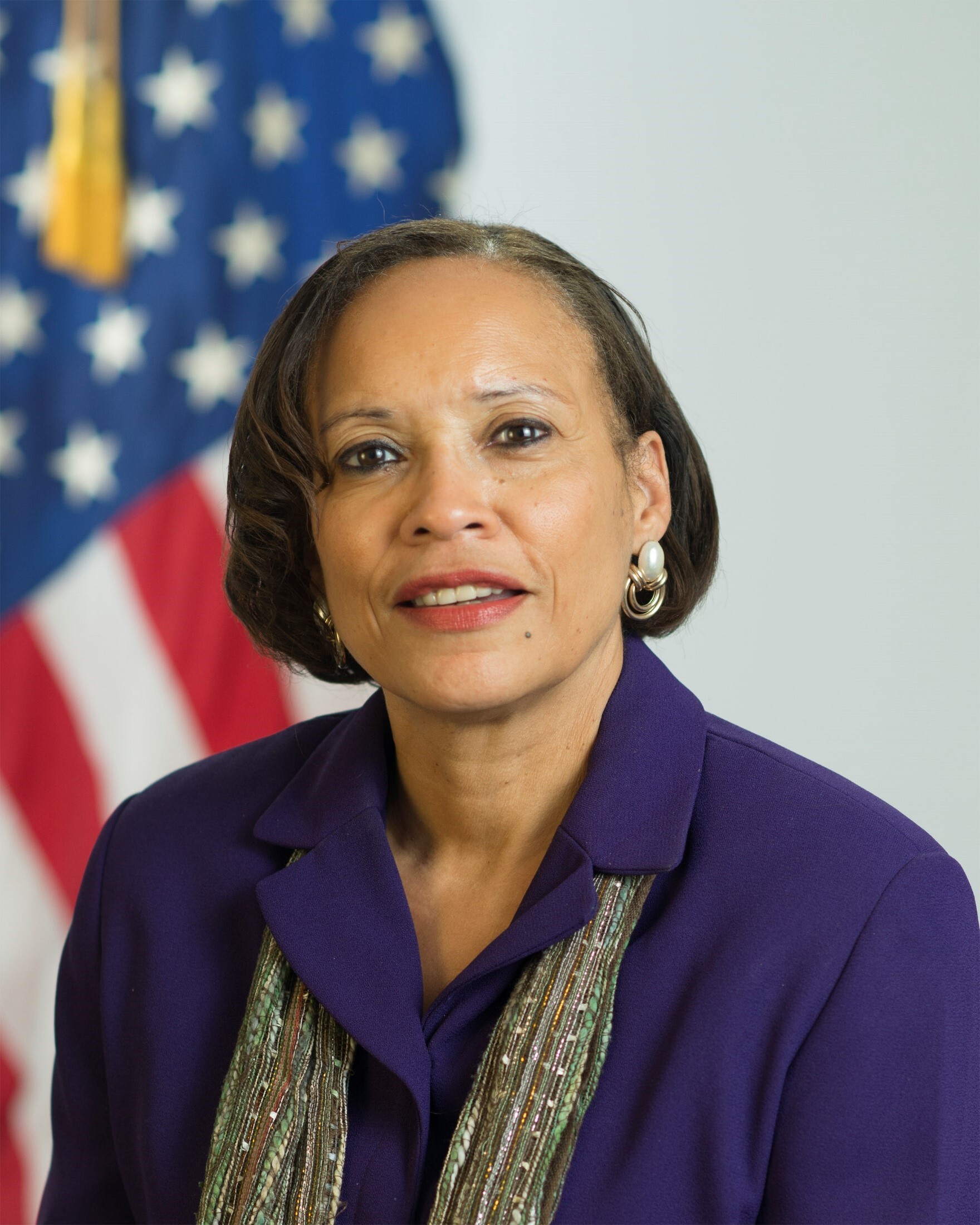
Jean Moody-Williams, RN, MPP
Deputy Center Director
Center for Clinical Standards and Quality
Centers for Medicare & Medicaid Services
Jean D. Moody-Williams, RN, MPP, is the current Deputy Center Director for the Center for Clinical Standards and Quality (CCSQ) at the Centers for Medicare & Medicaid Services (CMS). She has served since 2008 under multiple administrations in the Senior Executive Service (SES) Corp. She currently is a part of a leadership team responsible for one of CMS’ Centers that has nearly 800 employees and a $3 billion annual budget. She is responsible for leading quality improvement, value based purchasing, and delivery system reform. She provides oversight to multiple kidney health activities including regulations for organ procurement and transplantation programs and learning networks, development of conditions of participation for dialysis facilities and healthcare systems, oversight of ESRD Networks for quality improvement and the ESRD Quality Incentive Program. She works to ensure better healthcare, healthier populations and smarter spending of healthcare dollars for more than 90 million Americans.
Jean serves as a guest lecturer for many academic institutions and is a current Faculty Member of the University of Pennsylvania School of Nursing, Doctor of Nursing Practice in Executive Leadership Program.
Prior to joining CMS, Ms. Moody-Williams served as an executive at a number of state and private entities working to improve care for patients and families including, the Maryland Health Care Commission (MHCC), the National Resource Center for Health Policy and Strategies, Quality Improvement Organizations and a health care system in Dallas.
Jean has devoted her entire professional career to improving the care provided to patients and supporting families, leading many of the patient and family engagement efforts at CMS in order to bring the voice of the patient to the forefront of policy and program decisions. She is the author of a textbook for healthcare providers entitled, A Journey towards Patient-Centered Healthcare Quality Patients, Families and Caregivers, Voices of Transformation. She is also the author of the book entitled, Transitions, Trust and Triumph: A Daily Devotion for Caregivers, which provides inspiration, encouragement and resources for those caring for a love one or that recently lost a loved ones.
She is a recipient of the Samuel J. Heyman Service to America Medal awarded by the Partnership for Public Service and was recognized as the Federal Employee of the Year. Ms. Moody-Williams is also the recipient of the 2016 President of the United States Meritorious Rank Award and the 2018 President of the United States Distinguished Service Rank Award. The Presidential awards are one of the highest given to Senior Executives that have demonstrated unparalleled leadership skills and a strong dedication to achieving tangible results. She is also the recipient of the 2020 CMS Executive of the Year awarded by the CMS Administrator for leadership. She received her Bachelors of Science in Nursing from Hampton University and a Masters of Public Policy and Management from the University of Maryland, College Park.
 May 1, 2023 11:05
May 1, 2023 11:05
Chiquita Brooks-LaSure
Administrator
Centers for Medicare & Medicaid Services
Chiquita Brooks-LaSure is the Administrator for the Centers for Medicare and Medicaid Services (CMS), where she will oversee programs including Medicare, Medicaid, the Children’s Health Insurance Program (CHIP), and the HealthCare.gov health insurance marketplace.
A former policy official who played a key role in guiding the Affordable Care Act (ACA) through passage and implementation, Brooks-LaSure has decades of experience in the federal government, on Capitol Hill, and in the private sector. As deputy director for policy at the Center for Consumer Information and Insurance Oversight within the Centers for Medicare & Medicaid Services, and earlier at the Department of Health & Human Services as director of coverage policy, Brooks-LaSure led the agency’s implementation of ACA coverage and insurance reform policy provisions. Earlier in her career, Brooks-LaSure assisted House leaders in passing several health care laws, including the Medicare Improvements for Patients and Providers Act of 2008 and the ACA, as part of the Democratic staff for the U.S. House of Representatives’ Ways and Means Committee.
Brooks-LaSure began her career as a program examiner and lead Medicaid analyst for the Office of Management and Budget, coordinating Medicaid policy development for the health financing branch. Her role included evaluating policy options and briefing White House and federal agency officials on policy recommendations with regard to the uninsured, Medicaid and the Children’s Health Insurance Program.
 May 1, 2023 11:15
May 1, 2023 11:15
Andrea Palm
Deputy Secretary
U.S. Department of Health and Human Services
Andrea Palm is the Deputy Secretary of the Department of Health and Human Services (HHS). As Deputy Secretary, she is the Chief Operating Officer and is responsible for overseeing the day-to-day operations of the Department.
Palm most recently served as Secretary-designee of the Department of Health Services (DHS), overseeing one of the largest state agencies in Wisconsin as a member of Governor Tony Evers' cabinet. In this role, she had responsibility for the state's Medicaid program, its Supplemental Nutrition Assistance Program (SNAP), and behavioral health programs, among others. DHS is also Wisconsin's public health agency, and as such, Palm led the state's response to the COVID-19 pandemic.
Previously, Palm held a number of policy and operational roles in the Obama-Biden Administration at HHS, including Acting Assistant Secretary for Legislation, Counselor, Chief of Staff and Senior Counselor to the Secretary. During her eight-year tenure, she worked on a variety of Administration priorities, including the Affordable Care Act, as well as providing leadership for the Department's work to combat the opioid epidemic.
Palm was born and raised in rural, upstate New York. She holds a Bachelor's degree from Cornell University and a Master's degree from Washington University in St. Louis.
 May 1, 2023 11:25
May 1, 2023 11:25The COVID-19 pandemic has impacted us all in one way or another and America’s healthcare workforce has certainly felt the weight of this public health emergency. While there is no doubt that the pandemic exposed vulnerabilities in our healthcare system; it also presented opportunities for innovation and creative solutions. Researchers worked continuously to answer fundamental questions about the virus, and transmission all while clinicians and physician scientists were testing therapeutics and vaccines. As we document lessons learned from the darkest days of the pandemic to prepare for future emergencies, it's apparent that medical science is facing a credibility crisis. Join this dynamic panel of clinical and government experts for a discussion about the factors behind public distrust, how COVID exacerbated the distrust and where we go from here to rebuild resilient communities.
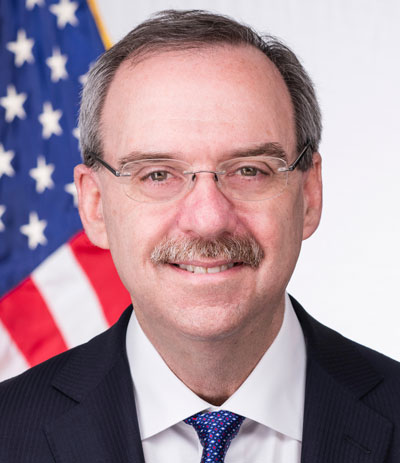
Dr. Lee A Fleisher, MD
Chief Medical Officer and Director of the Center for
Clinical Standards and Quality Centers for
Medicare & Medicaid Services
Lee A. Fleisher, MD, was named the Chief Medical Officer and Director of the Center for Clinical Standards and Quality for the Centers for Medicare and Medicaid Services in July 2020. In this capacity, he is responsible for executing all national clinical, quality, and safety standards for healthcare facilities and providers, as well as establishing coverage determinations for items and services that improve health outcomes for Medicare beneficiaries. He is also Professor Emeritus and Former Chair of Anesthesiology and Critical Care and Professor of Medicine at the University of Pennsylvania Perelman School of Medicine. From 2004 through July 2020, he was the Robert D. Dripps Professor and Chair of Anesthesiology and Critical Care and Professor of Medicine at the University of Pennsylvania.
Lee received his medical degree from the State University of New York at Stony Brook, from which he received the Distinguished Alumni Award in 2011. His research focuses on perioperative cardiovascular risk assessment and reduction, measurement of quality of care, decision making, implementation of cultural change and health policy. He has received numerous federal, industry and foundation grants related to these subjects and has published 175+ original articles, over 200 editorials, reviews and book chapters, and 9 books and collaborates with anthropologists, sociologists, as well as faculty from law, business and nursing.
He was Treasurer of the Board of Directors and Chair of the Finance Committee of the National Quality Forum. He was a member of the Care Transformation Forum (CTF) of the Health Care Payment Learning and Action Network (LAN) He is currently an Affiliated Faculty of the Quattrone Center for the Fair Administration of Justice and pursuing a Master in Law at the University of Pennsylvania Carey Law School. His is a Senior Fellow of the Leonard Davis Institute of Health Economics. In 2007, he was elected to membership of the National Academy of Medicine (formerly Institute of Medicine) of the National Academy of Sciences and served on Committees of the NAM.
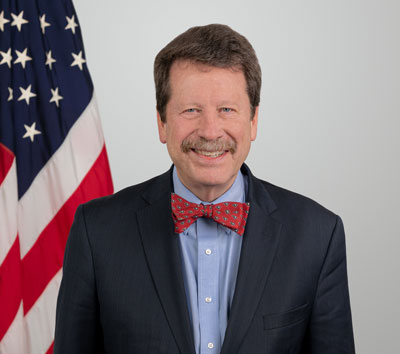
Dr. Robert Califf
Commissioner
U.S. Food and Drug Administration
Dr. Robert M. Califf was confirmed earlier this year as the 25th Commissioner of Food and Drugs. He also served in 2016 as the 22nd Commissioner, and immediately prior to that as the FDA’s Deputy Commissioner for Medical Products and Tobacco. He has spent a good portion of his career affiliated with Duke University, where he served as a professor of medicine and vice chancellor for clinical and translational research, director of the Duke Translational Medicine Institute, and was the founding director of the Duke Clinical Research Institute. He has had a long and distinguished career as a physician, researcher, and leader in the fields of science and medicine. He is a nationally recognized expert in cardiovascular medicine, health outcomes research, health care quality, and clinical research, and a leader in the growing field of translational research, which is key to ensuring that advances in science translate into medical care.
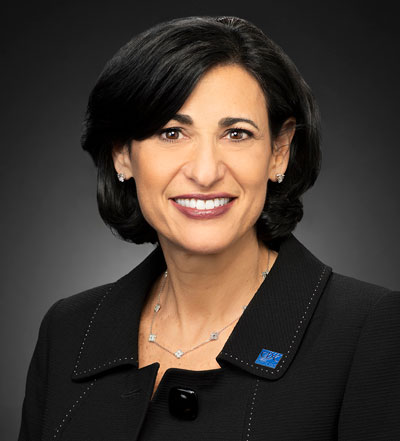
Dr. Rochelle Walensky, MD, MHP
Director Centers for Disease Control and Prevention
Administrator Agency for Toxic Substances and Disease Registry
Rochelle P. Walensky, MD, MPH, is the Director of the Centers for Disease Control and Prevention and the Administrator of the Agency for Toxic Substances and Disease Registry. She is an influential scholar whose pioneering research has helped advance the national and global response to HIV/AIDS. Dr. Walensky is also a well-respected expert on the value of testing and treatment of deadly viruses.
Dr. Walensky served as Chief of the Division of Infectious Diseases at Massachusetts General Hospital from 2017-2020 and Professor of Medicine at Harvard Medical School from 2012-2020. She served on the front line of the COVID-19 pandemic and conducted research on vaccine delivery and strategies to reach underserved communities.
Dr. Walensky is recognized internationally for her work to improve HIV screening and care in South Africa and nationally for motivating health policy and informing clinical trial design and evaluation in a variety of settings. She is a past Chair of the Oce of AIDS Research Advisory Council at the National Institutes of Health, Chair-elect of the HIV Medical Association, and previously served as an advisor to both the World Health Organization and the Joint United Nations Programme on HIV/AIDS.
Originally from Maryland, Dr. Walensky received her Bachelor of Arts from Washington University in St. Louis, her Doctor of Medicine from the Johns Hopkins School of Medicine, and her Master of Public Health from the Harvard
 May 1, 2023 11:50
May 1, 2023 11:50The healthcare system continues to respond to emerging threats and persistent challenges that impact the communities served by CMS programs. An equitable resilient health care system can recover from those challenges and thrive during troubling circumstances. It is imperative that we build resilience in our health equity infrastructure to support thriving communities. Over the next 10 years, through the CMS Framework for Health Equity, the agency is committed to operationalize health equity across all its programs.
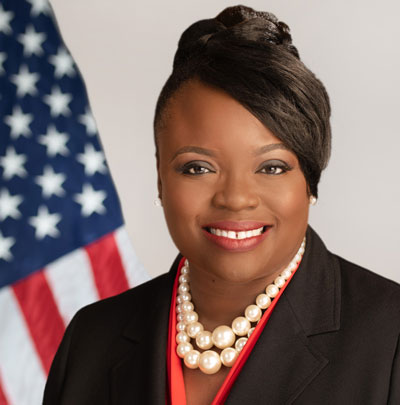
Dr. LaShawn McIver
Director
Office of Minority Health
Centers for Medicare & Medicaid Services
Dr. LaShawn McIver joined CMS as the Director of the Office of Minority Health in August 2020. She is a proven public health leader with experience in driving successful health initiatives and public policy efforts aimed at promoting health equity, improving health outcomes, increasing access to care, and promoting health system reform.
Before joining CMS, Dr. McIver led Government Affairs & Advocacy (GA&A) efforts at the American Diabetes Association (ADA) as its Vice President of Public Policy & Strategic Alliances and later as its Senior Vice President of all GA&A. During her 9-year tenure with the ADA, she provided strategic direction and oversight of the ADA’s advocacy activities which focused on increasing federal and state funding for diabetes research and programs; eliminating diabetes disparities; diabetes prevention; and improving the availability of accessible, adequate, and affordable health care. She has also served as the inaugural HIV/AIDS fellow for the Congressional Black Caucus’ Center for Policy Analysis and Research and as a program director at the Baltimore City Health Department.
Dr. McIver earned a Medical Degree in International Health & Medicine through the Medical School for International Health in Collaboration with Columbia University’s Medical Center and a master’s degree of Public Health from the Johns Hopkins University Bloomberg School of Public Health.
 May 1, 2023 12:10
May 1, 2023 12:10The COVID-19 public health emergency put enormous stress on the health care system and disrupted many normal activities in hospitals and other facilities. Unfortunately, these stressors have caused safety problems for both patients and staff. Join this session for an intimate conversation with a dynamic panel of patients —focused on their experiences and the importance of restoring standards to rebuild a healthcare system in which safety is embedded in every step of the process with a renewed focus on the voices of the patient, family and caregivers.

Jean Moody-Williams, RN, MPP
Deputy Center Director
Center for Clinical Standards and Quality
Centers for Medicare & Medicaid Services
Jean D. Moody-Williams, RN, MPP, is the current Deputy Center Director for the Center for Clinical Standards and Quality (CCSQ) at the Centers for Medicare & Medicaid Services (CMS). She has served since 2008 under multiple administrations in the Senior Executive Service (SES) Corp. She currently is a part of a leadership team responsible for one of CMS’ Centers that has nearly 800 employees and a $3 billion annual budget. She is responsible for leading quality improvement, value based purchasing, and delivery system reform. She provides oversight to multiple kidney health activities including regulations for organ procurement and transplantation programs and learning networks, development of conditions of participation for dialysis facilities and healthcare systems, oversight of ESRD Networks for quality improvement and the ESRD Quality Incentive Program. She works to ensure better healthcare, healthier populations and smarter spending of healthcare dollars for more than 90 million Americans.
Jean serves as a guest lecturer for many academic institutions and is a current Faculty Member of the University of Pennsylvania School of Nursing, Doctor of Nursing Practice in Executive Leadership Program.
Prior to joining CMS, Ms. Moody-Williams served as an executive at a number of state and private entities working to improve care for patients and families including, the Maryland Health Care Commission (MHCC), the National Resource Center for Health Policy and Strategies, Quality Improvement Organizations and a health care system in Dallas.
Jean has devoted her entire professional career to improving the care provided to patients and supporting families, leading many of the patient and family engagement efforts at CMS in order to bring the voice of the patient to the forefront of policy and program decisions. She is the author of a textbook for healthcare providers entitled, A Journey towards Patient-Centered Healthcare Quality Patients, Families and Caregivers, Voices of Transformation. She is also the author of the book entitled, Transitions, Trust and Triumph: A Daily Devotion for Caregivers, which provides inspiration, encouragement and resources for those caring for a love one or that recently lost a loved ones.
She is a recipient of the Samuel J. Heyman Service to America Medal awarded by the Partnership for Public Service and was recognized as the Federal Employee of the Year. Ms. Moody-Williams is also the recipient of the 2016 President of the United States Meritorious Rank Award and the 2018 President of the United States Distinguished Service Rank Award. The Presidential awards are one of the highest given to Senior Executives that have demonstrated unparalleled leadership skills and a strong dedication to achieving tangible results. She is also the recipient of the 2020 CMS Executive of the Year awarded by the CMS Administrator for leadership. She received her Bachelors of Science in Nursing from Hampton University and a Masters of Public Policy and Management from the University of Maryland, College Park.

Susan E. Sheridan, MIM, MBA, DHL
Founding Member, Patients for Patient Safety
Director, Patient Engagement Emeritus
Society to Improve Diagnosis in Medicine
Susan E. Sheridan, MIM, MBA, DHL, is a founding member of Patients for Patient Safety (PFPS) US and currently serves as the Director of Patient Engagement, Emeritus for the Society to Improve Diagnosis in Medicine (SIDM). Prior to her work at SIDM, Sue served as Patient and Family Engagement Advisor at the Centers of Medicare and Medicaid Services (CMS). She also served as the Director of Patient Engagement for the Patient Centered Outcomes Research Institute (PCORI) and led the Patients for Patient Safety program at the World Health Organization (WHO). Sheridan had previously spent 10 years in patient advocacy inspired by adverse family experiences in the healthcare system. She cofounded Parents of Infants and Children with Kernicterus as well as Consumers Advancing Patient Safety, which helps organizations engage patients as partners in developing patient-safety solutions. In 2009, Sheridan was named to Modern Healthcare's list of Top 25 Women in Healthcare as well as Modern Healthcare’s 100 Most Powerful People in Healthcare. Sheridan and her family have been featured in USA Today, Wall Street Journal, New York Times and the international documentary, To Err is Human. Prior to her leadership in patient engagement, she worked as a finance banker for international trade. Sue received her BA from Albion College, her MIM and MBA from the Thunderbird School of Global Management and her DHL from Adrian College
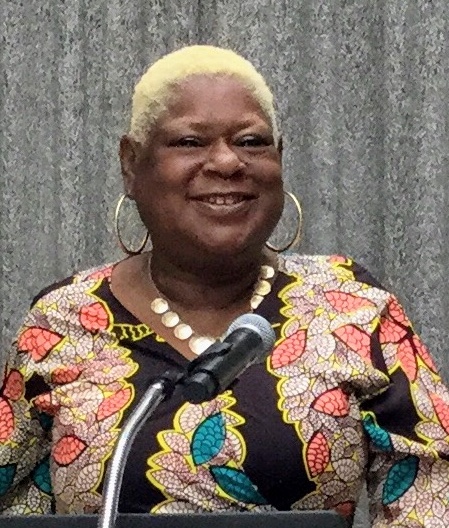
Dawn Edwards
Kidney Disease Warrior
Dawn Edwards describes herself as a kidney disease warrior. She is a nocturnal home hemodialysis patient from New York. Dawn is dedicated to improving the quality of life of people with kidney disease, and serves as a resource to her community, sharing her story and educating patients, professionals, and the public about the importance of maintaining a healthy lifestyle and the relationship between hypertension, diabetes, and kidney disease. Dawn has served the kidney community for over 25 years through the IPRO ESRD Network of New York in multiple roles, including working as the Community Outreach Coordinator. She currently serves on many kidney disease related boards such as: IPRO ESRD Network of New York’s Patient Advisory Committee (PAC), the IPRO Board of Directors, the Forum of ESRD Network’s Kidney Patient Advisory Council (KPAC), ESRD National Coordinating Center (NCC), and CEO of her own patient-run kidney disease advocacy group, the New York State CKD Champions. Dawn believes that faith, family, and education are the keys to her longevity, and every day is an opportunity to thrive, not just survive.
 May 1, 2023 12:35
May 1, 2023 12:35CMS’ Behavioral Health Strategy outlines goals to support the whole emotional and mental well-being of a person, and promote person-centered behavioral health care. This is aligned with the HHS Roadmap for Behavioral Health Integration, which aims to coordinate behavioral health work across HHS operating divisions. Rising numbers of Americans living with mental disorders including substance use disorders (SUD) and suicidality appears to have been exacerbated by the COVID-19 pandemic, making the integration of behavioral and physical health an urgent need. This session will address these concerns, focusing on best practices for mental health and SUD services and supports across HHS and the Department of Veterans Affairs (VA), each with a unique perspective on the subject matter and people impacted.

Dr. Meena Vythilingam (Moderator)
Senior Mental Health Advisor
Office of the Assistant Secretary for Health
Department of Health and Human Services
CAPT Meena Vythilingam is a US Public Health Service (USPHS) Commissioned Corps Officer and a board-certified psychiatrist currently serving as a Senior Mental Health Advisor in the Office of the Assistant Secretary for Health. After her psychiatry residency and postdoctoral fellowship at Yale University School of Medicine, she served on the research faculty. She continued to lead and conduct clinical research at the National Institute of Mental Health (NIMH), Bethesda, MD. She is a lead author/co-author on 86-peer reviewed articles on the posttraumatic stress disorder (PTSD), mood disorders, psychological resilience, suicide prevention, mood and substance use disorders with a “H index” of 49. After commissioning in the USPHS, CAPT Vythilingam served in numerous leadership assignments in the Department of Defense (DoD), US Marine Corps and the Department of Health and Human Services (HHS), where she spearheaded department-wide mental health policies, directed programs, led program evaluations, and oversaw public-private partnerships. CAPT Vythilingam has received numerous awards to include the USPHS Distinguished Service Medal, USPHS, DoD and Navy Marine Corps Meritorious Service Medals, Commendation Medals, and an Applied Public Health Physician of the Year. CAPT Vythilingam continues to evaluate and treat patients at Walter Reed National Military Medical Center.?

Dr. Elisabeth Kato, MD, MRP
Medical Officer
Agency for Healthcare Research and Quality
Elisabeth Uphoff Kato, MD, MRP, is a medical officer at the Agency for Healthcare Research and Quality in the Center for Evidence and Practice Improvement, where she coordinates AHRQ activities related to Substance Use Disorder and supports the National Center for Excellence in Primary Care. She previously served as medical officer to the Evidence-based Practice Center Program and the US Preventive Services Task Force at AHRQ. Prior to joining the federal government, she worked as a Senior Medical Research Analyst with Hayes Inc. Before turning to medicine, Dr. Kato worked on international development projects in Nepal, Thailand, and Cambodia. Dr. Kato received medical training at the University of Maryland and has master’s and bachelor’s degrees from Cornell University.
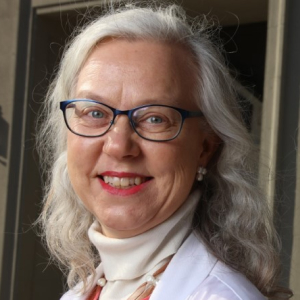
Dr. Yngvild Olsen
Director
Center for Substance Abuse
Substance Abuse Mental Health Services
Dr. Yngvild Olsen serves as the Director for the Center for Substance Abuse Treatment (CSAT). She has a long history of working within the addiction treatment field to expand access to care and enhance quality. Dr. Olsen has held numerous senior volunteer leadership positions in the field of addiction medicine. These have included vice president of the American Society of Addiction Medicine, president of the Maryland Association for the Treatment of Opioid Dependence, and president of the Maryland/DC Society of Addiction Medicine. She also has served on the boards of the National Council on Alcohol and Drug Dependence-Maryland, and Stop Stigma Now, and as a clinical expert to the Providers Clinical Support System (PCSS).
After graduating from Harvard Medical School, Dr. Olsen completed residency training in internal medicine and served as primary care chief resident at Boston Medical Center. She completed a Fellowship in General Internal Medicine at Johns Hopkins, during which time she received a Master’s in Public Health degree from the Johns Hopkins Bloomberg School of Public Health. Dr. Olsen has written and lectured extensively on opioid use disorder and its treatments, the stigma of addiction, the integration of behavioral health and medical care, and clinical and policy solutions to the overdose epidemic. She draws inspiration from the opportunity to provide care for people with substance use disorders as an addiction medicine specialist and general internist.
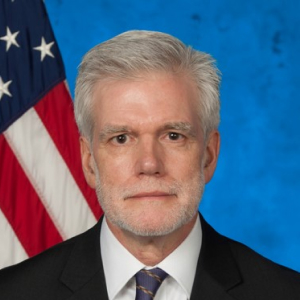
Marsden McGuire, M.D., M.B.A.
Director
Continuum of Care and General Mental Health
Office of Mental Health and Suicide Prevention
Department of Veterans Affairs
Dr. Marsden McGuire currently serves as Director, Continuum of Care and General Mental Health in the Office of Mental Health and Suicide Prevention at the Department of Veterans Affairs Central Office (VACO) in Washington, DC. His portfolio includes oversight of the continuum of mental health care, including inpatient, residential, specialty and general outpatient services as well as cross-cutting services including evidence-based psychotherapies, substance use disorders, geriatric mental health, psychosocial rehabilitation and recovery services, women’s mental health, family services and military sexual trauma. During his 9 years at VACO, Dr. McGuire has led numerous interprofessional and collaborative initiatives within VA, with other federal agencies, and with private sector stakeholders aimed at promoting Veteran-centered care that is effective, safe, and measurable. Previously, Dr. McGuire held leadership positions in psychiatry at the Johns Hopkins Bayview Medical Center, Sheppard Pratt Health System, and the VA Maryland Health Care System.
Dr. McGuire received a BA (History, the Arts and Letters) from Yale University, an MD from the University of North Carolina, and completed his internship, psychiatry residency and a geriatric psychiatry fellowship at Johns Hopkins (where he later completed an MBA in medical services management). He holds academic positions at Johns Hopkins and the University of Maryland Schools of Medicine and is board certified in General and Geriatric Psychiatry. He is a recent President of the Maryland Psychiatric Society, a Fellow of the American College of Psychiatrists, a Distinguished Life Fellow of the American Psychiatric Association and a 2018 recipient of the National Alliance on Mental Illness’ Exemplary Psychiatrist Award.
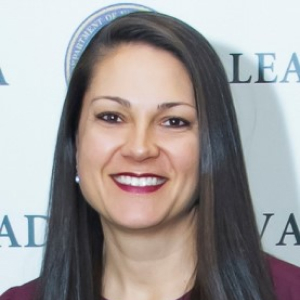
Jessica Walker, Ph.D., L.P.
National Clinical Suicide Prevention Telehealth Coordinator
Office of Mental Health and Suicide Prevention
Department of Veterans Affairs
Jessica A. Walker, Ph.D. is a licensed psychologist with over 13 years of service with VHA. She currently serves as the National Suicide Prevention Clinical Telehealth Coordinator, overseeing an initiative that provides virtual evidence-based psychotherapy and interventions to Veterans with a history of suicidal self-directed violence behaviors. Her previous VA work has included coordinating the National Problem-Solving Training (PST) program and the VISN 6 Telemental Health (TMH) Post Traumatic Stress Disorder (PTSD) Hub. A graduate of Lehigh University, she has authored and co-authored over 20 publications and presentations. Most recently, she co-authored a publication in the Clinical Gerontologist with other distinguished VHA colleagues: Problem solving training for veterans with complex comorbidities: Treatment delivery adaptations during COVID-19.
 May 1, 2023 15:10
May 1, 2023 15:10Advancing electronic health data exchange is crucial to communicate the needs of individuals for care planning and care coordination, and enables person centered care/data to follow the person across the trajectory of their care, including acute care, post-acute care, behavioral Health. One of the goals of the Improving Medicare Post-Acute Care Transformation Act (IMPACT) is to support the exchange of key health data important for care planning, such as cognitive status, functional status, and special services, treatments and interventions, as well as improve quality of care and health outcomes, enhance coordination of care, and to support person centered goals. Panel members from CMS, ONC, and industry will examine opportunities and gaps within the healthcare interoperable ecosystem and discuss the broader topic of standardized data and its role in promoting Health.
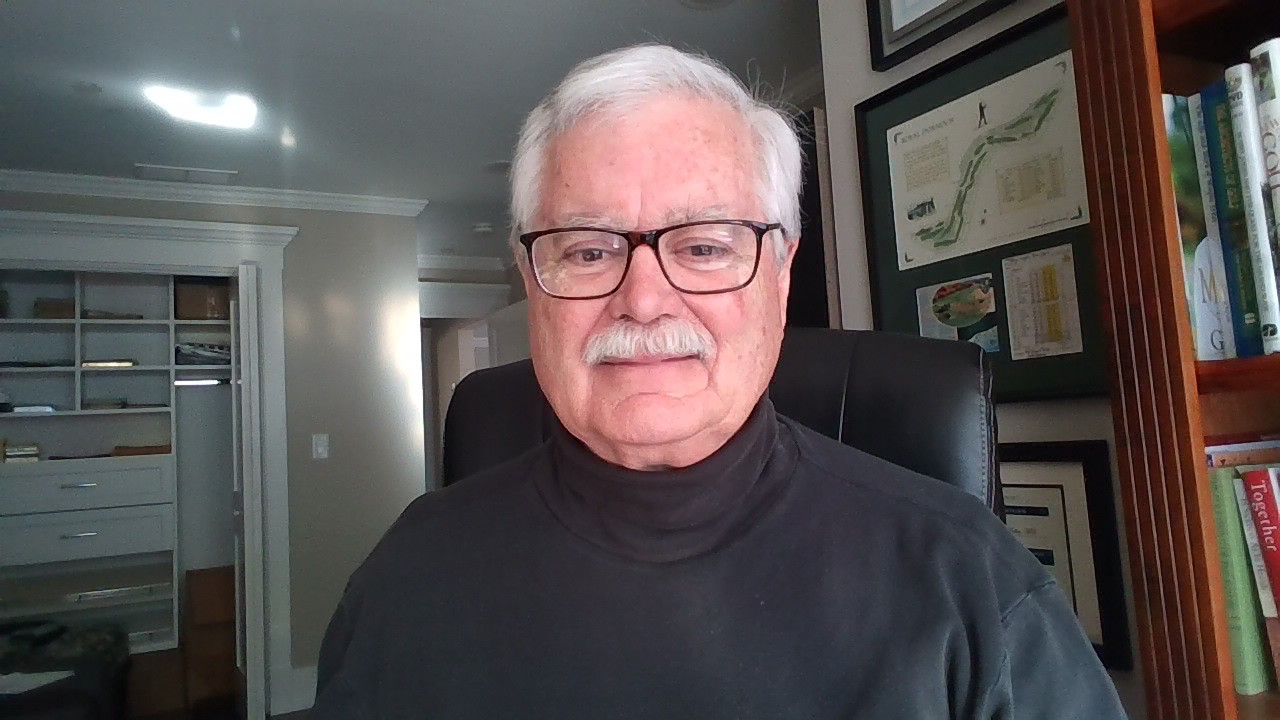
Dr. Terrence O'Malley
Corresponding Faculty
Harvard Medical School
Dr. O’Malley is a retired internist/geriatrician who specialized in the care of nursing home patients. He graduated from Amherst College and Cornell University Medical College. After completing his training in Primary Care Medicine at Massachusetts General Hospital, he joined the faculty at MGH and Harvard Medical School, where he provided clinical care, supervised trainees, and conducted research on improving transitions of care and the exchange of clinical information at transitions. Over the course of his career, he has provided medical care in nearly all settings from ICU to home, in the ED and primary care office. He has also been a medical director for a primary care practice, a hospice, a home health agency, a skilled nursing facility and a post-acute care network.
He was a Lead on the Longitudinal Coordination of Care work group within the ONC S&I Framework which developed the data set which serves as the national standard for transitions of care and the exchange of longitudinal care plans, and a Lead on the eLTSS (electronic Long-Term Services and Supports) work group which developed standards for the exchange of an LTSS care plan. He served on the NQF Care Coordination Steering Committee for the Care Coordination Measure Endorsement Maintenance and co-chaired the USCDI Task Force as a member of the ONC HIT Advisory Committee. He is currently on the Board of Directors of the Long-Term Quality Alliance, a member of the LTPAC HIT Collaborative, and participates in PACIO, Gravity, and 360X. He is working to develop a shared, semantically interoperable vocabulary for transitions of care and co-chairs the Moving Forward Coalition committee which will propose a path to HIT adoption as recommended in the NASEM 2022 report on nursing home quality.

Lorraine Wickiser, RN
Nurse/Consultant/RN
Centers for Medicare & Medicaid Services
Lorraine Wickiser is a Nurse Consultant at the Centers for Medicare & Medicaid Services (CMS), within the Center for Clinical Standards and Quality Group (CCSQ), and the Division of Chronic and Post-acute Care (DCPAC). She serves as the Lead for the CMS Data Element Library (DEL), and subject matter expert, (SME), for standardization and interoperability of the post-acute care (PAC), assessment data.
Her initial efforts at CMS included coordinating the Long-Term Care Hospital Quality Reporting Program, LTCH QRP, which primarily focused on the implementation of the Improving Medicare Post-Acute Care Transformation Act (IMPACT Act) and patient/facility reporting and Compare efforts. Currently, her expertise is in this area of PAC assessments and interoperability which she provides provision and livelihood for the CMS Data Element Library (DEL), and the CMS Post-Acute Care Interoperability project (PACIO). Her interests continue to grow in the areas of interoperable health information exchange using Fast Healthcare Interoperability (FHIR) application programming interfaces (APIs) and promoting the intersection of quality, health information technology and patient centered care.
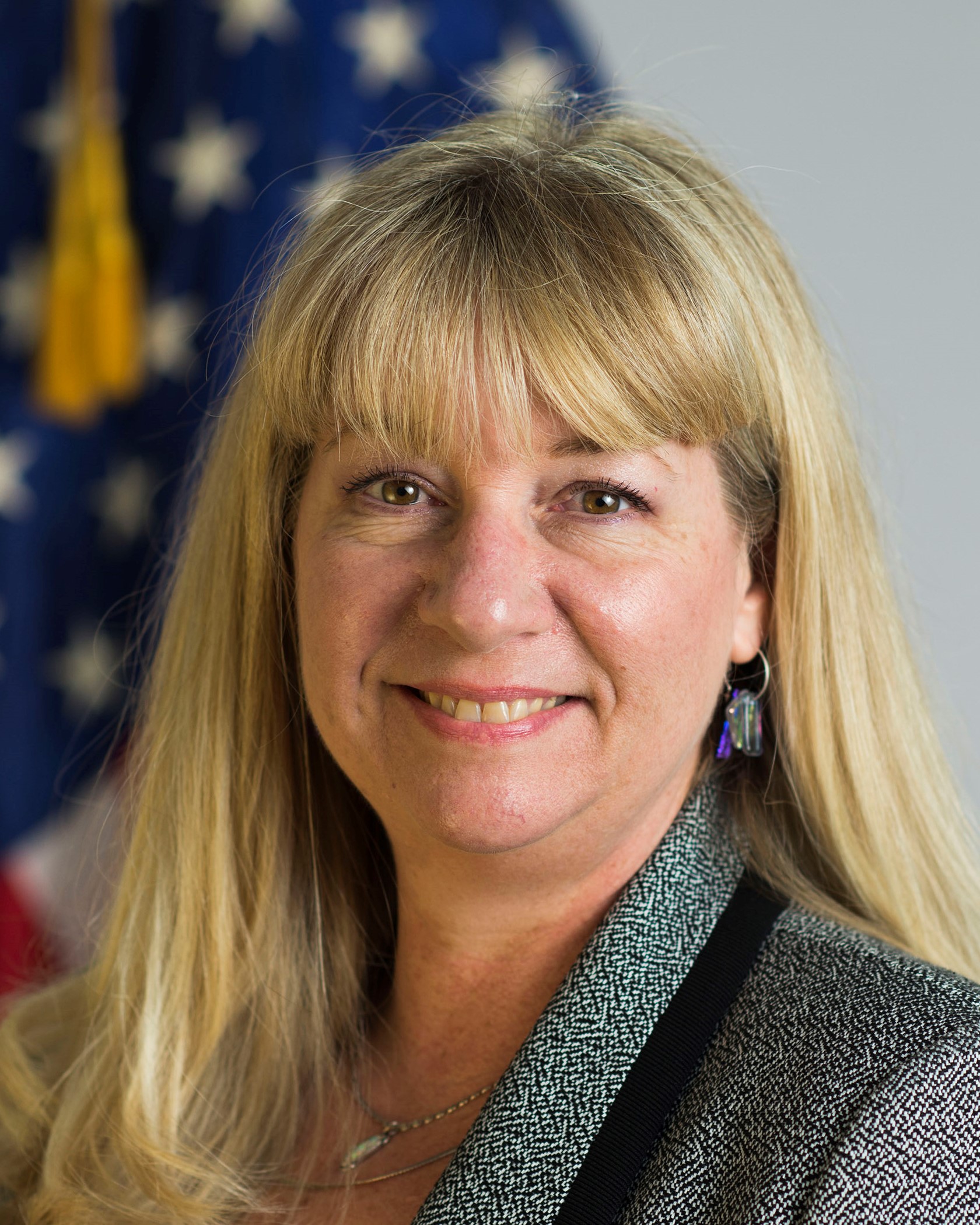
Beth Connor, RN
Health Insurance Specialist
Centers for Medicare & Medicaid Services
Beth Connor is a nurse informaticist at the Centers for Medicare and Medicaid Services (CMS), in the Office of Burden Reduction and Health Informatics. She serves as a subject matter expert on the electronic use and exchange of patient administrative and clinical data to support Medicare Fee for Service (FFS) prior authorization and long-term and post-acute care (LTPAC) interoperability initiatives at CMS. Previously, she led LTPAC interoperability efforts for the Improving Medicare Post-Acute Care Transformation Act (IMPACT Act), including development of the CMS Data Element Library, and the Post-Acute Care Interoperability project (PACIO). In her current role, she leads the Medicare FFS Requirements Modernization pilot to explore opportunities to enable easy access to CMS prior authorization and claims requirements. Beth has been a registered nurse for many years and is passionate about using policy and technology to support improved patient care and health outcomes to advance the health of our nation.
Brenda Akinnagbe
Health Insurance
Centers for Medicare & Medicaid Services
Brenda Akinnagbe is a Policy Analyst at the Office of the National Coordinator for Health Information Technology (ONC) in the Office of Policy, Care Continuum Branch. As a Policy Analyst her work focuses on promoting health information technology interoperability within long-term and post-acute care (LTPAC) settings and across the care continuum. She has served as a subject matter expert on projects to support the exchange of health and social determinant of health data across health care and human services. As a Leading Edge Acceleration Project (LEAP) Project Officer she supported pilot testing of the electronic long-term services and supports (eLTSS) Fast Healthcare Interoperability Resource (FHIR) implementation guide and continues to support efforts to advance interoperability.

Dr. Constantine Lyketsos MD, MHS, FACLP, FACPsych, FACNP, FAPM, DFAPA
Elizabeth Plank Althouse Professor & Vice Chair of Psychiatry,School of Medicine
Johns Hopkins University
Chair of Psychiatry
Johns Hopkins Bayview Medical Center
A native of Athens, Greece, Constantine G. Lyketsos, MD, MHS, FACLP, FACPsych, FACNP graduated from Northwestern University and Washington University Medical School in St. Louis. He completed residency and Chief Residency in psychiatry at Johns Hopkins, as well as a fellowship in clinical epidemiology. He holds a certificate in the business of medicine from Johns Hopkins, where he also completed the Johns Hopkins Leadership Development Program.
An active clinician, teacher, and researcher, Dr. Lyketsos was the founding director of the Johns Hopkins Neuropsychiatry Service, which he led for over a decade. He developed one of the largest and most successful academic neuropsychiatry programs in the USA with special expertise in dementia and traumatic brain injury. Prior to taking leadership of the Johns Hopkins Bayview Department of Psychiatry, he was co-director of the Johns Hopkins Division of Geriatric Psychiatry and Neuropsychiatry. He has held a joint faculty appointment at the Hopkins Bloomberg School of Public Health since 1994.
As the Chair of the Academy of Psychosomatic Medicine Task Force on Subspecialization, Dr. Lyketsos was instrumental in the 2003 recognition by the American Board of Medical Specialties of a new psychiatric subspecialty “Consultation Liaison Psychiatry.” This rapidly expanding subspecialty is focused on psychiatric aspects of complex medically ill, typically patients with chronic diseases where the psychiatric condition is affecting medical care and outcomes. His expertise in this area was critical to his leadership role in the Johns Hopkins Community Health Partnership (J-CHiP) supported by a major grant from the CMS Innovations Center to transform the way Johns Hopkins delivers population-based healthcare in its local community. He now leads efforts to integrate Behavioral Health services throughout the Johns Hopkins Medicine clinical enterprise.
A world expert in the care and treatment of patients with Alzheimer’s and related dementias (AD), Dr. Lyketsos carried out pioneering work on the epidemiology and treatment of neuropsychiatric features of AD. His team is developing biomarkers to accelerate treatment development for AD while designing and implementing innovative clinical trials. He leads efforts to ensure the provision of state-of-the-art Dementia Care for people with dementia in the community. Given his special expertise in the relationship between Traumatic Brain Injury and dementia, Dr. Lyketsos advised the NFL Benefits Office and serves on the NFL Players Association Mackey-White Health and Safety Committee.
Dr. Lyketsos is the recipient of the American College of Psychiatrists’ 2018 Geriatric Research Award, the 2016 Jack Weinberg Award in Geriatric Psychiatry from the American Psychiatric Association, the 2012 Distinguished Scientist Award from the American Association for Geriatric Psychiatry, the 2006 William S. Proxmire Award for “extraordinary leadership in the fight against Alzheimer’s,” and the 2002 Research Award from the Academy of Psychosomatic Medicine. In 2019 he was installed as an Honorary Professor at the University of Ioannina in Greece.
A Fellow of the American College of Neuropsychopharmacology, Fellow of the American College of Psychiatrists, and Fellow of the Academy of Consultation Liaison Psychiatry he has authored/co-authored over 400 peer-reviewed articles, chapters, commentaries, as well as five books, including Practical Dementia Care (translated into Greek and Japanese), Systematic Psychiatric Evaluation and Psychiatric Aspects of Neurological Diseases (translated into Greek and Russian). His work has been cited over 65,000 times with an h-index of 137. A 2021 Stanford University publication reported that he ranks #13 out of 9,246 scientists worldwide (all time) in the field of Geriatrics. Castle-Connolly has named Dr. Lyketsos as one of America’s Top Doctors every year since 2001.
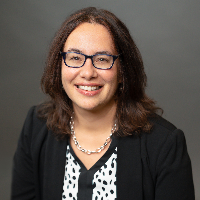
Elizabeth Palena Hall, MIS, MBA, RN
Health Insurance
Centers for Medicare & Medicaid Services
Liz Palena Hall, MIS, MBA, RN is a Health Insurance Specialist in the Office of Burden Reduction and Health Informatics (OBRHI) at CMS, which is focused on reducing administrative burden and advancing interoperability and national standards. Prior to CMS, Liz was the Interoperability Systems Branch Chief at the Office of the National Coordinator for Health IT (ONC) leading health IT policy implementation through activities such as the Trusted Exchange Framework and Common Agreement (TEFCA) and social determinants of heath information exchange efforts. She was also formerly the Long-Term and Post-Acute Care (LTPAC) Coordinator at ONC focused on promoting interoperability across the care continuum.
Liz’s career in healthcare and information technology extends over 25 years and includes work in a variety of healthcare and academic settings as a registered nurse, clinical informaticist, and educator.
 May 1, 2023 12:35
May 1, 2023 12:35In September 2022, CMS released the Make Your Voice Heard [RFI], which sought public comment on a variety of topics. Response to this RFI was robust, included extensive stakeholder insight from more than 4,000 specific comments received from approximately 900 respondents. Commenters included a broad range of our stakeholders, individuals and organizations, across the health system. The data we received identified specific challenges and pain points for beneficiaries and clinicians, including health equity and access to care, workforce experiences, behavioral and mental health services, and the impact of Telehealth as a result of the COVID-19 PHE waivers and flexibilities. The RFI commenters also shared diverse suggested recommendations for improvement in such areas as accessing care and advancing health equity. This session will also explore details and key findings specific to understanding the insight we received.
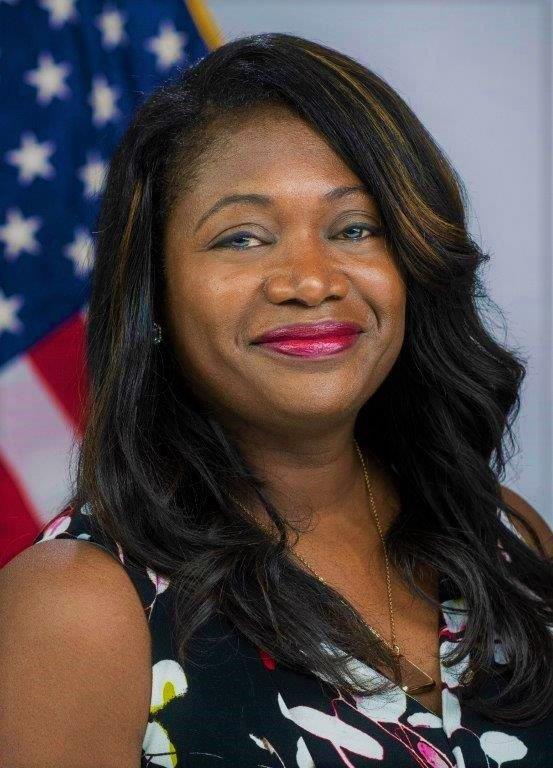
Samantha Richardson (Moderator)
Director
Governance and Impact Analysis
Centers for Medicare & Medicaid Services
Samantha Richardson is the Director of the Governance and Impact Analysis Group in the Office of Burden Reduction & Health Informatics (OBRHI). Ms. Richardson and her team are focused on unifying CMS's efforts to reduce regulatory and administrative burden for beneficiaries and the medical community, therefore enabling the health system to focus on providing higher quality care at lower cost and to fostering innovation in health care delivery.
She is responsible for leading enterprise-wide efforts and supports cross-agency projects to eliminate overly burdensome and unnecessary regulations. Ms. Richardson oversees initiatives to: measure the impact of CMS regulations; innovate tools to reduce redundancy in CMS regulations using AI; create strategic communications opportunities while engaging external stakeholders; additionally, her team develops databases and data analytic protocols to assist internal components as they develop policy.
Ms. Richardson has served in various leadership positions during her time at CMS. She recently served on the Departmental award winning COVID waiver team during the onset of the pandemic. Prior to that role she served as a senior advisor in the CMS Office of the Administrator leading and supporting CMS's burden reduction initiatives under the Patients over Paperwork Initiative. She has also served as a Director within the CMS Center for Program Integrity (CPI), where she led CPI's program risk assessment and strategy development functions. She also served in leadership and management positions in the Center for Clinical Standards and Quality (CCSQ) on National Coverage Determination (NCDs) and the Quality Improvement Organization (QIO) programs.
Before joining CMS, Ms. Richardson was a consultant focused on IT and health policy contracts with CMS and the Food and Drug Administration.

Darlene Fleischmann
Technical Advisor for Policy
Centers for Medicare & Medicaid Services
Dar Fleischmann started her career as a health care attorney in litigation. She then focused on nonprofit advocacy, where she worked for many years prior to joining federal service. After joining CMS in 2013, Dar spent a number of years working in the Center for Clinical Standards and Quality, where her work focused on Quality Improvement initiatives, including the Personal and Family Engagement Strategy launched in 2016. It was her role in preparing the Health Literacy portion of that Strategy that afforded her the privilege of an extended detail opportunity with Indian Health Service. Through her work with IHS, she was able to travel extensively to remote areas and improve her understanding of access to care challenges and diverse social needs. In addition, Dar has also earned an advanced law degree, from Loyola University – Chicago, in Health law, during her time in federal service. In 2020, Dar joined the Office of Burden Reduction and Health Informatics, Governance, and Impact Analysis Group. Her primary focus includes policy analysis, stakeholder engagement projects and communication, and regulatory review.
 May 1, 2023 12:35
May 1, 2023 12:35Health disparities continue to persist among End Stage Renal Disease patients (ESRD), and the causes of them are complex and interrelated. In addition to the structural barriers impeding patients’ access to care, patients’ complex health-related social needs also affect their short-term and long-term health outcomes. Data from the ESRD Quality Reporting System were analyzed to investigate issues related to accessing care, in conjunction with the measures of social determinants of Health to identify areas needing targeted interventions. Data show that patients residing in under-resourced neighborhoods experience barriers to care, including reduced access to home dialysis programs and decreased transplant waitlisting. Disparities persist throughout the kidney transplantation process, including wait time as well as receipt of transplant. Strategies to advance health equity in the ESRD community require multilevel interventions. Research suggests that equity training, including cultural humility training and structural competency, could strengthen the capacity of health care providers to recognize and respond to structural issues at various levels. Evidence-based interventions to reduce health disparities in underserved populations, as well as case studies from the most disadvantaged neighborhoods, can provide a roadmap with innovative approaches to coordinate care and advance health equity in the ESRD community.

Dr. Chiao Wen Lan (Moderator)
Social Scientist
Health Services Advisory Group
Chiao Wen Lan is a Social Scientist for the End Stage Renal Disease National Coordinating Center (ESRD NCC). She conducts research and supports clinical, technical, and analytic efforts focused on advancing health equity. She is supporting CMS in identifying unmet health-related social needs affecting the renal community, developing strategic approaches for the use and analysis of healthcare data, and targeting interventions and innovative solutions to advance kidney care nationwide. She is a research scientist with experiences conducting quantitative and qualitative analyses focusing on health equity. Her work includes analyzing and interpreting large datasets to reduce health disparities among people who are underserved. Previously she served as the co-investigator for an NIH grant and led the epidemiological assessment to examine the impacts of neonatal opioid withdrawal syndrome in tribal communities. She also evaluated COVID-19 impacts and supported a CDC project to prevent suicide, intimate partner violence, and adverse childhood effects. Dr. Lan has been involved in multiple NIH-funded randomized controlled intervention trials aimed at ameliorating the impacts of substance misuse and HIV/AIDS on patients and families around the world, especially in resource-limited settings. A certified public health professional, she holds a doctorate in Community Health Sciences from the UCLA Fielding School of Public Health and a Master of Public Health from Brown University.

Dr. Shika Pappoe
Chief Medical Officer
Stive Health
Dr. Shika Pappoe completed her undergraduate and medical degrees at Yale University, followed by her internal medicine residency and nephrology fellowship at Brigham and Women’s Hospital. She also completed a Master of Public Health degree from Harvard University. She subsequently joined a private practice group in California. While she loved practicing community nephrology, she was eager to return to an academic setting where she could teach, participate in research and work in an innovative care setting. She therefore moved to the nephrology division of the Keck School of Medicine and worked at Los Angeles County Hospital. After working in a variety of healthcare settings and seeing both the broken parts of the system and opportunities for innovation, she decided that it was time to be part of the solution. In her pursuit to become a physician leader, she earned an MBA from Wharton. With her experience in kidney care, public health, and business management, and most importantly, her passion around improving the patient experience, Dr. Pappoe joined CareMore, a leader in value-based care, as a regional medical officer. She later served as the Director of Nephrology and Kidney Disease Prevention. Dr. Pappoe’s extensive training and experience have proven invaluable in her current role as Chief Medical Officer at Strive Health, a tech-enabled healthcare organization that delivers value-based care to patients across the renal disease spectrum, from CKD to ESRD.
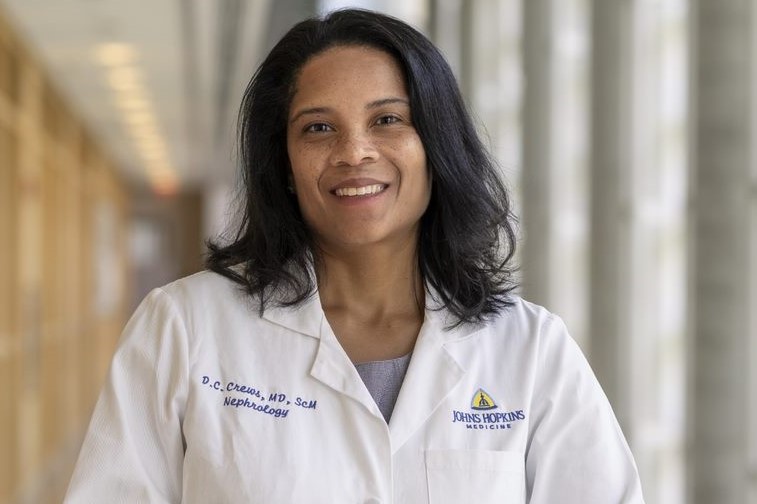
Dr. Deidra Crews
Professor of Medicine
Johns Hopkins University School of Medicine
Dr. Crews is a Professor of Medicine in the Division of Nephrology at the Johns Hopkins University School of Medicine. She holds appointments with the School of Nursing, the Welch Center for Prevention, Epidemiology and Clinical Research, the Center on Aging and Health, and the Center for Health Equity, where she is Deputy Director. Her research focuses on addressing disparities in the care and outcomes of kidney disease and hypertension through epidemiologic studies and clinical trials. An elected member of the American Society for Clinical Investigation, Dr. Crews has received numerous awards for her research contributions, including the 2018 Johns Hopkins University President’s Frontier Award, the 2019 W. Lester Henry Award for Diversity and Access to Care from the American College of Physicians, and the 2019 Distinguished Leader Award from the American Society of Nephrology. Dr. Crews received her undergraduate degree from the University of Virginia and her medical degree from Saint Louis University. A graduate of the Osler Medical Training Program, she completed nephrology fellowship and a master’s in clinical epidemiology degree at Johns Hopkins.

Dr. Dinushika Mohottige
Assistant Professor
Icahn School of Medicine at Mount Sinai
Dinushika Mohottige is a Nephrologist and Assistant Professor in the Division of Nephrology at the Institute of Health Equity Research at the Icahn School of Medicine at Mount Sinai. She received a B.A. in Public Policy and a Health Policy Certificate from Duke University in 2006, where she was a Robertson Scholar. She then earned an MPH in Health Behavior/Health Education from the UNC Gillings School of Global Public Health and a medical degree from the University of North Carolina at Chapel Hill School of Medicine, followed by Internal Medicine and Nephrology training at Duke University Hospitals. Dinushika is committed to patient and community-centered inequity-focused kidney disease research focused on the role of structural racism and socio-structural inequity on CKD and kidney transplant.
 May 1, 2023 12:35
May 1, 2023 12:35In this session, the Center for Medicaid and CHIP Services (CMCS) and a representative from Pennsylvania Health and Human Services (PA HHS) will discuss progress related to strengthening home and community-based services (HCBS) and advancing health equity in Medicaid. The session will cover current efforts related to quality measurement, measure development, publicly reporting on HCBS quality, and quality activities to promote equity. The session will close with a discussion between the CMCS and PA HHS representatives covering the topics of data stratification, gaps in measures, involving stakeholders in designing measures, and others.

Melanie Brown, PhD, MPH
Technical Director
Disabled and Elderly Health Program's Group
Centers for Medicare and Medicaid Services
Melanie Brown is a Technical Director in the Disabled and Elderly Health Program’s Group of the Centers for Medicare and Medicaid Services (CMS). Melanie is responsible for providing technical direction for grant programs and delivery system reform initiatives that promote and support community integration for disabled and elderly individuals. Prior to coming to CMS, Melanie served as a Social Science Analyst and Public Health Advisor at the Substance Abuse and Mental Health Services Administration (SAMHSA), where she was responsible for developing and implementing behavioral health services, initiatives, and policies that aimed to help adults with serious mental illnesses and co-occurring disorders to live successfully in the community. Melanie also served as a senior advisor and subject matter expert on issues related to program evaluation, quality measurement, data collection, and data quality standards. Prior to her work at SAMHSA, Melanie served with the Department of Health and Human Services’ Office of the Assistant Secretary of Health, where she provided technical expertise on program evaluation and quality measurement for programs related to reproductive health, adolescent health, family planning, and access to publicly-funded health services. Melanie holds a PhD in Health Policy from George Washington University, a Masters of Public Health from the Johns Hopkins Bloomberg School of Public Health, and a Masters in Clinical Psychology from the University of Illinois.

Brian MacDaid
Director
Division of Quality Assurance
Office of Long-Term Living Bureau of Quality
Assurance & Program Analytics
Pennsylvania Health and Human Services
Brian MacDaid has been working for the Commonwealth in DHS for the past 22 years and currently works for the Department of Human Services (DHS) Office of Long-Term Living (OLTL) in the Bureau of Quality Assurance and Program Analytics as the Director of the Quality Assurance Division. He has experience with developing statistical data reports, project management, developing policy, developing quality monitoring plans and developing/implementing corrective action plans and quality improvement plans. He also has experience with developing and implementing system/software updates and working with outside vendors for various system/software projects. Additionally, Brian has experience with monitoring the Managed Care Organizations’ adherence to the OLTL Community HealthChoices Waiver Agreement through Operational Reports, HCBS CAHPS Survey, NCQA Accreditation, SMART Standards, Waiver Assurances and Performance Measures and quality improvement activities. He has over twenty years of experience working in the geriatrics field in a skilled nursing home setting, community assessor for the Dauphin County Area Agency on Aging, and program services assistant in a secured personal care home setting.
 May 1, 2023 12:35
May 1, 2023 12:35This session from CMS’ Office of Minority Health (OMH) will provide updates on the status of CMS health equity data and several of the tools that utilize the data to assess the landscape and identify disparities. The panel will review 1) the recently released CMS OMH white paper "The Path Forward: Improving Data to Advance Health Equity Solutions", which includes the current state of health equity data, progress to date, and future actions for improvement; 2) an update to the Health Equity Summary Score (HESS) and the HESS Dashboard, recently piloted for Medicare Advantage Plans to be able to view their performance on addressing health disparities; and 3) the Mapping Medicare Disparities (MMD) Tool, which is an interactive map that can be utilized to identify areas of disparities between various subgroups of Medicare beneficiaries.

Dr. Jessica Maskut
Technical Director
Data and Policy Analytics Group
Office of Minority Health
Center for Medicare and Medicaid Services
Dr. Jessica Maksut is a social and behavioral health scientist with a PhD in human development from the University of Connecticut and postdoctoral training in epidemiology from the Johns Hopkins Bloomberg School of Public Health. Her research agenda centers health and health care equity with attention to race, sexual orientation, and gender identity. Dr. Maksut joined the Centers for Medicare & Medicaid Services’ Office of Minority Health in March 2020 and works as a Technical Director in its Data and Policy Analytics Group.
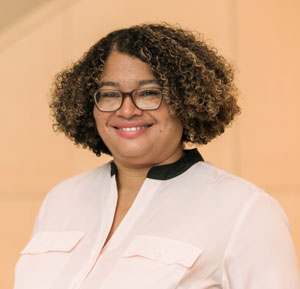
Dr. Nancy Chiles Shaffer
Technical Director
Data and Policy Analytics Group
Office of Minority Health
Center for Medicare and Medicaid Services
Dr. Nancy Chiles Shaffer currently serves as a Technical Director in the Office of Minority Health’s Data and Policy Analytics Group. Previously, she served at the Center for Medicare and Medicaid Innovation (CMMI) as the evaluation lead for the Financial Alignment Initiative Model. Dr. Chiles Shaffer earned her MS in Epidemiology and PhD in Gerontology from the University of Maryland, Baltimore. Nancy then completed a postdoctoral fellowship at the National Institute on Aging, National Institutes of Health researching changes in body composition and physical performance with age, health disparities, and minority aging.
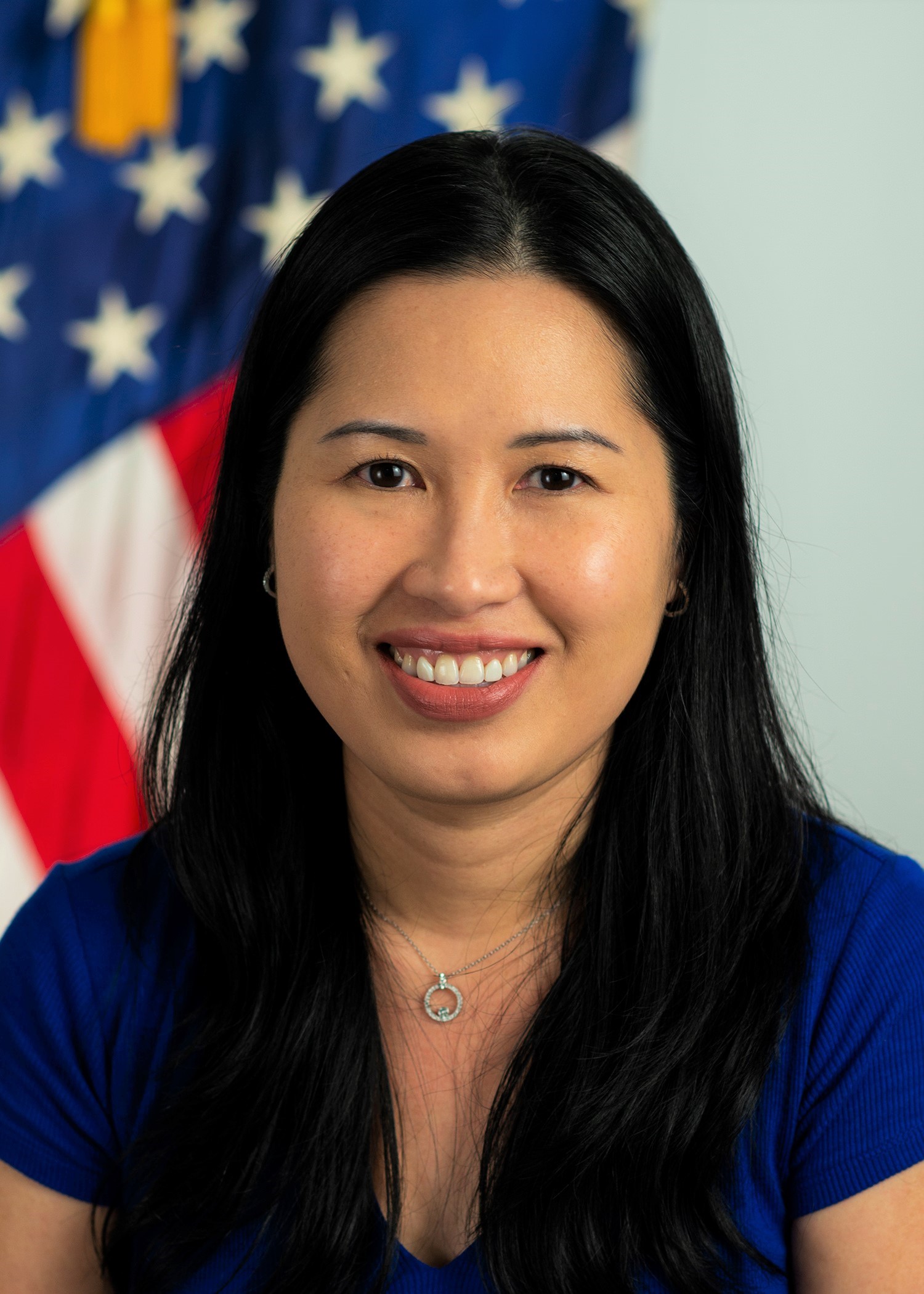
Meagan Khau
Director
Data and Policy Analytics Group
Office of Minority Health
Center for Medicare and Medicaid Services
Meagan Khau is the Director of the Data and Policy Analytics Group (DPAG) at the Centers for Medicare & Medicaid Services (CMS) Office of Minority Health (OMH). The Data and Policy Analytics Group conducts research and analyses to identify areas disparities to improve quality of care and access to care for the underserved populations and implements initiatives and data analyses to improve data collection and reporting of race and ethnicity, primary language, disability, and other characteristics associated with health disparities. Meagan received her Master of Health Administration from the University of Southern California.
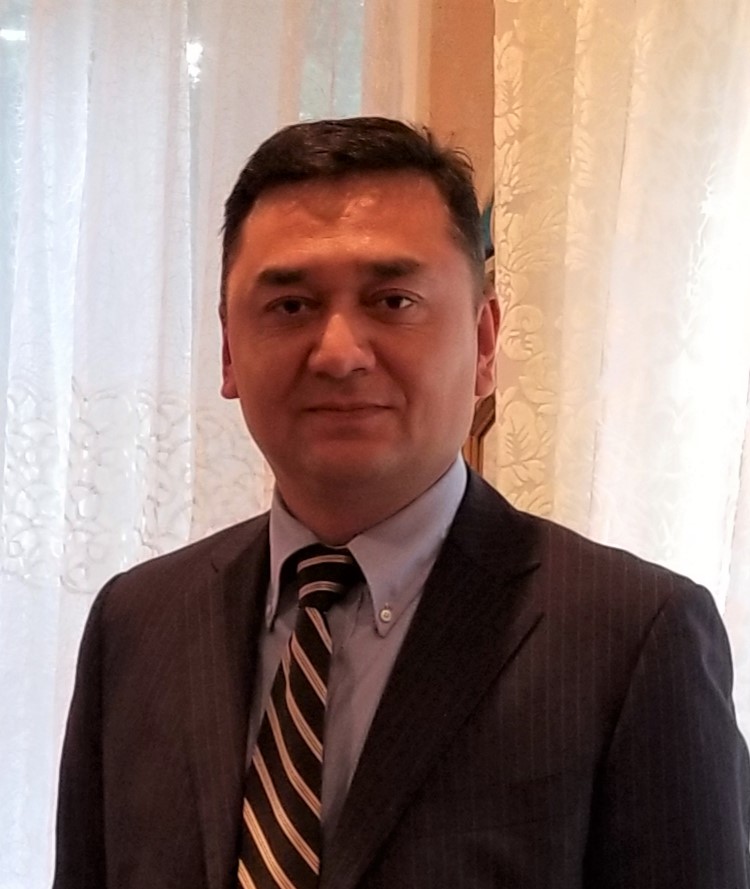
Abdugheni Ubul
Health Statistician
Office of Minority Health
Center for Medicare and Medicaid Services
Abdugheni Ubul has over 25 years of working experience in the various areas of public health including infectious and non-infectious diseases prevention and control, environmental health, community health, health research, data analytics and public health management. He has been with CMS’s Office of Minority Health for the last four years as a Social Science Research Analyst and Health Statistician. He analyzes Medicare and Medicaid data and policies on minority populations and leads several projects. He is the project lead for the Mapping Medicare Disparities (MMD) Tool that analyzes and visualizes disparities in chronic diseases, preventive services, mental health conditions and other disabling conditions. He works on planning, analysis, interpretation, and dissemination of the MMD Tool. He has analyzed chronic conditions disparities and social determinants of health and created and updated chronic conditions data snapshots. He also works on Post-Acute Care Data Standardization and Interoperability, Medicare beneficiaries’ Durable Medical Equipment utilization and access, and other tasks on health equity. Prior to joining CMS, he worked for a health surveillance project in the Census Bureau and worked in Virginia as a health specialist in state and counties’ health departments. He holds MPH and MD degrees.
 May 1, 2023 12:35
May 1, 2023 12:35Over 50% of adults in the US have hypertension, while only one in four have high blood pressure under control. The US Surgeon General issued a Call to Action for Hypertension Control in 2020. Across a QIN-QIO service area, hypertension control reflected the national statistics which continued to decline in 2021, further contributing to chronic conditions impacting the quality of life for Medicare beneficiaries. This decrease created an urgency to help providers evaluate current treatments and implement impactful changes.
In June 2022, HEARTS In America (HEARTS) was introduced, an international evidence-based program developed by the World Health Organization and led by the Pan American Health Organization. HEARTS targets hypertension control through standardized treatment protocols while reducing health disparities.
Through a peer-to-peer interactive learning virtual platform, a root cause analysis was performed regarding variations in treatment of hypertension. Over six months, the QIN-QIO engaged 550 participants in biweekly events discussing the initiative, critical drivers of hypertension, treatment protocols, and implementation.
Primary Care participants in SC implemented HEARTS in five communities with a potential impact of 116,667 beneficiaries. Several providers are implementing the HEARTS modules, based on their identified population. The outcomes target increased Blood Pressure Control, improved provider workflow through team-based care, and reduction in disparities.
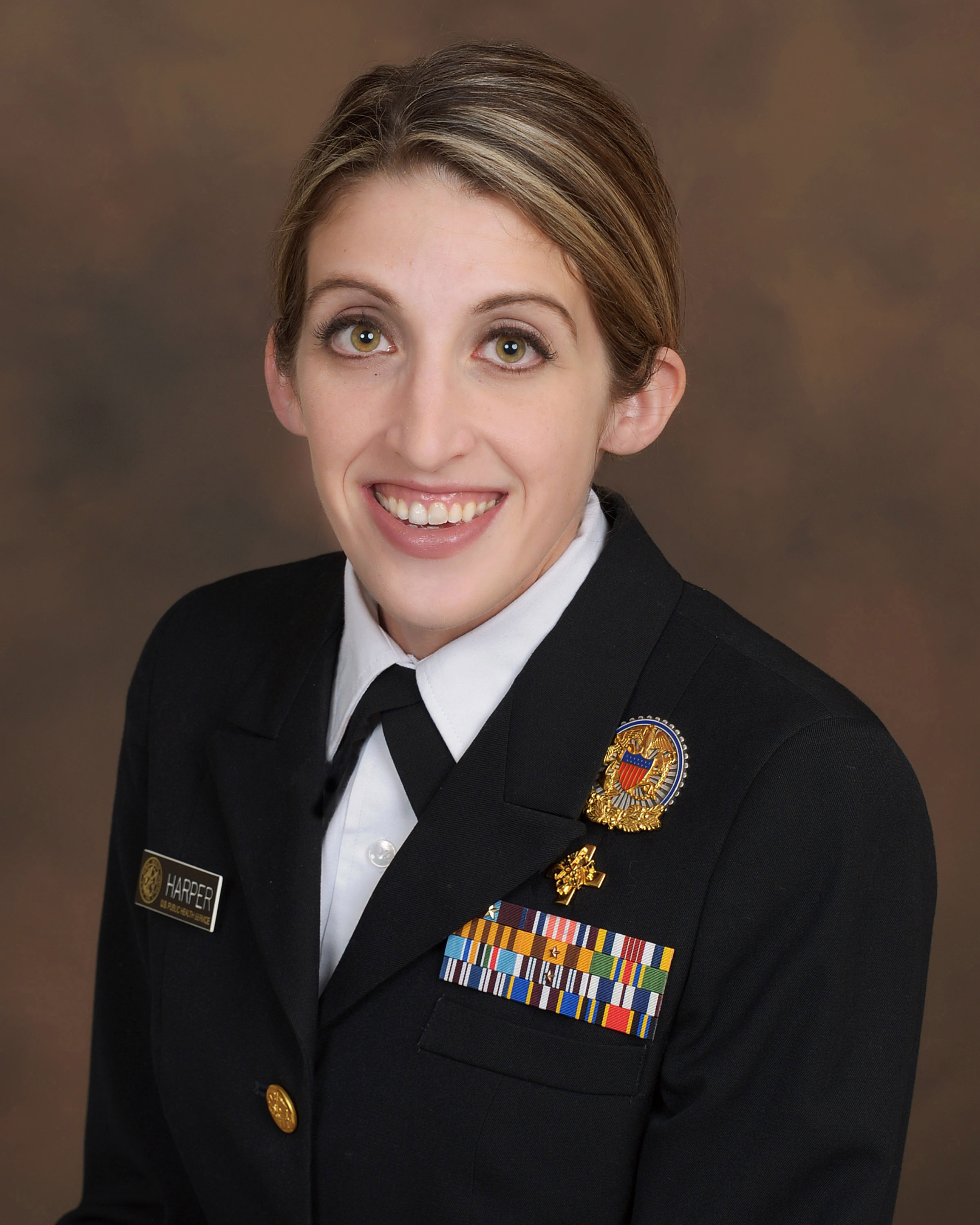
Stacy Harper, RN, MHA
Health Insurance Specialist
Center for Medicare and Medicaid Services
CDR Harper has ten years of experience in public health program management, grants management, and contract management. Her experience in public health program management includes women’s health, minority health, obesity prevention, cardiovascular health, opioid misuse, human trafficking, and more. Throughout her career at CMS she has also gained experience working with a variety of stakeholders and CMS Quality Improvement Organizations.
CDR Harper is a Commissioned Officer with the United States Public Health Service whose mission is to promote, protect, and advance the health and safety of the Nation. Her deployments include participating as a dental hygienist attached to the US Navy hospital ship, USNS Comfort, providing dental treatment to underserved populations in South America. She also deployed as a deputy site lead as part of the Covid-19 Community Based Testing Site Task Force. Furthermore, she has deployed to provide dental care for the Indian Health Service in remote areas of the country, and for HHS to serve as an Outreach Specialist for the Region VI, Regional Directors Office to implement the Affordable Care Act enrollment in HHS Region VI.

Thelma Baker, MSHA, RHIA,CPHQ
Chief Operating Officer and Principal Consultant
Health Quality Innovators
A respected leader in healthcare quality improvement and the QIO industry, Thelma Baker knows first-hand the challenges facing providers, practitioners, patients and communities across the region. Her more than 20 years of healthcare management experience ensures that we offer clients actionable, evidence-based strategies for improving clinical performance, population health and patient care processes. Thelma holds a Master of Science in Health Administration from Virginia Commonwealth University and a Bachelor of Science in Medical Records Administration from East Carolina University. She is a Certified Professional in Healthcare Quality and a Registered Health Information Administrator.
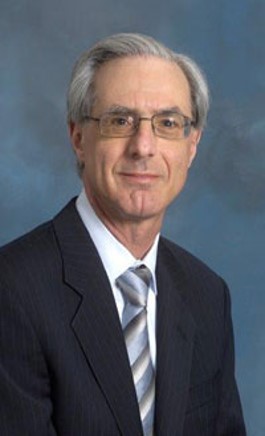
Donald Dipette, MD, FACP, FAHA
Distinguished Professor
University of South Carolina School of Medicine
Donald DiPette M.D., FACP, FAHA, is a Distinguished Professor at the University of South Carolina School of Medicine and previously held positions as Special Assistant to the Provost for Health Affairs, Vice President for Medical Affairs, and Dean of the School of Medicine at the University of South Carolina. He was Interim Senior Executive Dean, Chairman of Medicine, and Professor of Medicine at the Texas A&M Health Sciences Center College of Medicine. Dr. DiPette has served as the Director of Hypertension Research Program at Allegheny General Hospital.
He earned his bachelor's degree from Seton Hall University and his medical degree from Pennsylvania State University. He is board certified in internal medicine and clinical pharmacology with a specialist certification in hypertension. His major areas of research include the pharmacologic treatment of hypertension and the role of novel neuropeptides in the pathophysiology of hypertension.
Dr. DiPette is actively involved in the Global HEARTS Initiative of the Centers for Disease Control and Prevention and the World Health Organization and the HEARTS in the Americas Program of the Pan American Health Organization. He currently serves as the Envoy for Latin American and the Caribbean to the World Hypertension League and a member of the Editorial Board of the Journal of Clinical Hypertension.
He was the awardee of the World Hypertension League 2022 Detlev Ganten Excellence in Hypertension Award and Global Health Implementation.

Vicky Kolar, EMT-P, CPHQ
Quality Specialist
CCME (a partner with Health Quality Innovators)
South Carolina QIN-QIO
Vicky Kolar, EMT-P, CPHQ, has over 20 years of diverse healthcare experience within clinical, educational, and quality improvement programs. She helped launch Nevada's Division of Public and Behavioral Health, Heart Disease and Stroke Prevention Program, developed Nevada's curriculum for Community Health Workers and instructed the first pilot courses. For the last seven years, Vicky has served as a quality improvement advisor within QIN-QIOs. She continues to develop, lead, and implement initiatives within outpatient services focused on improving chronic disease centered around hypertension control, diabetes, chronic kidney disease, and care coordination models. Her work in Self-monitoring Blood Pressure (SMBP), elevating team-based care, and implementing HEARTS in America continues to impact healthcare quality improvement and patient outcomes.
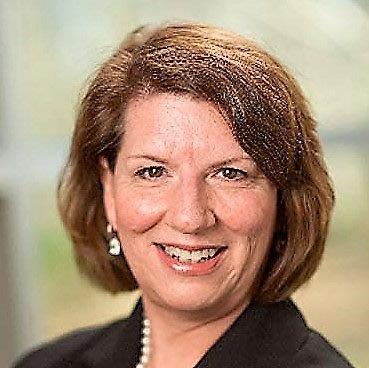
Karen Southard, RN, MHA, CPHQ
State Program Director
CCME (a partner with Health Quality Innovators) South Carolina QIN-QIO
Karen Southard is Vice President of Quality Improvement for the Carolinas Center for Medical Excellence (CCME). CCME leads the CMS Quality Improvement Network-Quality Improvement Organization (QIN-QIO) program for HQI in South Carolina.
Ms. Southard has more than 35 years of combined clinical, performance improvement, and leadership experience. Ms. Southard is responsible for developing and executing innovative strategies to deliver new levels of quality improvement across the healthcare continuum. Prior to returning to CCME, Ms. Southard held the role of Vice President of Quality & Clinical Performance Improvement at the North Carolina Healthcare Association.
Ms. Southard earned a Master's in Health Administration from Pfeiffer University; a Bachelor of Science in Business in Organizational Management; and a Diploma of Nursing at Illinois Masonic Medical Center School of Nursing. She is a Certified Professional in Healthcare Quality.
 May 1, 2023 12:35
May 1, 2023 12:35CCSQ Support Central portal provides our healthcare community with the advanced-level program and technical support to help customers meet CMS quality reporting requirements – it includes quick links and the ability to track or submit a ticket; you can also sign up for newsletters, so you never miss a beat. Our customer-focused interface is designed to meet you where you are. In 2022 we added the ability to schedule a callback and live chat with the CCSQ Service Center. Come join us to learn more and meet our automated assistant Chat and Resource Line (C.A.R.L.).
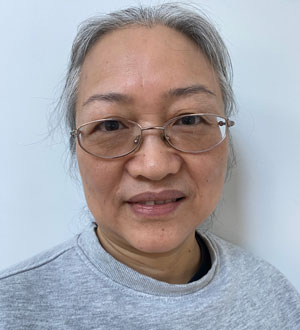
Min Lu
CCSQ ServiceNow Tech Lead
Information Systems Group
Division of Shared Services and User Experience
Centers for Medicare & Medicaid Services
Min graduated from Penn State with a Master degree in Mechanical Engineering. She has been working in consulting industries for 15 years before she joined CMS in 2010. In 2010-2021, Min had been working on CCSQ Hospital Quality Reporting (HQR) Programs in different roles. As team lead for production support, Min had also been exposed to ServiceNow for tickets tracking and handling from consumer perspective. In last several years, Min gained extensive experiences in SAFe Agile and DevSecOps that helps to deliver software system faster with better quality.
In 2021, Min has joined the CCSQ ServiceNow team as technical lead. Min has worked with the ServiceNow team and Service Center team, to deliver the features of Schedule a Callback and CARL (Live Chat).
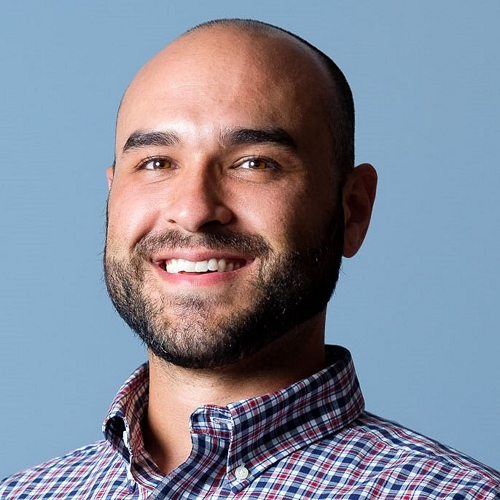
Jay Vancil
CCSQ ServiceNow Operation Lead
Information Systems Group
Division of Shared Services and User Experience
Centers for Medicare & Medicaid Services
Jay brings a dedicated, experienced, and detail focused IT Service Manager background to CCSQ. Experience in security administration, project oversight and management, customer support, and employee engagement.
Currently, Jay oversees operations and continuous improvement initiatives for the CCSQ Service Center, which provides world class support for CCSQ customers across all lines of business including internal CMS customers and contractors. Jay is motivated to deliver meaningful IT solutions that align with CMS’s strategic programs designed to improve quality, cost-efficiency, and accessible healthcare. This year Jay supported the development of 2 new features for CCSQ Support Central, opening up an omnichannel experience for our customers. Call Scheduling allows customers contacting the Service Center an option to set when they will speak to an agent. Live Chat allows our customers to begin speaking with an agent directly from the site.
 May 1, 2023 15:20
May 1, 2023 15:20First, Do No Harm – this statement from the Hippocratic Oath is as relevant today as it was thousands of years ago. It is the imperative for all who work in healthcare, to have as a first priority keeping individuals safe and free from preventable harm. Over two decades have passed since the reports on “To Err is Human” and “Crossing the Quality Chasm” which described the gaps in quality and safety. Multiple initiatives have been developed and implemented over the years to improve in these areas – some with success. For example, healthcare associated infections had significantly declined pre-pandemic. However, despite some success, there remain significant opportunities to improve safety, as noted in the recent OIG report (May 2022) and NEJM article (January 2023) which demonstrate nearly a quarter of hospitalized patients still experience harm.
Track: During the Covid-19 pandemic, safety metrics showed a significant decline, including a 40% worsening of healthcare acquired infections, and a rise in skilled nursing facility falls and pressure injuries. In November, 2022, HHS and Secretary Becerra called together a group of leading healthcare CEO’s and patient advocates to re-commit to patient safety. We call upon all who work in healthcare to re-evaluate, re-design, and re-energize initiatives to reduce preventable harm. In this session we will trace the history of safety performance in healthcare, identify key strategies for achieving improvements, and discuss key strategies that CMS (and other federal agencies) could use to best support patient safety.
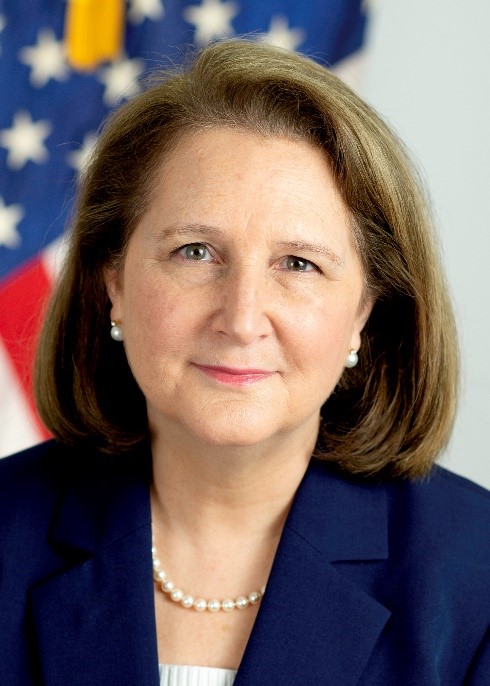
Dr. Michelle Schreiber, MD
Deputy Director
Center for Clinical Standards and Quality
Centers for Medicare & Medicaid Services
Dr. Schreiber is currently the Deputy Director of the Center for Clinical Standards and Quality at CMS, and the Director of the Quality Measurement and Value-Based Incentives Group. Dr. Schreiber is a general internal medicine physician with over 25 years of health care experience. Prior to coming to CMS, she was the Senior Vice President and Chief Quality Officer of Henry Ford Health System (HFHS) in Detroit, Michigan. Earlier roles at HFHS included the Division Head of General Internal Medicine, and the SVP of Clinical Transformation and IT Integration, where she was the clinical lead of the systemwide Epic implementation. The Epic implementation and use earned HFHS a Davies Award in 2018. She has also held senior leadership roles at the Detroit Medical Center, where she was the Chief Quality Officer, and with Trinity Health System where she was the national system Chief Medical Officer and acting interim Chief Medical Information Officer.
While at CMS Dr. Schreiber has led many quality initiatives, including MIPS transformation to value pathways, the modernization of the Hospital Stars program, as well as advancing digital quality measurement systems. She is on the boards of ACCME (continuing medical education), Leapfrog, and a member of HITACH (the national health information advisory committee) among others. Prior to joining CMS, she also participated in numerous state and national quality committees including the Board of Directors for the Michigan Hospital Association Keystone Center and the Patient Safety Organization, the Board of Directors of MPRO (Michigan Peer Review Organization – the Michigan QIO), the National Quality Forum Patient Safety Metrics Committee, and the National Quality Partners.
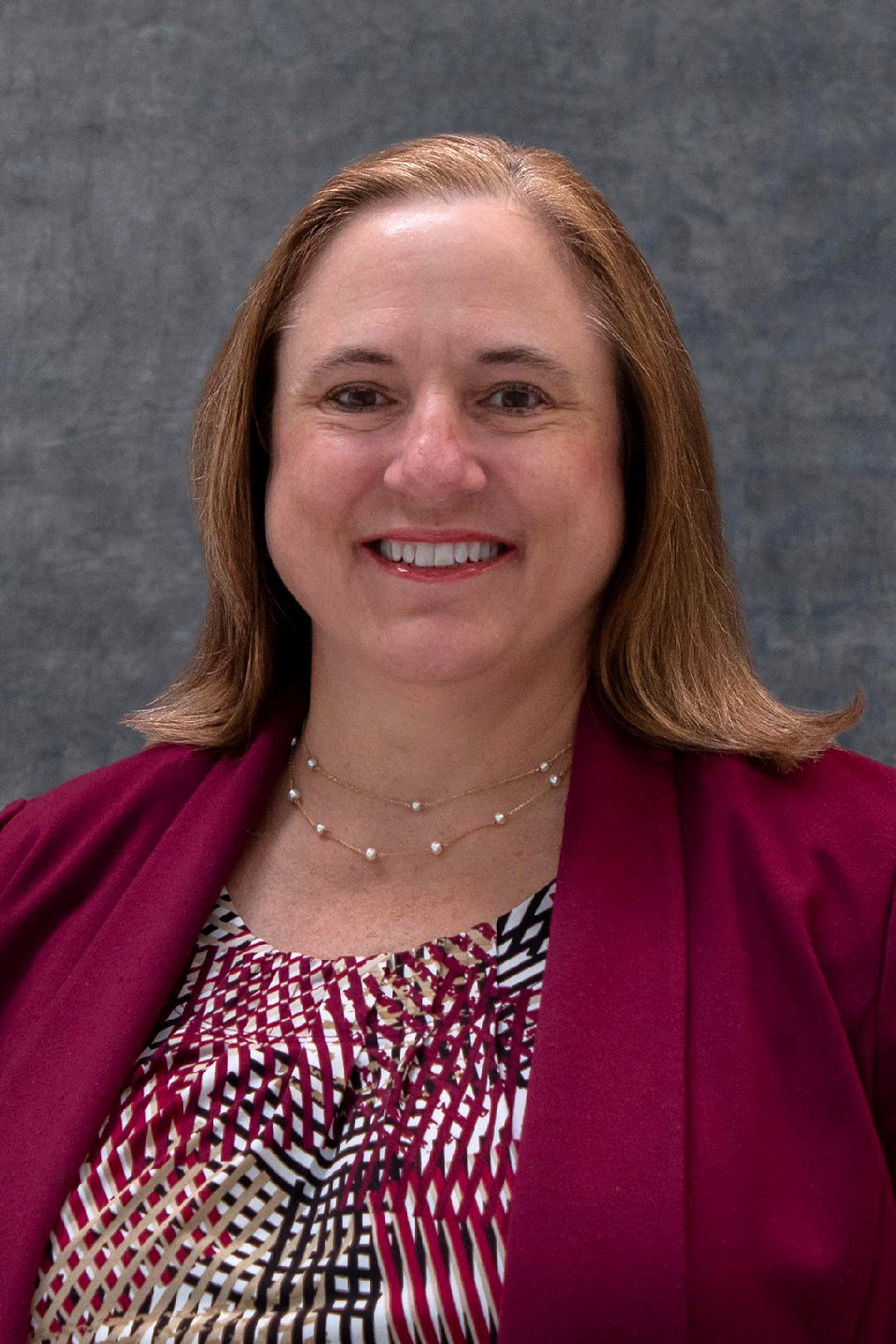
Erin Grace, MHA
Deputy Director
Center for Quality
Improvement and Patient Safety
Agency for Healthcare Research and Quality
Erin N. Grace, MHA, is Deputy Director of the Center for Quality Improvement and Patient Safety (CQuIPS) at the Agency for Healthcare Research and Quality (AHRQ). In this role, she works with the CQuIPS Director to manage the four divisions of the Center: General Patient Safety, Healthcare-Associated Infections (HAI), Patient Safety Organizations (PSOs), and Quality Measurement and Improvement (QMI), and she serves as the Acting Director for the HAI Division. Previously Ms. Grace served as Division Director for the General Patient Safety Program where she managed the Agency’s activities related to patient safety including funding of grants and contracts, and development and dissemination of evidence-based tools and resources to advance patient safety. Ms. Grace also served as Chief of Health IT Translation at AHRQ where she focused on knowledge translation, evaluating the impact of the AHRQ Health IT Portfolio’s work, and assessing the future research needs to be addressed by the Portfolio. She also managed contracts, grants, and other initiatives with special expertise in health information exchange, Medicaid, rural, and children’s health IT needs. Prior to her time at AHRQ, Ms. Grace served as Senior Vice President at the Primary Care Coalition of Montgomery County, MD; Assistant Vice President for Accreditation, at NCQA; and Administrative Director for Medical Affairs at Washington Hospital Center in Washington, DC. Ms. Grace received her Master’s Degree in Health Administration from Ohio State University.

Arjun Srinivasan, MD
Associate Director
Healthcare Associated
Infection Prevention Programs
Division of Healthcare Quality Promotion
Centers for Disease Control and Prevention
Dr. Srinivasan is the Associate Director for Healthcare Associated Infection Prevention Programs in the Division of Healthcare Quality Promotion at the Centers for Disease Control and Prevention. His research and investigative areas of concentration include outbreak investigations, infection control, multi-drug resistant gram-negative pathogens and antimicrobial use. He currently leads efforts to coordinate activities to prevent healthcare associated infections and to improve the use of antibiotics in hospitals.
 May 1, 2023 13:20
May 1, 2023 13:20 May 1, 2023 14:20
May 1, 2023 14:20The cumulative impacts of climate change represent the greatest threat to global public health of the coming decades, putting vulnerable communities at great risk and buffeting a healthcare system already at the limits of its capacity. This session from the HHS Office of Climate Change and Health Equity will describe this challenge, documenting the impacts of climate change on every dimension of Quality
as well as potential solutions. The presenters will introduce existing resources to support rapid action by health care organizations, including the tax incentives, grants and technical assistance made available by the Inflation Reduction Act, HHS agencies and other federal departments.
Live Q&A link : https://vfairs.zoom.us/s/95579697256
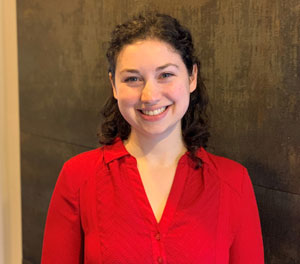
Jenny Keroack
Senior Policy Advisor
Office of Climate Change and Health Equity
Office of the Assistant Secretary for Health
U.S. Department of Health & Human Services
Jenny Keroack is a Senior Policy Advisor with the Office of Climate Change and Health Equity. Previously, she was a Health Insurance Specialist with the Centers for Medicare & Medicaid Services Office of Legislation, Fulbright Research Grantee to Romania, and Senior Analyst at the Network Science Initiative.

Aparna Bole, MD
Special Expert
Agency for Healthcare Research and Quality
Community Resilience Lead Office of Climate Change and Health Equity
Office of the Assistant Secretary for Health
U.S. Department of Health & Human Services
Aparna Bole, MD, is a pediatrician who serves as a Special Expert in the Office of the Director at the Agency for Healthcare Research and Quality, and a Senior Consultant in the HHS Office of Climate Change and Health Equity. She is also an Adjunct Associate Professor of Pediatrics at Case Western Reserve University School of Medicine in Cleveland, OH, and is particularly interested in the intersection between environmental stewardship, environmental justice, and pediatric public health. She is the immediate past chair of the American Academy of Pediatrics Council on Environmental Health and Climate Change. She has previously served in numerous other environmental health leadership roles including: as a member of the State of Ohio’s Lead Advisory Council; the Lead Safe Cleveland Coalition’s steering committee; the Trust for Public Land’s Ohio Advisory Council; the Ohio Environmental Council’s board of directors; and was a founding advisory council member of the Ohio Clinicians for Climate Action.

Joe McCannon
Senior Advisor
Agency for Healthcare Research and Quality and Health Sector Lead
Office of Climate Change and Health Equity
Office of the Assistant Secretary for Health
U.S. Department of Health & Human Services
Joe McCannon works at the U.S. Department of Health and Human Services (Senior Advisor, Agency for Healthcare Research and Quality), contributing to standing up the Department’s new Office of Climate Change and Health Equity (OCCHE). He manages the office’s work to mobilize and support the healthcare sector. He served in the Obama Administration as Senior Advisor to the Administrator at the Centers for Medicare and Medicaid Services (CMS) and was part of the founding team at the Center for Medicare and Medicaid Innovation (CMMI). He was previously Vice President at the Institute for Healthcare Improvement and co-founder of the Billions Institute. He has taught graduate-level courses on large-scale change and quality improvement at the UPenn School of Social Policy and Practice and the Harvard T.H. Chan School of Public Health and his writing has appeared in JAMA, NEJM, Health Affairs and Harvard Business Review. He is a graduate of Harvard University and was a Reuters Fellow at Stanford University.
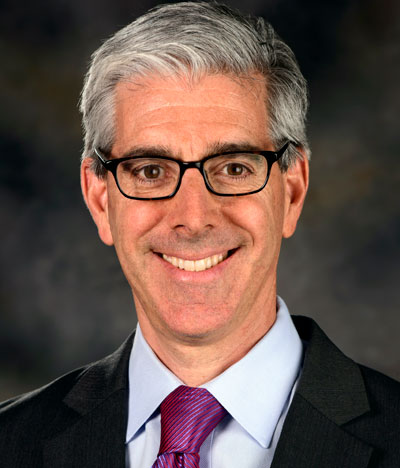
John Balbus, MD
Acting Director
Office of Climate Change and Health Equity
Office of the Assistant Secretary for Health
U.S. Department of Health & Human Services
John Balbus, MD is the Deputy Director and Acting Director of the new HHS Office of Climate Change and Health Equity. A physician and public health professional with more than 25 years of experience working on the health implications of climate change, Dr. Balbus has served as HHS Principal to the U.S. Global Change Research Program and co-chair of the working group on Climate Change and Human Health for the U.S. Global Change Research Program since he joined the federal government in 2009. Before coming over to OASH, Dr. Balbus served as Senior Advisor for Public Health to the Director of the National Institute of Environmental Health Sciences. He was elected to the National Academy of Medicine in 2021.
 May 1, 2023 14:20
May 1, 2023 14:20In 2022 the Centers for Medicare & Medicaid Services (CMS) debuted the CMS National Quality Strategy, a set of goals to raise the bar for a resilient, high-value health care system with a mission and vision aimed at promoting quality outcomes, safety, equity, and accessibility for all individuals. As the healthcare quality ecosystem continues to evolve at a rapid pace, we continue to coordinate our quality activities and efforts to reach our goals and measures our success with objectives and targets.
Track: After a year of listening and incorporating your feedback, we invite you to join us for an update on the CMS National Quality Strategy and the work we are doing to align quality measures across CMS as a part of the Universal Foundation.

Dr. Michelle Schreiber, MD
Deputy Director
Center for Clinical Standards and Quality
Centers for Medicare & Medicaid Services
Dr. Schreiber is currently the Deputy Director of the Center for Clinical Standards and Quality at CMS, and the Director of the Quality Measurement and Value-Based Incentives Group. Dr. Schreiber is a general internal medicine physician with over 25 years of health care experience. Prior to coming to CMS, she was the Senior Vice President and Chief Quality Officer of Henry Ford Health System (HFHS) in Detroit, Michigan. Earlier roles at HFHS included the Division Head of General Internal Medicine, and the SVP of Clinical Transformation and IT Integration, where she was the clinical lead of the systemwide Epic implementation. The Epic implementation and use earned HFHS a Davies Award in 2018. She has also held senior leadership roles at the Detroit Medical Center, where she was the Chief Quality Officer, and with Trinity Health System where she was the national system Chief Medical Officer and acting interim Chief Medical Information Officer.
While at CMS Dr. Schreiber has led many quality initiatives, including MIPS transformation to value pathways, the modernization of the Hospital Stars program, as well as advancing digital quality measurement systems. She is on the boards of ACCME (continuing medical education), Leapfrog, and a member of HITACH (the national health information advisory committee) among others. Prior to joining CMS, she also participated in numerous state and national quality committees including the Board of Directors for the Michigan Hospital Association Keystone Center and the Patient Safety Organization, the Board of Directors of MPRO (Michigan Peer Review Organization – the Michigan QIO), the National Quality Forum Patient Safety Metrics Committee, and the National Quality Partners.
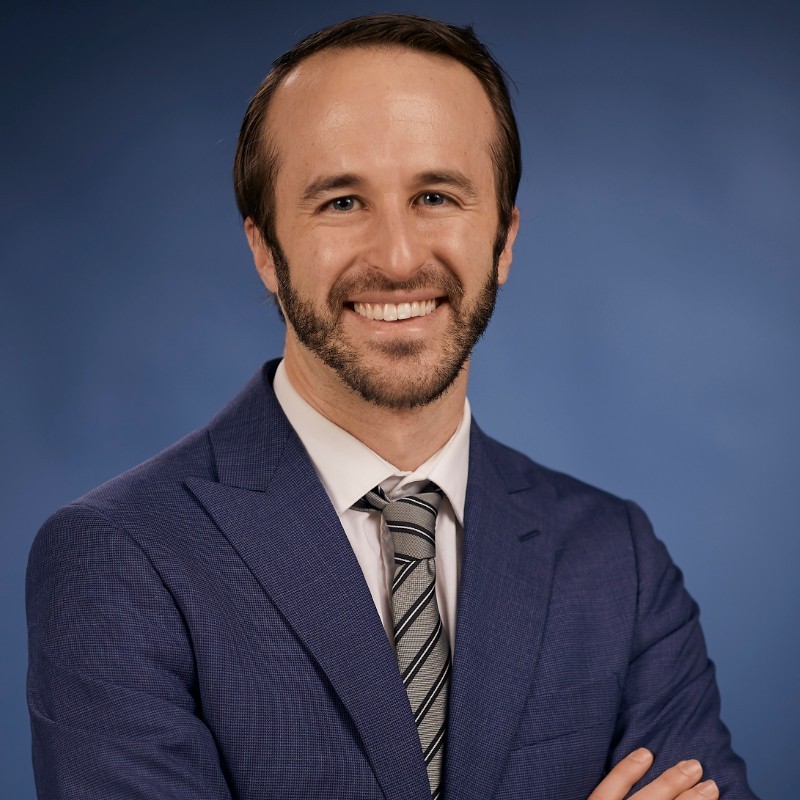
Doug Jacobs, MD, MPH
Chief Transformation Office Center for Medicare
Centers for Medicare & Medicaid Services
Dr. Doug Jacobs is the Chief Transformation Officer in the Center for Medicare at the Centers for Medicare and Medicaid Services (CMS). At CMS he is leading Medicare’s efforts to promote value-based care and advance health equity. He most recently served as the Chief Medical Officer and Chief Innovation Officer for the Pennsylvania Department of Human Services, helping to oversee the state Medicaid and human services programs amidst the pandemic for the 16,000-person state agency. He was tapped by Governor Wolf to lead the state’s Whole Person Health Reform initiative, which included expanding value-based care, promoting health equity, and addressing the social determinants of health. Under his leadership, the Department of Human Services created Pennsylvania's first equity incentive program in Medicaid, established new rules incorporate community-based organizations to address the social determinants of health, and oversaw Medicaid's increasing movement towards value-based purchasing and away from fee-for-service. He also helped lead the COVID-19 response for the agency, creating programs to protect long-term care facilities and roll out the COVID-19 vaccine to vulnerable populations. Dr. Jacobs is a practicing board-certified internal medicine physician and is an Assistant Professor of Clinical Medicine at the Penn State Hershey Medical Center. He trained in Internal Medicine Primary Care at the Brigham and Women’s Hospital and served as Chief Resident at the West Roxbury VA hospital, received his MD at the University of California San Francisco School of Medicine, his MPH at the Harvard T.H. Chan School of Public Health, and his Bachelor’s in Sciences from Brown University.
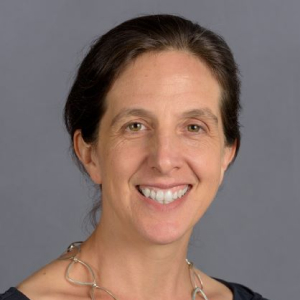
Susannah Bernheim, MD, MHS
Chief Quality Officer & Senior Advisor
Center for Medicare and Medicaid Innovation
Centers for Medicare & Medicaid Services
Susannah M. Bernheim, MD, MHS is Chief Quality Officer and Sr. Advisor for the CMS Innovation Center. Prior to joining CMS, Dr. Bernheim was Senior Director of Quality Measurement at the Yale/Yale-New Haven Hospital Centers for Outcomes Research and Evaluation (CORE) and an Associate Professor in the Section of General Internal Medicine at the Yale School of Medicine.
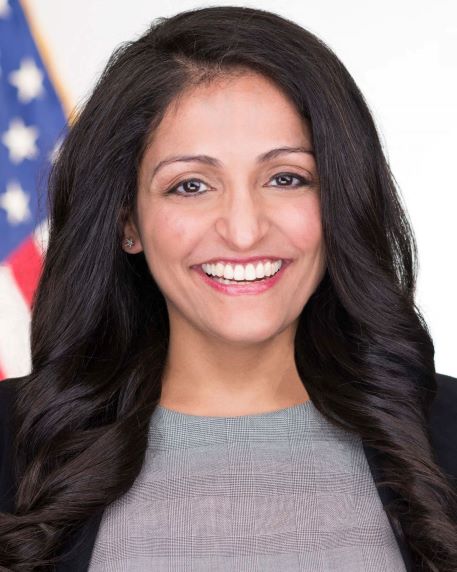
Aditi Mallick, MD
hief Medical Officer Center for Medicaid and CHIP Services
Centers for Medicare & Medicaid Services
Aditi Mallick, M.D. is the Chief Medical Officer for the Center for Medicaid and CHIP Services, where she leads the Center’s clinical strategy and cross-center work on health equity, social determinants of health, and innovation in whole-person care among other areas.
Before joining CMCS, Dr. Mallick led the COVID-19 Response Command Center for the North Carolina Department of Health and Human Services (NCDHHS) where she oversaw strategic and operational efforts around vaccination, testing, case investigation, and contact tracing statewide. A core focus of her COVID-19 work was ensuring equitable access and improving outcomes for historically marginalized populations.
Before NCDHHS, Dr. Mallick worked closely with a range of healthcare stakeholders across the public and private sectors – including state Medicaid agencies, provider organizations, managed care organizations, and other payors – focusing on strategy, innovation, and data-driven change implementation. Her prior federal experience includes serving as a Senior Medical Advisor in the Office of the Administrator at CMS, where she focused on MACRA implementation, value-based payment in Medicare fee-for-service, clinician engagement, and clinician burden reduction.
Dr. Mallick continues to care for patients and brings that experience to her work at CMS. She earned her A.B. with honors from Harvard College, her M.D. from Stanford University School of Medicine, and completed internal medicine residency at Massachusetts General Hospital and Harvard Medical School.
 May 1, 2023 14:20
May 1, 2023 14:20The Office of the National Coordinator for Health Information Technology (ONC) developed the United States Core Data for Interoperability (USCDI) as a standardized set of health data classes and constituent data elements for nationwide, interoperable health information exchange. ONC established an expansion process for USCDI that creates a “rising floor” over time based on input from industry and federal partners and consideration of various factors such as impact, feasibility, and standards maturity. Subsequently, ONC launched USCDI+, a service that ONC provides to USCDI+ partners, in collaboration with their key stakeholders, who need to establish, harmonize, and extend the use of interoperable datasets that advance beyond the core data in the USCDI to meet agency or use-case specific programmatic requirements. USCDI and USCDI+ support efforts to share health data more rapidly to ensure effective and equitable care across the United States. As part of the USCDI+ initiative, ONC and CMS are collaborating around the identification of a core data set to support quality measurement. Join ONC presenters as they discuss how USCDI+ Quality can advance goals of interoperability and quality improvement across CMS programs and how ONC is working with partners to address gaps in quality measurement data standards across the health care ecosystem.
Live Q&A Link : https://vfairs.zoom.us/s/94212312160

Elisabeth Myers, MBA
Deputy Director
Office of Policy
Office of the National Coordinator for Health Information Technology
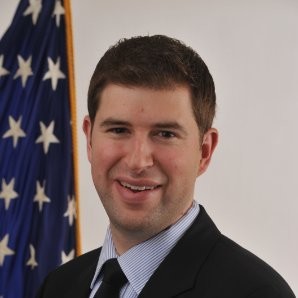
Matthew Rahn
Acting Director
Standards Division
Office of the National Coordinator for Health Information Technology
Matthew Rahn is the Acting Director of the Standards Division in Office of Technology at ONC. He joined ONC in February 2011. He has more than 15 years of experience working in the federal government, including working at the Health Resources and Services Administration (HRSA) prior to ONC. Since joining ONC, Matt has worked on many health IT standards related projects, including being the C-CDA Lead for ONC. Matt has extensive experience working with HL7 on improving the adoption and implementation of C-CDA and FHIR. Before working at ONC, Matt was an Analyst in the Office of Legislation at HRSA where he monitored legislation pertaining to Community Health Centers, National Health Service Corps, and Rural Health. Matt earned his undergraduate degree in Health Sciences from The University of Arizona and is originally from Grants Pass, OR

Kyle Cobb, MS
Branch Chief
Office of Technology
Office of the National Coordinator for Health Information Technology
 May 1, 2023 15:10
May 1, 2023 15:10CMS’ Behavioral Health Strategy outlines goals to support the whole emotional and mental well-being of a person, and promote person-centered behavioral health care. This is aligned with the HHS Roadmap for Behavioral Health Integration, which aims to coordinate behavioral health work across HHS operating divisions. Rising numbers of Americans living with mental disorders including substance use disorders (SUD) and suicidality appears to have been exacerbated by the COVID-19 pandemic, making the integration of behavioral and physical health an urgent need. This roundtable discussion will be a continuation of the conversation started in the educational session, “Best Practices in Mental Health and Substance Use Disorders Services.” Hear more from the presenters on taking the best practices shared earlier and integrating them into practice at all levels.

Dr. Arkaprava Deb (Moderator)
Medical Officer
U.S. Department of Health and Human Services
Dr. Deb is a board-certified psychiatrist and a board-certified preventive medicine physician working for the Center for Medicare within CMS. Before CMS, he worked for New York City’s public hospitals: Kings County Hospital and Bellevue Hospital. He practiced with the First Episode Psychosis program and Emergency Psychiatry in two of the busiest Departments in the Nation. This included frontline mental health delivery at the beginning of the COVID19 pandemic in Spring 2020 in New York City. His mental health quality work has included residency education development and de-stigmatization of mental illness in communities and organizational settings. His health policy work has included national healthcare payment systems analysis and modelling illness through administrative healthcare data analysis. He sees adolescent and young adult patients at a FQHC, the Door Adolescent Health Center (New York, NY), and he teaches psychiatry residents at SUNY Downstate College of Medicine (Brooklyn, NY).

Dr. Elisabeth Kato, MD, MRP
Medical Officer
Agency for Healthcare Research and Quality
Elisabeth Uphoff Kato, MD, MRP, is a medical officer at the Agency for Healthcare Research and Quality in the Center for Evidence and Practice Improvement, where she coordinates AHRQ activities related to Substance Use Disorder and supports the National Center for Excellence in Primary Care. She previously served as medical officer to the Evidence-based Practice Center Program and the US Preventive Services Task Force at AHRQ. Prior to joining the federal government, she worked as a Senior Medical Research Analyst with Hayes Inc. Before turning to medicine, Dr. Kato worked on international development projects in Nepal, Thailand, and Cambodia. Dr. Kato received medical training at the University of Maryland and has master’s and bachelor’s degrees from Cornell University.

Dr. Yngvild Olsen
Director
Center for Substance Abuse
Substance Abuse Mental Health Services
Dr. Yngvild Olsen serves as the Director for the Center for Substance Abuse Treatment (CSAT). She has a long history of working within the addiction treatment field to expand access to care and enhance quality. Dr. Olsen has held numerous senior volunteer leadership positions in the field of addiction medicine. These have included vice president of the American Society of Addiction Medicine, president of the Maryland Association for the Treatment of Opioid Dependence, and president of the Maryland/DC Society of Addiction Medicine. She also has served on the boards of the National Council on Alcohol and Drug Dependence-Maryland, and Stop Stigma Now, and as a clinical expert to the Providers Clinical Support System (PCSS).
After graduating from Harvard Medical School, Dr. Olsen completed residency training in internal medicine and served as primary care chief resident at Boston Medical Center. She completed a Fellowship in General Internal Medicine at Johns Hopkins, during which time she received a Master’s in Public Health degree from the Johns Hopkins Bloomberg School of Public Health. Dr. Olsen has written and lectured extensively on opioid use disorder and its treatments, the stigma of addiction, the integration of behavioral health and medical care, and clinical and policy solutions to the overdose epidemic. She draws inspiration from the opportunity to provide care for people with substance use disorders as an addiction medicine specialist and general internist.

Marsden McGuire, M.D., M.B.A.
Director
Continuum of Care and General Mental Health
Office of Mental Health and Suicide Prevention
Department of Veterans Affairs
Dr. Marsden McGuire currently serves as Director, Continuum of Care and General Mental Health in the Office of Mental Health and Suicide Prevention at the Department of Veterans Affairs Central Office (VACO) in Washington, DC. His portfolio includes oversight of the continuum of mental health care, including inpatient, residential, specialty and general outpatient services as well as cross-cutting services including evidence-based psychotherapies, substance use disorders, geriatric mental health, psychosocial rehabilitation and recovery services, women’s mental health, family services and military sexual trauma. During his 9 years at VACO, Dr. McGuire has led numerous interprofessional and collaborative initiatives within VA, with other federal agencies, and with private sector stakeholders aimed at promoting Veteran-centered care that is effective, safe, and measurable. Previously, Dr. McGuire held leadership positions in psychiatry at the Johns Hopkins Bayview Medical Center, Sheppard Pratt Health System, and the VA Maryland Health Care System.
Dr. McGuire received a BA (History, the Arts and Letters) from Yale University, an MD from the University of North Carolina, and completed his internship, psychiatry residency and a geriatric psychiatry fellowship at Johns Hopkins (where he later completed an MBA in medical services management). He holds academic positions at Johns Hopkins and the University of Maryland Schools of Medicine and is board certified in General and Geriatric Psychiatry. He is a recent President of the Maryland Psychiatric Society, a Fellow of the American College of Psychiatrists, a Distinguished Life Fellow of the American Psychiatric Association and a 2018 recipient of the National Alliance on Mental Illness’ Exemplary Psychiatrist Award.

Jessica Walker, Ph.D., L.P.
National Clinical Suicide Prevention Telehealth Coordinator
Office of Mental Health and Suicide Prevention
Department of Veterans Affairs
Jessica A. Walker, Ph.D. is a licensed psychologist with over 13 years of service with VHA. She currently serves as the National Suicide Prevention Clinical Telehealth Coordinator, overseeing an initiative that provides virtual evidence-based psychotherapy and interventions to Veterans with a history of suicidal self-directed violence behaviors. Her previous VA work has included coordinating the National Problem-Solving Training (PST) program and the VISN 6 Telemental Health (TMH) Post Traumatic Stress Disorder (PTSD) Hub. A graduate of Lehigh University, she has authored and co-authored over 20 publications and presentations. Most recently, she co-authored a publication in the Clinical Gerontologist with other distinguished VHA colleagues: Problem solving training for veterans with complex comorbidities: Treatment delivery adaptations during COVID-19.
 May 1, 2023 15:10
May 1, 2023 15:10In keeping with CMS’ priorities for improving patient safety, the Beneficiary and Family Centered Care National Coordinating Oversight and Review Center (BFCC NCORC) performs a systematic screening of medical records for adverse patient safety events to provide actionable feedback to Federal programs that support patient safety. This work is used to: • Identify trends in patient safety events occurring in hospitals across the U.S. • Support enhancements in hospital safety monitoring approaches. • Provide the data needed for quality improvement and education initiatives. Join us to hear about findings and future directions.

Wendy Gary, MHA
Chief Operating Officer
Avar Consulting Executive Director
BFCC-QIO Operations
Project Director
BFCC NCORC
Wendy Gary, M.H.A., has more than 30 years of experience providing quality and performance improvement expertise to health care organizations. She serves as the Chief Operating Officer for Avar Consulting, Inc., Executive Director of the BFCC-QIO, and Director of the BFCC NCORC. Ms. Gary holds an MHA, a Dual Bachelor’s Degree in Business and Health Science and Policy, and post-graduate certificates in Management Ethics and Aging.

Brian Preslopsky
Vice President
Avar Consulting Analytic Director
BFCC NCORC
Brian Preslopsky, M.A., has over 25 years of experience in economic research and modeling. His areas of expertise encompass transportation policy and regulations, environmental economics, and energy markets. From 2007 through 2016, Mr. Preslopsky managed a team of consultants that provided regulatory impact assessment support to the DHS Transportation Security Administration (TSA) and the DOT Federal Motor Carrier Safety Administration (FMCSA), Pipeline and Hazardous Materials Safety Administration, and Office of the Secretary of Transportation. He also served as the lead regulatory economist on more than two dozen rulemakings, which included numerous high-profile rules with broad national and international public safety implications.

Stephanie Fry
Senior Study Director
Westat Deputy Director
BFCC NCORC
Stephanie Fry is a survey methodologist who leads health services and policy research. She has supported the QIO program and evaluation work for more than 15 years and is currently serving as the BFCC NCORC Deputy Director. Ms. Fry is also a Senior Study Director at Westat where her work focuses on design and implementation of healthcare program evaluations, including the collection and reporting of stakeholder, beneficiary, provider, and payer perspectives.
 May 1, 2023 15:10
May 1, 2023 15:10This session will focus on a blend of CMS work with partners and communities to improve oral health. Presentations include discussions on the two Oral Health Integration tools used by Medicaid Oral Health Integration Learning Collaborative participants. This will be followed by a discussion on the New York State Dental Insurance Policy team’s participation in the CMS Quality Improvement Collaborative
Advancing Prevention and Reducing Caries in Medicaid. This session will review strategies for stakeholders to affect change and public acceptance of challenges. The final presentation will focus on the training and technical assistance strategies used to assist over 1,000 health center dental practices to implement and improve on the HRSA UDS Sealants Measure and the role of quality improvement in identifying strategies to increase sealant rates and mitigate the impact of COVID-19.
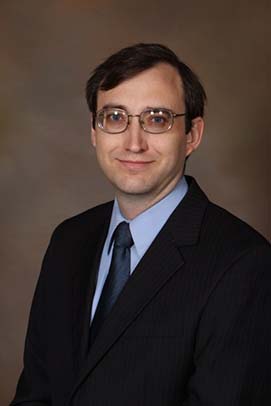
Andrew Snyder (moderator)
Health Insurance Specialist
Center for Medicaid and CHIP Services
Centers for Medicare & Medicaid Services
Andrew Snyder is the lead for the Oral Health Initiative at the Division of Quality and Health Outcomes in the Center for Medicaid and CHIP Services
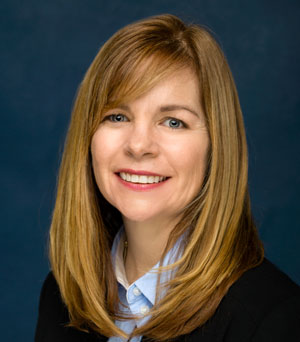
Sarah Holland, MS
CEO
Virginia Health Catalyst
As the CEO of Virginia Health Catalyst, Sarah draws on her nearly twenty years of experience in state and federal policy, clinical care infrastructure, and health equity to improve health and advance equity across the commonwealth. Notably, under Sarah's leadership, Catalyst led a successful advocacy campaign to add an adult dental benefit to Virginia's Medicaid program – paving the way for nearly a million adults to access covered oral health services and for safety-net clinics to offer comprehensive, integrated care for their patients. In 2021, Sarah was named the first COVID-19 Response Warrior by the National Network for Oral Health Access, an association of dental safety-net health centers committed to oral health integration and access. Sarah received her undergraduate degree from Virginia Tech and a Master of Science degree from Simmons University. She is a proud alumnus of both Richmond Memorial Health Foundation's Equity and Health Fellowship and Lead Virginia and serves on numerous boards. She is also fiercely proud of her family of four.
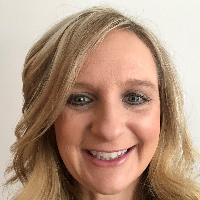
Michele Griguts, DDS
Dental Director
New York State Medicaid
Dr. Michele Griguts is the Dental Director for the Division of Medical and Dental Directors within the New York State Department of Health’s Office of Health Insurance Programs. She started this position in September of 2017 after seventeen years of practicing dentistry in an Article 28 dental facility located in Albany, New York where she provided dental care to the special needs population. The Division’s dental team focuses on policies that strengthen the oral health of New York Medicaid members, especially children, and works to promote access to dental services. Questions about Medicaid Dental Policy and associated questions regarding clinic billing can be directed to the Dental Policy email address at dentalpolicy@health.ny.gov

Irene V. Hilton, DDS, MPH, FACD
Dental Consultant
National Network for Oral Health Access
Irene Hilton, DDS, MPH, is the dental consultant for the National Network for Oral Health Access (NNOHA), the national organization of dental providers working in Federally Qualified Health Centers and other safety net clinics and is also a clinical staff dentist at the San Francisco Department of Public Health. She is board certified in Dental Public Health and has faculty appointments at the University of California San Francisco, School of Medicine and School of Dentistry. Dr. Hilton has been actively involved in the development of NNOHA’s training and technical assistance resources to assist over 1,000 health center dental programs to improve on the HRSA Quality of Care Sealants Measure. She has also been involved in the development of NNOHA’s quality improvement and data collection resources for health center dental programs, including the Health Center Dental Dashboard. Dr. Hilton is a graduate of the IHI Breakthrough Series College and has served as chair of NNOHA’s HRSA-funded quality improvement collaboratives and has gained an in-depth knowledge of the challenges of obtaining standardized data to support dental programs. She currently a member of the executive committee of the Dental Quality Alliance and a member of the ASTDD Best Practices Committee.
 May 1, 2023 15:10
May 1, 2023 15:10How do we approach health equity in a way that's attainable across hospital settings? This session will feature an in-depth look at the variety of methods used by hospitals of all sizes, types, and available resources to identify and address equity and the role in improving outcomes among the patients we serve.
First, Health Quality Innovators (HQI) will share their process of partnering with hospitals to remove barriers to action on health equity, especially those in communities with low racial and ethnic diversity. HQI creates reports using the Area Deprivation Index and the Social Vulnerability Index to supplement and contextualize available claims and provider data. These reports help to raise awareness of SDOH that may contribute to disparities. HQI will be sharing tools and resources that have resulted in hospitals implementing equity-based interventions such as the use of Z codes to capture patient-level SDOH screening results, and collaboration with outside funders to support identified needs
Second, Cynosure Health will provide a practical overview of the new CMS Final Rule requiring hospitals to screen patients for Social Drivers of Health (SDOH) that will feature: (1) Hospital-tested resources and tips, including how to build trust with patients to promote understanding and engagement; (2) Steps for building action plans to support your community’s well-being, such as how to engage patients, families, and community members in the screening and referral processes; and (3) How to interpret data in support of your existing quality and safety reporting efforts. In addition, insights will be shared from hospital champions from across the various stages of the implementation of a SDOH screening process.

Temi Olafunmiloye
Manager Health Equity
Health Quality Innovators
As health equity manager at Health Quality Innovators, Temi is committed to advancing healthcare through addressing equity and eradicating health disparities. Prior to joining HQI, Temi served as a data analyst at the Massachusetts Health and Hospital Association, where they managed diversity, equity and inclusion surveys to help hospitals highlight where they can make improvements. Additionally, Temi was a research assistant at The Disparities Solutions Center at Massachusetts General Hospital. There, they conducted research on strategies to reduce disparities and supported the hospital’s strategic plan for diversity, equity and inclusion. Temi holds a Bachelor of Science degree in Neuroscience and Health Equity Studies from Ursinus College.

Dr. Bruce Spurlock
President and CEO
Cynosure Health
Bruce Spurlock, MD, serves as President & CEO of Convergence Health Consulting. Dr. Spurlock is a nationally recognized healthcare quality leader, with deep experience leading healthcare collaboratives to accelerate the adoption, implementation, and spread of evidence-based practices. His recent efforts have focused on advancing new analytic techniques to promote health equity in rural and underserved communities.
In addition to his role with Convergence Health Consulting, Dr. Spurlock holds leadership positions at Cynosure Health (President & CEO), Stanford University (Associate Adjunct Professor), and Cal Healthcare Compare (Executive Director), a statewide reporting initiative involving California hospitals, purchasers, health plans, and consumer groups. His previous roles include Executive Director of the Bay Area Patient Safety Collaborative (BEACON) and Executive Vice President of the California Healthcare Association. Dr. Spurlock practiced internal medicine as a Senior Physician and earned his medical degree from the University of California, Davis.
 May 1, 2023 15:10
May 1, 2023 15:10The End Stage Renal Disease Treatment Choices Learning Collaborative (ETCLC), established in the Fall of 2021, brings together more than 80% of the transplant centers, more than 90% of Organ Procurement Organizations and two of the largest donor hospitals in each of the eleven (11) donor service areas (DSA) in the US. The aims of this national collaborative include: 1) increasing deceased donor kidney transplants; 2) decreasing the national discard rate of all procured kidneys; and 3) increasing the percentage of recovered kidneys greater to or equal to 60 Kidney Donor Profile Index (KDPI) for transplant.
Track: Over the past year, members of the ETCLC community, comprised of 25 Quality Improvement teams, have shared best practices during monthly quality improvement meetings. These best practices have reduced discards through surgical decision making, efficient communication, and effective institutional practice.
During this session, the presenters will provide practices employed to honor the “yes” mindset for accepting marginal kidneys and working closely with individual kidney transplant candidates to increase utilization of >60-year-old and Donation after Circulatory Death (DCD) kidneys and contribute to reducing the kidney discard rate.

Lisa Stocks (moderator)
National Faculty Co-Chair
ESRD Treatment Choices
Learning Collaborative

Enver Akalin, MD
Montefiore Medical Center
Professor of Medicine and Surgery
Medical Director
Kidney Transplant Program
Enver Akalin, MD, earned his medical degree at Ege University School of Medicine in Turkey. He completed a research fellowship in the Renal Division at Brigham and Woman's Hospital, Harvard Medical School, followed by a Clinical Fellowship in the Renal Division at Boston University School of Medicine. He completed his residency in Internal Medicine with a Transplant Nephrology Fellowship in the Renal Division at Emory University School of Medicine.
Prior to joining Montefiore, Dr. Akalin served as the Medical Director of the Kidney and Pancreas Transplantation Program and the Director of the Transplant Nephrology Fellowship at Mount Sinai School of Medicine. He is board certified by the American Board of Internal Medicine and the American Board of Nephrology. He is currently the Medical Director of Kidney Transplant Program at Montefiore Medical Center and Professor of Medicine and Surgery at Albert Einstein College of Medicine.
Dr. Akalin served on the American Society of Transplantation (AST), Clinical Trials Committee Member, and chaired the AST Transplant Nephrology Fellowship Accreditation Committee, Transplantation and Immunology Research Network, Clinical Science Grant Review Committee, Fellow of AST Committee and Board of Directors for Transplant Nephrology Fellowship. He also served on the Medical Board and Research and Ethics Sub-committee of New York Organ Donor Network, and the Editorial Board of Transplantation and CJASN.
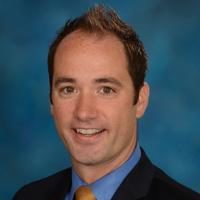
Joseph R. Scalea, MD
Director of Kidney Transplantation and Transplant Quality
Vice Chair of Innovation and Commercialization
Professor of Surgery
Medical University of South Carolina
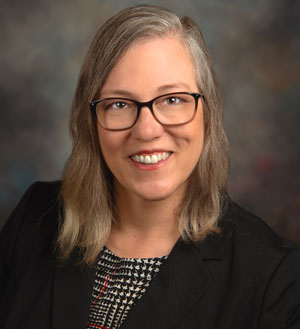
Heather Wertin, MPH, BSN, RN
Program Manager
Abdominal Organ Transplant
Barnes-Jewish Hospital
Heather Wertin is the Abdominal Organ Transplant Clinical Program Manager for the Washington University and Barnes-Jewish Transplant Center in St. Louis, Missouri. Heather obtained her nursing degree from Houston Baptist University in 1992 and her Master’s in Public Health from Argosy University in 2016.
 May 1, 2023 15:10
May 1, 2023 15:10The Center for Medicaid and CHIP Services (CMCS) partners with states to share promising practices and provide technical assistance to drive improvement in care for Medicaid and CHIP beneficiaries. This session will focus on the CMCS Foster Care affinity group and how South Carolina's Medicaid program utilized partnerships to work towards sustainable improvements. CMCS will facilitate a panel discussion with representatives from South Carolina’s Medicaid agency, foster care agency, and a managed care organization.
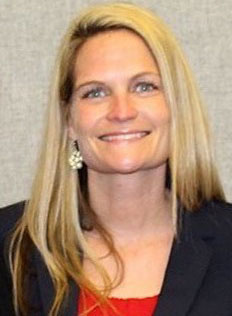
Ashley Sirianni, DNP, FNP-BC
Medical Director
South Carolina Department of Health and Human Services
Dr. Ashley Nicole Burton Sirianni currently serves as the assistant medical director for the South Carolina Department of Health and Human Services, the agency that administers the state’s Medicaid program. In addition, she practices part-time at Fairfield Medical Associates in Winnsboro, fulfilling her passion to help others, especially the underserved populations in rural South Carolina. Dr. Sirianni draws her motivation to improve the health of South Carolinians from her parents, both of whom were long-time, dedicated health care professionals who advocated for resources to promote healthy lifestyles, administration of appropriate clinical interventions and improved access to health care.
Dr. Sirianni graduated cum laude for the University of South Carolina (USC) with a Bachelor of Science in Nursing in 2008 and received her Doctor of Nursing Practice from USC in 2016. She has more than 16 years of experience in the health care field serving in the post-anesthesia care unit with both pediatrics and adults at Palmetto Health Richland, working as a home health and hospice nurse throughout the state and employed as a family nurse practitioner at a rural health center and patient-centered medical home in the rural community of Winnsboro. Dr. Sirianni’s special interests focus on evidence-based research, delivery of advanced clinical assessments, providing effective and efficient treatment to patients across the continuum of care and addressing the social determinants of health.

Tim Nix, MA, LPC
Director of Child Health and Well Being
South Carolina Department of Social Services
Tim Nix brings over thirty years of experience serving children and youth in different child welfare settings. He began his career in 1990 working in residential care which led him to working for South Carolina state agencies to include the Department of Mental Health and the Governor’s Office Continuum of Care. In 2012 Tim started working for SC Department of Social Services as a County Director. In 2014 he took on the responsibility as the Lead Clinical Specialist and now serves as the Director for the Office of Child Health and Wellbeing. He holds a Bachelor of Science in Psychology, a Master of Arts in Counseling and is a Licensed Professional Counselor. His clinical experience has been an important component when it comes to outcomes for child wellbeing. He looks forward in continuing the agency’s mission for positive change within the Department of the Office of Child Health and Wellbeing and for children, youth and families involved with SCDSS.
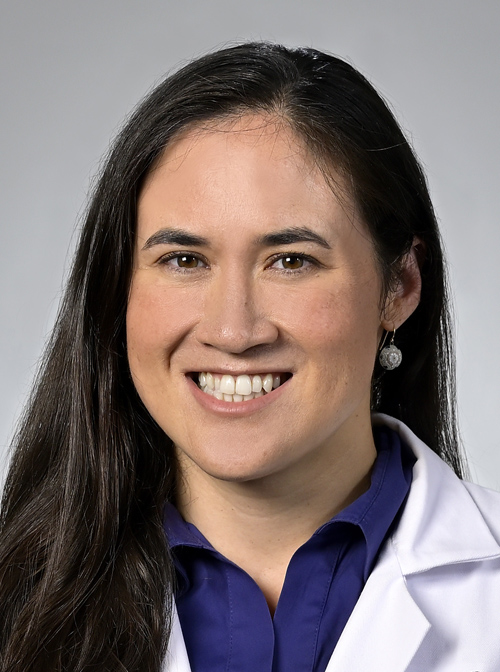
Jessica Lee (Moderator)
Medical Officer
Division of Quality and Health Outcomes
Center for Medicaid and CHIP Services
Centers for Medicare & Medicaid Services
Jessica Lee, MD, is the Medical Officer for the Division of Quality and Health Outcomes at the Center for Medicaid and CHIP Services at CMS. Dr. Lee works with state partners to monitor and improve the quality of care for children and adults enrolled in Medicaid and CHIP. Dr. Lee facilitates quality improvement collaboratives and resources designed to support state Medicaid and CHIP programs to drive improvement in health care and health outcomes, as measured by Child and Adult Core Sets of quality measures. She is a practicing pulmonologist and critical care physician in Philadelphia, and prior work has included health policy at the federal and state level, grant-funded research, and quality improvement.
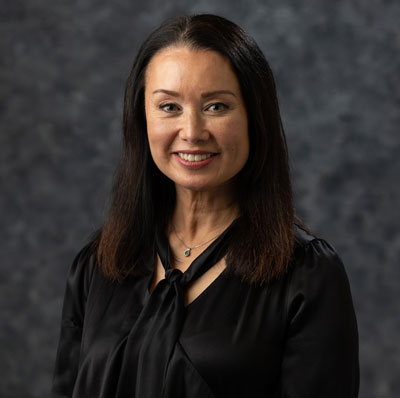
Kathleen Domm, MD, FAAP
Foster Care Medical Director
Select Health of South Carolina
Kathleen Domm is a pediatrician who serves as Foster Care Medical Director for Select Health of South Carolina, where she works to improve the health of this vulnerable group of young people. She leads a team devoted to the health and well-being of children and youth in foster care in South Carolina, and they strive to offer a comprehensive and coordinated health care delivery model for this population. Prior to this position, she practiced pediatrics in Los Angeles, California and Charleston, South Carolina. Dr. Domm is board-certified in Pediatrics, and she is a fellow of the American Academy of Pediatrics and a member of its Council on Foster Care, Adoption, and Kinship Care. She is passionate about advocating for and improving the health and well-being of children.
 May 1, 2023 15:10
May 1, 2023 15:10Resilience is the dynamic and demonstrable outcome of an individual, family, or community’s ability to cope with uncertainty, access needed resources, and adjust or bounce back in an often hazardous environment.
Rural, tribal, and geographically isolated communities face unique challenges, but also have unique strengths that allow them to be resilient and resourceful as they seek to recover from a variety of disasters.
This moderated discussion will highlight resiliency and resourcefulness across Entities (e.g., federal, state, local, tribal, and territorial) who have had to prepare for, mitigate, and overcome challenges related to natural disasters (e.g., earthquakes, fires, disease outbreaks) and human-made disasters (e.g., oil spills, lead poisoning, climate change), so that health and health care disparities for rural, tribal, and geographically isolated communities are not caused or worsened.
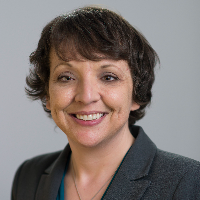
Darci Graves, MPP, MA, (moderator)
Co-chair
Rural Health Council
Centers for Medicare & Medicaid Services & Technical Advisor
Office of Minority Health
Centers for Medicare & Medicaid Services
Darci L. Graves, MPP, MA, MA, joined the Centers for Medicare & Medicaid Services, Office of Minority Health in 2015. In her role as a Technical Advisor, she assists in the coordination and implementation of priority Agency and office-wide programs, policies, and products. She leads the office’s enterprise level efforts and serves as co-chair to the CMS Rural Health Council. In addition, she provides subject matter expertise in areas such as culturally and linguistically appropriate services, cancer, health literacy, and health equity. Ms. Graves holds graduate degrees in Communications, Religion and Sociology, and Public Policy and has over 20 years of professional experience in the fields of cultural and linguistic competency and health education.

Thomas Bane, LMSW
Special Assistant to the Regional Administrator
Centers for Medicare & Medicaid Services
TM Bane, LMSW is trained as a social worker and qualitative researcher. He is currently the Special Assistant to the Regional Administrator for CMS New York. In this role, he convenes stakeholders around healthcare policies and programs. TM is the chair of the Pacific and Caribbean Territories Subcommittee of the CMS Rural Health Council, and he frequently collaborates with the Office of Climate Change and Health Equity on departmental resiliency efforts. He is passionate about ensuring that community voices are heard by his agency.
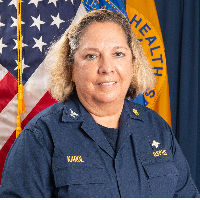
Dr. Susan Carol, MD
Captain
U.S. Public Health Service & Chief Medical Officer
Division of Tribal Affairs
Centers for Medicare & Medicaid Services
Dr. Karol is the Chief Medical Officer for the Division of Tribal Affairs (DTA) in the Center of Medicaid and the Children’s Health Insurance Program (CHIP)(CMCS) at the Centers for Medicare and Medicaid Services (CMS). DTA serves as the point of contact on American Indian and Alaska Native (AI/AN) health policy and serves the CMS Tribal Technical Advisory Group (TTAG) regarding AI/AN issues for the agency.
She is an enrolled member of the Tuscarora Indian Nation, the first American Indian woman General Surgeon and former National Chief Medical Officer for the Indian Health Service (2008-2017).
Dr. Karol is a Captain in the United States Public Health Service deploying throughout the country to meet national healthcare needs such as Hurricane recovery, Border Patrol migrant care, and COVID-19 missions. She graduated from Dartmouth College and the Medical College of Wisconsin prior to her general surgical training at the University of Massachusetts. She is a Diplomat of the American Board of Surgery (DABS), Fellow of the American College of Surgeons (FACS) and a member of the Association of American Indian Physicians.
Dr. Karol is the Chairperson of the CMS American Indian and Alaska Native Employee Resource Group and is a member of the CMS Diversity, Inclusion and Equality Council. She is the Federal Co-Chairperson for the CMS TTAG Health Equity Subcommittee.
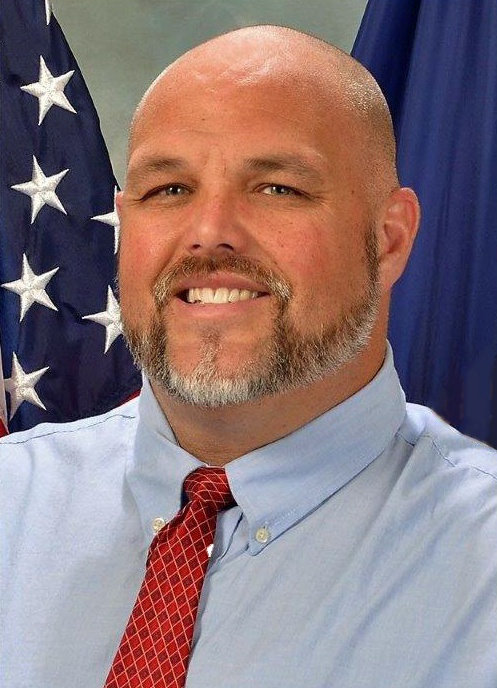
Rodney Waltersdorff
Deputy Director
Emergency Preparedness & Response Operations
Rodney Waltersdorff is the Deputy Director of EPRO. Rodney joined CMS after a career with the Department of Veterans Affairs, where he served as the Deputy Branch Chief for Logistics within the Veterans Health Administration (VHA) Office of Emergency Management (OEM). During his career with VHA OEM, Rodney has been instrumental in assisting in the development of the administration’s Comprehensive Emergency Management Program (CEMP) as well as the Concept of Operations (CONOPS) for the Emergency Operations Center (EOC). Rodney has more than 18 years of experience working with Emergency Management and Continuity planning. Rodney has completed the National Emergency Management Basic Academy (NEMBA) through the Federal Emergency Management Agency (FEMA) Emergency Management Institute, as well as obtained a Master’s Degree in Emergency Management and Disaster Preparedness, a Bachelor of Science degree in Political Science and Justice Studies and has completed multiple professional certifications.
 May 1, 2023 15:10
May 1, 2023 15:10The QIN-QIOs’ Real-Time Medical Systems Quality Improvement Collaborative seeks to leverage nursing home data using innovative health information technology (HIT) solutions that respond to the Centers for Medicare & Medicaid Services directive that QINs incorporate advances in HIT to improve healthcare quality. This innovative work uses electronic medical record (EHR) agnostic software to pull live EHR data into real time alerts, reports, and dashboards, on a secure portal. The data is updated regularly throughout the day, and accessible to the care team (clinicians and pharmacists) and QINs.
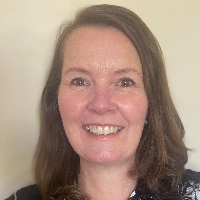
Charlotte Gjerloev, BSN, RN
Project Director
IPRO/Qlarant
Charlotte is the Project Director for the IPRO QIN-QIO in Maryland, Delaware and the District of Columbia. Prior to taking on the role as project Director, she was the Lead for the Nursing home team. Charlotte has more than 28 years of experience as a Registered Nurse and has previously worked with Utilization Management and Medical Reviews for Medicaid for over 10 years. She has also worked with the MACRA/SURS contract for Maryland and the District of Columbia assisting clinicians with the Quality Payment Program. She graduated with a Bachelor in Science in Nursing from the University of Copenhagen, Denmark in 1994.

Toni Kettner, BSN, MHN, NHA, CPHQ
Quality Improvement Advisor
Superior Health Quality Alliance
Ms. Kettner is a Quality Improvement Advisor with Superior Health Quality Alliance or Superior Health. She received her Bachelor's degree in Nursing from Viterbo University and her Master’s degree in Health Services Administration from the University of Phoenix. Ms. Kettner completed the Gerontological Certificate program from the University of La Crosse WI in 2004. She is a Certified Professional in Healthcare Quality, Wound Care Certified and maintains her nursing home administrator license in the State of WI. She has been involved in the nursing home QIN-QIO work for the past six years.

Mei Wang, PhD
Division of Community and Population Health
iQuality Improvement and Innovation Group
Centers for Medicare & Medicaid Services
Dr. Mei Wang is a Subject Matter Expert and Contracting Officer Representative for the Centers of Medicare & Medicaid Services (CMS). She is currently responsible for contractor performance and oversight of the QIN-QIO program. She is also the subject matter expert for nursing home care coordination quality improvement.
Dr. Wang began her care coordination and hospital utilization efforts working on HEDIS 2.0 reporting for managed care health plans. Over the years, she has supported CMS’ goal of enhancing care transitions and reducing hospital utilization through the implementation of evidence-based quality improvement.
Dr. Wang has 30+ years of experience in health care quality and has worked for several health care organizations over her career. Prior to joining CMS, she was a Senior Analyst and Project Manager for Harvard Pilgrim Health Care. Her other professional experience includes working as a Regional Manager for a pharmaceutical company and as a consultant for the Commonwealth Massachusetts Rate Setting Commission.
 May 1, 2023 15:10
May 1, 2023 15:10In this session we will review and discuss QIN-QIO efforts to advance health equity using customized data dashboards and interactive tools to assess relationships across equity measures and social determinates of health.
Track: Attention to social risk factors has become increasingly important and evidence supports that the proportion that social risk factors play is a pivotal role in poor health outcomes. Adverse social conditions include food insecurity, housing instability, and transportation challenges. Efforts to address these problems in the past few years have witnessed increased collection of data on social determinants of health (SDOH).

Bethany Gabbard, PhD
Senior Data Analyst II
TMF Health Quality Institute
Bethany Gabbard, MS, PhD, is a data analyst with over 20 years of experience. Dr. Gabbard leads the analytic work related to the current scope of work for the QIN-QIO program; she has supported QIO projects for 19 years. Dr. Gabbard has extensive experience working with Medicare claims as well as other data sources including the Minimum Data Sets, the Medicare Enrollment database and quality reporting data. Dr. Gabbard received her Bachelor of Science in Biology and Anthropology from the University of Michigan, her Master of Science in Statistics from the University of Texas at Austin, and her PhD in Biology from the University of Texas at Austin.

Jill Manna, BA, PMP
Director of Analytic Resources
Quality Insights
As the Director of Analytic Resources, Jill Manna provides analytic supervision and guidance for the for the Quality Insights analytic team, which supports a wide range of data driven projects, including a Quality Innovation Network and three End-Stage Renal Disease Networks.
She possesses expertise in managing, analyzing and reporting health care data. In addition, she has a broad knowledge of various data sources, including inpatient, outpatient, pharmacy and ancillary. Prior to her 20-year tenure at Quality Insights, Ms. Manna served as a Health Data Analyst Supervisor, for KePRO in Harrisburg, PA, where she managed data analysts and provided data analysis, reporting and support for disease management studies.
At Aetna US Healthcare (USQA) in Blue Bell, PA, she served as a Business Systems Delivery Specialist providing statistical reporting and analysis of various managed care data. At Keystone Health Plan Central in Camp Hill, PA, she provided statistical analysis of managed care as a Research Associate in Research and Analysis and as a Senior Product Implementation Coordinator for Actuarial Services.
She earned a BA in Mathematics from Bloomsburg University and a Project Management Professional Certification from the Project Management Institute (PMI).
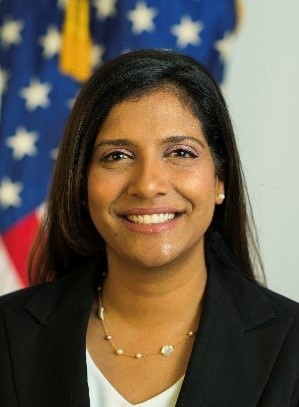
Anita Thomas, PharmD
Technical Advisor
Division of Community and Population Health
iQuality Improvement and Innovation Group
Centers for Medicare & Medicaid Services
Dr. Anita Thomas is a Technical Advisor and Team Lead with the Centers for Medicare & Medicaid Services (CMS), Quality Improvement and Innovations Group (iQIIG). She supports work on improving coordination of care, medication safety, and patient safety, health equity and reducing opioid related harms across care settings. Dr. Thomas is a clinical pharmacist by training, specializing in quality improvement, pharmacoeconomics and outcomes research. Dr. Thomas was part of the initial CMS team that helped implement Medicare Part D and has over 15 years of experience working as a program leader in areas of data analysis, healthcare quality improvement, performance and strategy, and clinical patient care.
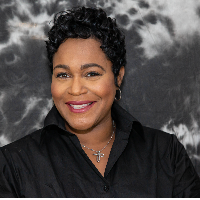
Knitasha V. Washington, DHA, FACHE
President & CEO
ATW Health Solutions
Dr. Washington is a prominent figure in healthcare transformation serving as a thought-leader, advocate, researcher and performance improvement expert working with healthcare systems, government agencies and policymakers to ensure that patient-centered and equitable approaches are at the core of healthcare redesign. She founded ATW Health Solutions, a health care advisory and research firm, is a board member for the National Quality Forum (NQF) and the American Academy of Family Physicians (AAFP) Foundation.
With more than 20 years’ experience, Knitasha brings expertise in systems performance improvement, operations efficiency, hospital turn-around, patient safety, patient and family engagement, quality improvement and health equity. She lost her father to a preventable medical error, which has inspired her work for an integrated approach to equity and engagement, focusing on eliminating harm for vulnerable populations. Knitasha is credited as a key thought-leader of the alignment of equity with the work of the Partnership for Patients Campaign and contributor to Safety Across the Board and development of the Integrated PFE Index. She was a lead contributor to the work of the CMS Hospital Improvement and Innovations Network (HIIN) and Transforming Clinical Practice Initiative (TCPI). She advocates for greater diversity and minority inclusion in healthcare leadership through her commitment to work with the National Association of Health Services Executives (NAHSE).
 May 1, 2023 15:10
May 1, 2023 15:10In this session, learn more about Center for Clinical Standards and Quality's (CCSQ) vision of “bringing users to the data”. To avoid data duplication, security, and transparency issues, CCSQ looks to enhance current architecture and processes that provide users a “one-stop-shop” to data and analytics tools. Bringing users to this solution and its data, instead of sending the data out to users, will strengthen data accountability, data quality and data transparency. Join this session to learn more about this important effort.
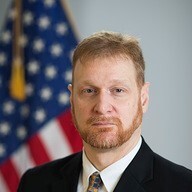
Kenneth Howard
Director
Division of Engineering and Architecture
Information Systems Group
Centers for Medicare & Medicaid Services
Ken Howard has 38 years of IT experience, which includes over 25 years supporting various IT initiatives within CMS. Currently, Mr. Howard is the Director of the Division of Engineering & Architecture (DEA) within the Center for Clinical Standards and Quality's (CCSQ) Information Systems Group (ISG). He leads his team in delivering efficient, cost-effective, user-centric, high-performance systems, leveraging state of the art solutions and technologies that support CCSQ Programs and promote healthcare quality. This includes providing proactive technical leadership for Quality Systems development and evaluating new technologies to improve services and the user experience while reducing cost.
 May 1, 2023 15:10
May 1, 2023 15:10This session will look back at the last three years as the Quality Payment Program (QPP) worked towards the implementation of the Merit-based Incentive Payment System (MIPS) Value Pathways (MVPs). During this session we will explore how interactive research sessions with QPP site users, including clinicians and their staff, led to an improved understanding of users’ needs and experiences in the program. We will also cover how these insights ultimately laid the groundwork for the MVP Learning Experience, which aims to assist clinicians in their transition to MVPs. We will also discuss how interested parties may continue to engage with the QPP Human Centered Design (HCD) Team in the future.

Samantha Levy
HCD Researcher
Agile Six Applications Inc.
Sammy Levy is an HCD (Human-Centered Design) researcher committed to amplifying the voices of others, particularly those most often left out, to produce more inclusive, accessible, and effective design. She depends heavily on the teachings of those before her throughout the design and psychology fields and is especially guided by the principles of inclusive design. In short, when we design for those most often left out, we develop better designs for all.
Sammy is part of the HCD team working in support of the Quality Payment Program (QPP) at the Centers for Medicare and Medicaid Services. She primarily supports projects focused on the unauthenticated end of the QPP website, working closely with the site developers and communications team to help release content that meet the needs of the QPP site’s wide array of users.

Kiel McLaughlin
Senior UX Researcher
Agile Six Appications Inc.
Kiel is a Human-Centered Design Researcher that lives in Baltimore, Maryland. Kiel is a contractor with Agile Six and has supported the Quality Payment Program as a researcher and designer since 2019. Prior to joining QPP, he applied his UX capabilities at the Social Security Administration and received his master’s degree in Interaction Design and Information Architecture from the University of Baltimore.

Sophia Sugumar
Health Insurance Specialist
Centers for Medicare & Medicaid Services
Sophia is a Health Insurance Specialist in the Quality Measurement and Value-Based Incentives Group within the Center for Clinical Standards and Quality at the Centers for Medicare & Medicaid Services (CMS). Her work at CMS focuses on Merit-based Incentive Payment System (MIPS) policy and MIPS Value Pathways under the Quality Payment Program.
 May 1, 2023 15:10
May 1, 2023 15:10This session will look back at the last three years as the Quality Payment Program (QPP) worked towards the implementation of the Merit-based Incentive Payment System (MIPS) Value Pathways (MVPs). As the national conversation in American health care delivery offers renewed focus on the realization of health equity, where that work is being done – consistently and at scale – is an area of high focus. Using examples from the value-based care delivery arena, this session examines trends in health equity advancement – and offers lessons for practitioners and systems engaged in that work in caring for people with Medicare insurance.
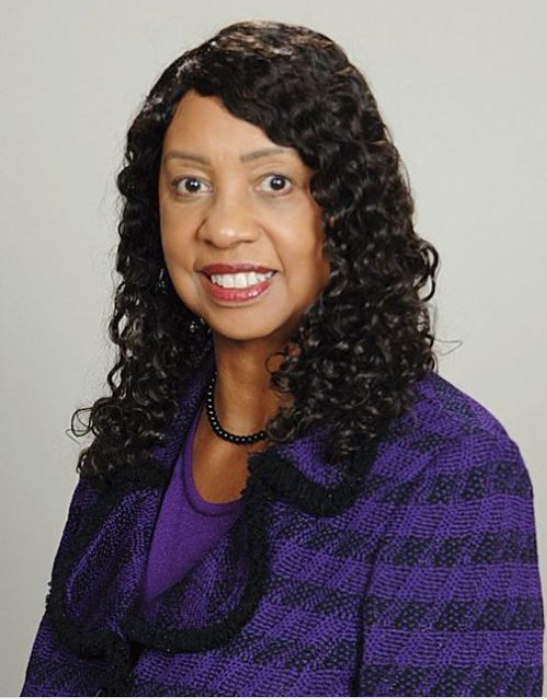
Adrienne Mims, MD, MPH, FAAFP, AGSF
Chief Medical Officer
Rainmakers Strategic Solutions
Adrienne Mims, MD MPH is the Chief Medical Officer (CMO) at Rainmakers Strategic Solutions LLC. She is board certified in family medicine and geriatrics, with fellowship status in both specialties. As a clinical epidemiologist, she has more than 30 years of clinical and administrative experience in using quality performance metrics to guide changes in clinical processes and delivery system redesign to improve health equity for populations served. Using an interdisciplinary team approach that included beneficiary voices, she led the adaptation of a variety of settings from small to large clinical practices, health systems, Federally Qualified Health Centers, disease management programs, and Medicare Advantage plans.

Samuel "Le" Church, MD, MPH, CPC-I, FAAFP
Local Medical Director
Aledade, Inc.
Dr. Church is a practicing family physician in Hiawassee, Ga., a rural area in north Georgia, with both office and hospital practices. He currently serves as Georgia Medical Director for Aledade, Inc, a national ACO with over 1,750,000 live under management.
Dr. Church currently serves on the AMA CPT® Editorial Panel and Co-chairs the AMA Vaccine Coding Caucus. He is President-Elect for the Georgia Academy Family Physicians. Recently Dr. Church was recently recognized by the Medical Association of Georgia with the Physician’s Award for Community Service.
He has a passion for teaching, not only for practicing physicians and coders, but especially medical students and residents, and serves as a core faculty for the Northeast Georgia Medical Center Family Medicine Residency and as adjunct faculty for AU/UGA Medical Partnership SOM.

Ali Khan, MD, MPP, FACP
Chief Medical Officer
Value-Based Care Delivery Oak Street Health
Ali Khan, MD, MPP, FACP is the Chief Medical Officer, Value Based Care Strategy at Oak Street Health, where he leads efforts in managed care strategy, clinical design and public policy. Ali joined Oak Street Health in 2019 as Executive Medical Director of the Heartland Division and continues to practice general internal medicine on Chicago's West Side. Prior to Oak Street, he served as CareMore Health's Clinical Design Officer and in leadership roles at Iora Health.
Ali serves on the clinical faculty of the University of Chicago, Pritzker School of Medicine and is a Director on the American Board of Internal Medicine’s Internal Medicine Specialty Board, the American Board of Internal Medicine Foundation and America's Physician Groups. Ali was recognized as one of Modern Healthcare’s Top 25 Emerging Leaders in 2021, Crain's Chicago Business' 40 Under 40 in 2022 and Crain’s Chicago Business’ Notable Executives of Color in Health Care in 2022. He is a fellow of the California Health Care Foundation and Leadership Greater Chicago.
Ali completed his residency at Yale-New Haven Hospital. He is a graduate of the Harvard Kennedy School and VCU’s Medical College of Virginia, earning joint M.D. and M.P.P. degrees as a Harvard Public Service Fellow, and VCU’s B.S./M.D. Guaranteed Admissions Program in Medicine.
 May 1, 2023 16:00
May 1, 2023 16:00
Dr. Michelle Schreiber, MD
Deputy Director
Center for Clinical Standards and Quality
Centers for Medicare & Medicaid Services
Dr. Schreiber is currently the Deputy Director of the Center for Clinical Standards and Quality at CMS, and the Director of the Quality Measurement and Value-Based Incentives Group. Dr. Schreiber is a general internal medicine physician with over 25 years of health care experience. Prior to coming to CMS, she was the Senior Vice President and Chief Quality Officer of Henry Ford Health System (HFHS) in Detroit, Michigan. Earlier roles at HFHS included the Division Head of General Internal Medicine, and the SVP of Clinical Transformation and IT Integration, where she was the clinical lead of the systemwide Epic implementation. The Epic implementation and use earned HFHS a Davies Award in 2018. She has also held senior leadership roles at the Detroit Medical Center, where she was the Chief Quality Officer, and with Trinity Health System where she was the national system Chief Medical Officer and acting interim Chief Medical Information Officer.
While at CMS Dr. Schreiber has led many quality initiatives, including MIPS transformation to value pathways, the modernization of the Hospital Stars program, as well as advancing digital quality measurement systems. She is on the boards of ACCME (continuing medical education), Leapfrog, and a member of HITACH (the national health information advisory committee) among others. Prior to joining CMS, she also participated in numerous state and national quality committees including the Board of Directors for the Michigan Hospital Association Keystone Center and the Patient Safety Organization, the Board of Directors of MPRO (Michigan Peer Review Organization – the Michigan QIO), the National Quality Forum Patient Safety Metrics Committee, and the National Quality Partners.
 May 1, 2023 16:15
May 1, 2023 16:15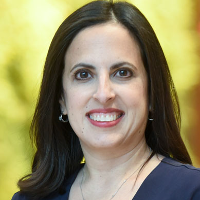
Dr. Rana Awdish, MS, MD, FACP, FCCP
Henry Ford Health
Dr. Rana Awdish is the author of In Shock, a critically acclaimed, bestselling memoir based on her own critical illness. She is a sought-after public speaker, delivering inspirational keynote addresses to groups ranging from professional medical societies to members of Congress, to organizations combatting homelessness.
A pulmonary and critical care physician, she serves as the current Director of the Pulmonary Hypertension Program at Henry Ford Hospital. She also serves as Medical Director of Care Experience for the System, where she has integrated compassionate communication strategies and Narrative Medicine practice into the curriculum.
Dr. Awdish received the Schwartz Center’s National Compassionate Caregiver of the Year Award in 2017. She was named Physician of the Year by Press Ganey in 2017 for her work on improving communication and received the Critical Care Teaching Award in 2016. She has been inducted into the Alpha Omega Alpha medical honor society and the Gold Humanism Honor Society.
Her narrative non-fiction essays have been published in The Examined Life Journal, Intima, CHEST and The New England Journal of Medicine. She has written editorials for The Harvard Business Review, Annals of Internal Medicine, The Washington Post and The Detroit Free Press. Her essay The Shape of the Shore was awarded a Sydney by the New York Times and was nominated for a Pushcart Prize.
Prior to coming to Henry Ford, Dr. Awdish completed her training at Mount Sinai Beth Israel in Manhattan. She attended Wayne State University Medical School and completed her undergraduate degree at the University of Michigan in Ann Arbor. She is board-certified in Internal Medicine, Pulmonary and Critical Care Medicine.
 May 2, 2023 11:00
May 2, 2023 11:00
Jean Moody-Williams, RN, MPP
Deputy Center Director
Center for Clinical Standards and Quality
Centers for Medicare & Medicaid Services
Jean D. Moody-Williams, RN, MPP, is the current Deputy Center Director for the Center for Clinical Standards and Quality (CCSQ) at the Centers for Medicare & Medicaid Services (CMS). She has served since 2008 under multiple administrations in the Senior Executive Service (SES) Corp. She currently is a part of a leadership team responsible for one of CMS’ Centers that has nearly 800 employees and a $3 billion annual budget. She is responsible for leading quality improvement, value based purchasing, and delivery system reform. She provides oversight to multiple kidney health activities including regulations for organ procurement and transplantation programs and learning networks, development of conditions of participation for dialysis facilities and healthcare systems, oversight of ESRD Networks for quality improvement and the ESRD Quality Incentive Program. She works to ensure better healthcare, healthier populations and smarter spending of healthcare dollars for more than 90 million Americans.
Jean serves as a guest lecturer for many academic institutions and is a current Faculty Member of the University of Pennsylvania School of Nursing, Doctor of Nursing Practice in Executive Leadership Program.
Prior to joining CMS, Ms. Moody-Williams served as an executive at a number of state and private entities working to improve care for patients and families including, the Maryland Health Care Commission (MHCC), the National Resource Center for Health Policy and Strategies, Quality Improvement Organizations and a health care system in Dallas.
Jean has devoted her entire professional career to improving the care provided to patients and supporting families, leading many of the patient and family engagement efforts at CMS in order to bring the voice of the patient to the forefront of policy and program decisions. She is the author of a textbook for healthcare providers entitled, A Journey towards Patient-Centered Healthcare Quality Patients, Families and Caregivers, Voices of Transformation. She is also the author of the book entitled, Transitions, Trust and Triumph: A Daily Devotion for Caregivers, which provides inspiration, encouragement and resources for those caring for a love one or that recently lost a loved ones.
She is a recipient of the Samuel J. Heyman Service to America Medal awarded by the Partnership for Public Service and was recognized as the Federal Employee of the Year. Ms. Moody-Williams is also the recipient of the 2016 President of the United States Meritorious Rank Award and the 2018 President of the United States Distinguished Service Rank Award. The Presidential awards are one of the highest given to Senior Executives that have demonstrated unparalleled leadership skills and a strong dedication to achieving tangible results. She is also the recipient of the 2020 CMS Executive of the Year awarded by the CMS Administrator for leadership. She received her Bachelors of Science in Nursing from Hampton University and a Masters of Public Policy and Management from the University of Maryland, College Park.
 May 2, 2023 11:05
May 2, 2023 11:05As the nation’s largest health care payer, responsible for more than one in five dollars spent on health care within the United States, Medicare plays a key role in transitioning the health care system away from fee-for-service, which incentivizes quantity of care, and towards value-based care, which incentivizes high-quality care and smarter spending. This session will focus on CMS’ efforts to remain committed to advancing value-based care, by focusing on three strategic priorities of alignment, growth, and equity in a way that best meets the needs of people with Medicare, who deserve high-quality, equitable care.

Dr. Lee A Fleisher, MD
Chief Medical Officer and Director of the Center for
Clinical Standards and Quality Centers for
Medicare & Medicaid Services
Lee A. Fleisher, MD, was named the Chief Medical Officer and Director of the Center for Clinical Standards and Quality for the Centers for Medicare and Medicaid Services in July 2020. In this capacity, he is responsible for executing all national clinical, quality, and safety standards for healthcare facilities and providers, as well as establishing coverage determinations for items and services that improve health outcomes for Medicare beneficiaries. He is also Professor Emeritus and Former Chair of Anesthesiology and Critical Care and Professor of Medicine at the University of Pennsylvania Perelman School of Medicine. From 2004 through July 2020, he was the Robert D. Dripps Professor and Chair of Anesthesiology and Critical Care and Professor of Medicine at the University of Pennsylvania.
Lee received his medical degree from the State University of New York at Stony Brook, from which he received the Distinguished Alumni Award in 2011. His research focuses on perioperative cardiovascular risk assessment and reduction, measurement of quality of care, decision making, implementation of cultural change and health policy. He has received numerous federal, industry and foundation grants related to these subjects and has published 175+ original articles, over 200 editorials, reviews and book chapters, and 9 books and collaborates with anthropologists, sociologists, as well as faculty from law, business and nursing.
He was Treasurer of the Board of Directors and Chair of the Finance Committee of the National Quality Forum. He was a member of the Care Transformation Forum (CTF) of the Health Care Payment Learning and Action Network (LAN) He is currently an Affiliated Faculty of the Quattrone Center for the Fair Administration of Justice and pursuing a Master in Law at the University of Pennsylvania Carey Law School. His is a Senior Fellow of the Leonard Davis Institute of Health Economics. In 2007, he was elected to membership of the National Academy of Medicine (formerly Institute of Medicine) of the National Academy of Sciences and served on Committees of the NAM.
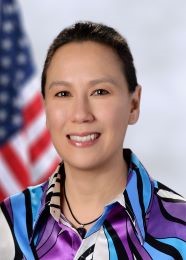
Elizabeth "Liz" Fowler, PhD, JD
Deputy Administrator and Director
Center for Medicare and Medicaid Innovation
Centers for Medicare & Medicaid Services
Dr. Elizabeth Fowler is the Deputy Administrator and Director of the Center for Medicare and Medicaid Innovation at CMS. Dr. Fowler previously served as Executive Vice President of programs at The Commonwealth Fund and Vice President for Global Health Policy at Johnson & Johnson. She was special assistant to President Obama on health care and economic policy at the National Economic Council. From 2008 to 2010, she was Chief Health Counsel to Senate Finance Committee Chair, Senator Max Baucus (D-MT), where she played a critical role developing the Senate version of the Affordable Care Act. She also played a key role drafting the 2003 Medicare Prescription Drug, Improvement and Modernization Act (MMA). Dr. Fowler has over 25 years of experience in health policy and health services research. She earned a bachelor’s degree from the University of Pennsylvania, a Ph.D. from the Johns Hopkins Bloomberg School of Public Health, where her research focused on risk adjustment, and a law degree (J.D.) from the University of Minnesota. She is admitted to the bar in Maryland, the District of Columbia, and the U.S. Supreme Court. Dr. Fowler is a Fellow of the inaugural class of the Aspen Health Innovators Fellowship and was elected to the National Academy of Medicine in 2022.
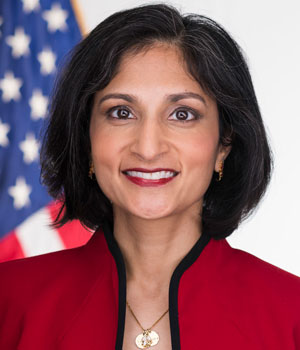
Dr. Meena Seshamani, MD, PhD
Deputy Administrator and Director Center for Medicare
Centers for Medicare & Medicaid Services
Meena Seshamani, MD, PhD is an accomplished, strategic leader with a deep understanding of health economics and a heart-felt commitment to outstanding patient care. Her diverse background as a health care executive, health economist, physician and health policy expert has given her a unique perspective on how health policy impacts the real lives of patients. She most recently served as Vice President of Clinical Care Transformation at MedStar Health, where she conceptualized, designed, and implemented population health and value-based care initiatives and served on the senior leadership of the 10 hospital, 300+ outpatient care site health system. The care models and service lines under her leadership, including community health, geriatrics, and palliative care, have been nationally recognized by the Institute for Healthcare Improvement and others. She also cared for patients as an Assistant Professor of Otolaryngology-Head and Neck Surgery at the Georgetown University School of Medicine.
Dr. Seshamani also brings decades of policy experience to her role, including recently serving on the leadership of the Biden-Harris Transition HHS Agency Review Team. Prior to MedStar Health, she was Director of the Office of Health Reform at the US Department of Health and Human Services, where she drove strategy and led implementation of the Affordable Care Act across the Department, including coverage policy, delivery system reform, and public health policy. She received her B.A. with Honors in Business Economics from Brown University, her M.D. from the University of Pennsylvania School of Medicine, and her Ph.D. in Health Economics from the University of Oxford, where she was a Marshall Scholar. She completed her residency training in Otolaryngology-Head and Neck Surgery at the Johns Hopkins University School of Medicine and practiced as a head and neck surgeon at Kaiser Permanente in San Francisco.
 May 2, 2023 11:25
May 2, 2023 11:25As the nation’s largest health care payer, responsible for more than one in five dollars spent on health care within the United States, Medicare plays a key role in transitioning the health care system away from fee-for-service, which incentivizes quantity of care, and towards value-based care, which incentivizes high-quality care and smarter spending. This session will focus on CMS’ efforts to remain committed to advancing value-based care, by focusing on three strategic priorities of alignment, growth, and equity in a way that best meets the needs of people with Medicare, who deserve high-Quality equitable care.

Dr. Dan Tsai
Deputy Administrator and Director
Center for Medicaid and CHIP Services
Center for Medicare and Medicaid Services
Daniel Tsai is the Deputy Administrator and Director of Center for Medicaid and CHIP services at the Center for Medicare and Medicaid Services (CMS) where he leads the Center in addressing disparities in health equity and serving the needs of individuals and families who rely on these essential programs.
Before joining CMS, Dan was the Assistant Secretary for MassHealth and Medicaid Director for the Commonwealth of Massachusetts, serving for six years—the state's longest-serving Medicaid director in nearly two decades. His tenure focused on building a robust and sustainable Medicaid program to ensure equitable coverage and improve how health care is delivered for two million individuals and families in the state. Dan also helped lead Massachusetts Medicaid through its most significant restructuring since the 1990s through its landmark 2016 Medicaid 1115 waiver. Under these reforms, MassHealth implemented one of the most at-scale shifts to value-based care in the nation. Through the waiver, MassHealth also launched a unique program committing significant investments for nutritional and housing supports to address the social determinants of health for high cost, at-risk individuals. In addition, during his tenure, the agency has made critical investments in strengthening community health centers, behavioral health, and home and community-based services.
Having worked closely with organizations across almost every aspect of health care, including a diverse range of Medicaid programs and provider organizations, Dan brings extensive experience across Medicaid, Medicare, and working with stakeholders to design and implement innovative models for health care coverage, delivery and payment. Dan earned a Bachelor of Arts in Applied Mathematics and Economics from Harvard University, summa cum laude.
 May 2, 2023 11:45
May 2, 2023 11:45The CMS Chief Dental Officer will discuss the vision for oral health programs across the Agency, including how dental-medical integration is essential for advancing health equity, improving clinical outcomes, and improving oral health for all beneficiaries.
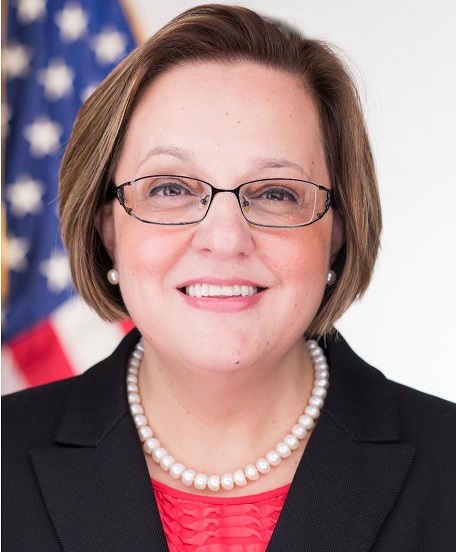
Natalia Chalmers DDS, MHSc, PhD
Chief Dental Officer
Office of the AdministratorCenters for Medicare & Medicaid Services
Dr. Natalia Chalmers is CMS' first Chief Dental Officer in the Office of the Administrator. She is a board-certified pediatric dentist, oral health policy expert, and public health advocate who brings more than 20 years of clinical, research, industry, and regulatory experience to CMS. Previously, Dr. Chalmers served as a Dental Officer at the FDA. Dr. Chalmers has devoted her career to transforming scientific and healthcare data and information into actionable insights to address equity, improve care, and inform policy and funding better. Dr. Chalmers completed her Doctor of Dental Surgery degree at the Faculty of Dental Medicine of the Medical University of Sofia, a residency in pediatric dentistry at the University of Maryland School of Dentistry, and a Ph.D. in oral microbiology from the Graduate Partnerships Program of the University of Maryland School of Dentistry and the NIDCR/NIH, Post-doctoral Fellowship at the Forsyth Institute, and Clinical Research Fellowship at the NIDCR/NIH. In addition, Dr. Chalmers holds a Master’s degree in Clinical Research from Duke Medical University and a Certificate in Drug Development and Regulatory Science from the UCSF School of Pharmacy.
 May 2, 2023 11:55
May 2, 2023 11:55
Dr. Donald Berwick, MD, MPP, FRCP, KBE
President Emeritus and Senior Fellow
Institute for Healthcare Improvement
Donald M. Berwick, MD, MPP, FRCP, President Emeritus and Senior Fellow, Institute for Healthcare Improvement, is also former Administrator of the Centers for Medicare & Medicaid Services. A pediatrician by background, Dr. Berwick has served on the faculty of the Harvard Medical School and Harvard School of Public Health, and on the staffs of Boston's Children's Hospital Medical Center, Massachusetts General Hospital, and the Brigham and Women's Hospital. He has also served as Vice Chair of the US Preventive Services Task Force, the first "Independent Member" of the American Hospital Association Board of Trustees, and Chair of the National Advisory Council of the Agency for Healthcare Research and Quality. He served two terms on the Institute of Medicine's (IOM's) Governing Council, was a member of the IOM's Global Health Board, and served on President Clinton's Advisory Commission on Consumer Protection and Quality in the Healthcare Industry. Recognized as a leading authority on health care quality and improvement, Dr. Berwick has received numerous awards for his contributions. In 2005, he was appointed "Honorary Knight Commander of the British Empire" by Her Majesty, Queen Elizabeth II in recognition of his work with the British National Health Service. Dr. Berwick is the author or co-author of over 160 scientific articles and six books. He currently serves as Lecturer in the Department of Health Care Policy at Harvard Medical School.
 May 2, 2023 12:05
May 2, 2023 12:05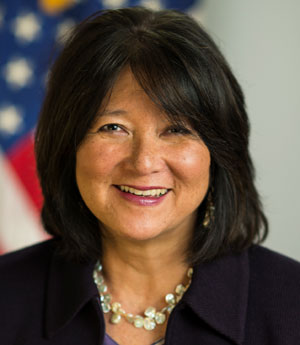
Dr. Shari Ling (co-Moderator)
Deputy Chief Medical Officer
Center for Clinical Standards and Quality
Centers for Medicare & Medicaid Services
Dr. Shari M. Ling currently serves as the Deputy Chief Medical Officer for the Centers for Medicare and Medicaid Services (CMS). Dr. Ling’s committed focus is on the achievement of meaningful health outcomes for patients and families through the delivery of high quality, person-centered care, across all care settings. Her clinical focus and scientific interest are in the care of persons with dementia, multiple chronic conditions, and functional limitations.
Dr. Ling leads the CMS Behavioral Health Strategy implementation. She also represents CMS on several Health and Human Services (HHS) efforts. She represents CMS on the workgroups for the National Alzheimer’s Project Plan, and workgroups to eliminate and prevent Healthcare Associated Infections (HAIs), the National Strategy to Combat Antimicrobial Resistance.
Dr. Ling earned a Master’s in Gerontology in Direct Service at the Leonard Davis School of Gerontology, an MD degree at Georgetown University School of Medicine, completed a rheumatology fellowship at Georgetown University Hospital followed by a Geriatric Medicine fellowship at Johns Hopkins University School of Medicine. She continues her clinical work serving veterans as a volunteer dementia care provider, and has retained her appointment as part-time faculty in the Division of Geriatrics and Gerontology, Johns Hopkins University School of Medicine
 May 2, 2023 12:10
May 2, 2023 12:10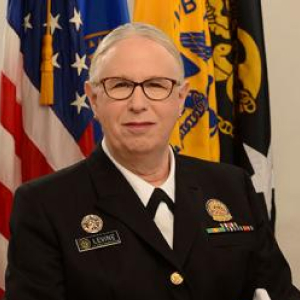
ADM Rachel L. Levine, MD
Assistant Secretary for Health
U.S. Department of Health & Human Services
Admiral Rachel L. Levine serves as the 17th Assistant Secretary for Health for the U.S. Department of Health and Human Services (HHS), after being nominated by President Joe Biden and confirmed by the U.S. Senate in 2021. As Assistant Secretary for Health, ADM Rachel Levine fights every day to improve the health and well-being of all Americans. She's working to help our nation overcome the COVID-19 pandemic and build a stronger foundation for a healthier future - one in which every American can attain their full health potential. ADM Levine also is the head of the U.S. Public Health Service Commissioned Corps, one of the eight uniformed services.
After graduating from Harvard College and Tulane University School of Medicine, ADM Levine completed her training in Pediatrics and Adolescent Medicine at the Mt. Sinai Medical Center in New York City. As a physician, she focused on the intersection between mental and physical health, treating children, adolescents, and young adults. ADM Levine was a Professor of Pediatrics and Psychiatry at the Penn State College of Medicine. Her previous posts included: Vice-Chair for Clinical Affairs for the Department of Pediatrics, and Chief of the Division of Adolescent Medicine and Eating Disorders at the Penn State Hershey Medical Center.
In 2015, Pennsylvania Governor Tom Wolf nominated ADM Levine to be Pennsylvania's Physician General and she was subsequently unanimously confirmed by Pennsylvania's state Senate. In March of 2018, ADM Levine was named Pennsylvania's Secretary of Health. During her time in state government, ADM Levine worked to address Pennsylvania's opioid crisis, focus attention on maternal health and improve immunization rates among children. Her decision to issue a standing order for the anti-overdose drug, Naloxone, saved thousands of lives by allowing law enforcement to carry the drug and Pennsylvanians to purchase it without a prescription from their doctor.
ADM Levine is a member of the National Academy of Medicine and a Fellow of the American Academy of Pediatrics, the Society for Adolescent Health and Medicine, and the Academy for Eating Disorders. She was also the President of the Association of State and Territorial Health Officials. In addition to her recent posts in medicine and government, ADM Levine is an accomplished speaker and author of numerous publications on the opioid crisis, adolescent medicine, eating disorders, and LGBT medicine
 May 2, 2023 12:25
May 2, 2023 12:25Patients living in disadvantaged neighborhoods are more likely to encounter barriers to care, including transportation challenges, food insecurity, and housing instability. Dialysis facilities and transplant centers play a critical role in reducing health disparities among underserved patients. The End Stage Renal Disease (ESRD) National Coordination Center analyzed ESRD Quality Reporting System (EQRS) data and the Area Deprivation Index to identify facilities serving patients living in the most disadvantaged neighborhoods. Dialysis facilities above the national average for transplant waitlists were interviewed to identify best practices. These facilities will share lessons learned, what worked for patients, barriers faced, and the solutions implemented to advance health equity. This includes equity-promoting strategies to reduce disparities, including screening and identifying health-related social needs, providing culturally tailored patient education, and connecting patients to community-based resources. Lessons learned from Technical Assistance Quality Improvement and Learning (TAQIL) and the ESRD Treatment Choice Learning Collaborative (ETCLC) have identified a key driver to transplantation is waitlist management. One successful transplant center, which has more than tripled the number of kidney transplants in recent years, will share its assertive approach to improving communication with dialysis facilities and patient education. It has focused on maintaining “transplant ready” status and overall improved health and well-being as a top priority for patients on the waitlist.

Dr. Chiao Wen Lan (Moderator)
Social Scientist
Health Services Advisory Group
Chiao Wen Lan is a Social Scientist for the End Stage Renal Disease National Coordinating Center (ESRD NCC). She conducts research and supports clinical, technical, and analytic efforts focused on advancing health equity. She is supporting CMS in identifying unmet health-related social needs affecting the renal community, developing strategic approaches for the use and analysis of healthcare data, and targeting interventions and innovative solutions to advance kidney care nationwide. She is a research scientist with experiences conducting quantitative and qualitative analyses focusing on health equity. Her work includes analyzing and interpreting large datasets to reduce health disparities among people who are underserved. Previously she served as the co-investigator for an NIH grant and led the epidemiological assessment to examine the impacts of neonatal opioid withdrawal syndrome in tribal communities. She also evaluated COVID-19 impacts and supported a CDC project to prevent suicide, intimate partner violence, and adverse childhood effects. Dr. Lan has been involved in multiple NIH-funded randomized controlled intervention trials aimed at ameliorating the impacts of substance misuse and HIV/AIDS on patients and families around the world, especially in resource-limited settings. A certified public health professional, she holds a doctorate in Community Health Sciences from the UCLA Fielding School of Public Health and a Master of Public Health from Brown University.
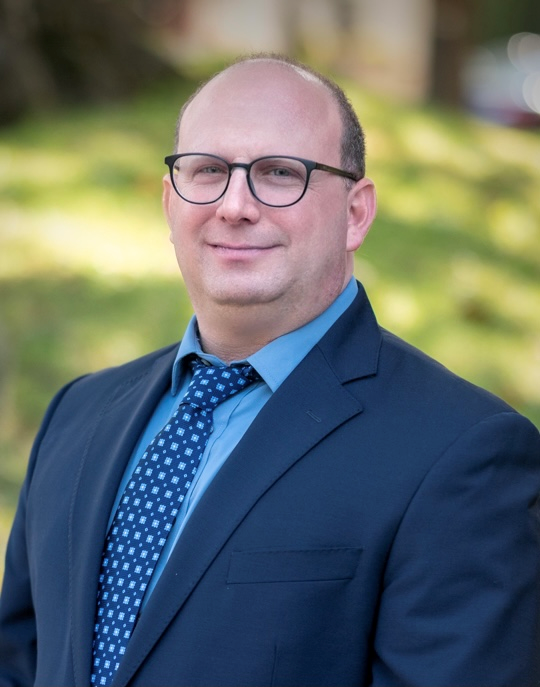
Dr. David E. Henner, DO
Division Chief of Nephrology
Medical Director of Dialysis
Berkshire Medical Center
President
National Forum of ESRD Network
Dr. Henner is a Nephrologist, and currently serves as the Division Chief of Nephrology and Medical Director of Dialysis at Berkshire Medical Center (BMC) in Pittsfield, Massachusetts. He also serves as the Medical Director of Dialysis at Southwestern Vermont Medical Center, in Bennington, Vermont. Dr. Henner completed his Nephrology Fellowship in 2003 at New York University (NYU). Prior to that, he graduated from Medical School at the Philadelphia College of Osteopathic Medicine (PCOM) in 1998 and completed his Internal Medicine Residency at St. Luke’s Hospital in Bethlehem, PA in 2001.
Dr. Henner currently serves as the President of the National Forum of ESRD Networks and is past Medical Advisory Council (MAC) Chair for the Forum. He also serves on the Medical Review Board (MRB) of the IPRO ESRD Network of New England (Network 1) and previously served as the Medical Review Board (MRB) Chair, and ESRD Divisional Board Chair for ESRD Network 1. Dr. Henner currently resides in Pittsfield, MA with his wife Nadine and 3 children- Alex (19 years old), Maddie and Gabe (15-year-old twins). Some of Dr. Henner’s favorite pastimes include baseball, hockey, and football, and he is a fan of the New York Yankees, Rangers, and New York Giants, craft IPAs, fantasy baseball and football, and the Grateful Dead.
Sunil Patel, MD
Director, Kidney Pancreas Program
University Medical Center Transplant Center, Las Vegas, NV
Sunil Patel, MD is the Program Director of the Kidney Pancreas Transplant Program at NVUM (UMC Transplant Center, Las Vegas, NV). Since joining the UMC Center for Transplantation as Program Director in 2020, Dr. Patel has worked alongside his colleagues at Nevada’s first and only transplant center to significantly expand access to life-saving kidney transplants. Most recently, the UMC Center for Transplantation performed 154 transplant procedures, more than tripling the annual number of transplants recorded in previous years. Dr. Patel and his team members also work tirelessly to optimize the use of donor kidneys, utilizing innovative procedures to reduce wait times and help patients recover from kidney failure. This includes performing dual kidney transplants in certain cases, using two donor kidneys rather than one to promote the best possible outcome. He was previously an Associate Professor of surgery at the Albany Medical Center in Albany, NY and an Assistant Professor at the University of Buffalo, Buffalo, NY. Dr. Patel was fellowship trained at the University of Pittsburgh and is Board - Certified in General Surgery.

Shrona Alpough, RN, BSN
Facility Administrator
DaVita Renal Center of Port Arthur
Shrona Alpough, RN, BSN is the Facility Administrator for the DaVita Renal Center of Port Arthur in Texas. She has been wholeheartedly serving ESRD patients in the region for the past 11 years with a passion to make a difference and the mission to provide service excellence. She is a recognized expert in leading the efforts to advance health equity in the renal community, particularly to meet the complex social needs of patients to ensure equitable access to care.

David Tyrell, BS, RN
Clinical Director/Transplant Administrator
University Medical Center Transplant Center, Las Vegas, NV
Dave Tyrell, BS, RN is the Clinical Director/Transplant Administrator for the Center for Transplantation – University Medical Center Las Vegas. He has been with UMC for over 16 years and has worked in the Transplant Center for the last 6 years. He has been instrumental in improving transplant center and dialysis facility communication and patient education about kidney transplantation in the greater Las Vegas area. Dave is also an active volunteer for the Nevada Nurses Association and served as the state president for 2 years. He is a graduate of the University of Nevada-Las Vegas with a Bachelor of Science in Nursing and is a Registered Nurse.
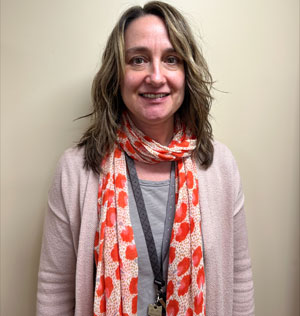
Christina Abel, LCSW, MSW
Renal Social Worker
Berkshire Medical Center
Christa Abel is an LCSW at Berkshire Medical Center’s Renal Dialysis Department. She is the Renal Social Worker at 2 dialysis units, covering both in-center and home modality patients. She worked part time in this capacity from 2003-2013, and recently returned to Renal full-time in 2022. Christa graduated with her MSW from the University of Michigan and had a special interest in social policy. She worked in the Boston area in subsidized housing to ensure tenancy preservation through service coordination prior to moving to the Berkshires. Christa’s goal is to be a strong support and advocate for her patients. She enjoys the community spirit of the dialysis units where she works.
 May 2, 2023 12:25
May 2, 2023 12:25Like throwing a stone into a lake, we create ripples on the surface and displace the water below. What happens when that stone is health care policy, and those ripples and displacement are both burden reduction and unattended consequences? In this discussion, we review the Office of Burden Reduction and Health Informatics’ efforts on predicting and measuring those ripples and displacements.
In 2022 OBHRI developed an Impact Analysis Methodology, which scores every regulatory action and policy released by CMS for potential burden reduction and policy-related impacts. This innovative methodology creates baseline quantitative and qualitative assumptions of burden totality using regulatory impact analysis, stakeholder feedback, and media sensing technology.
The methodology uses data to compare current burden perceptions, evaluates burdens estimated in the regulations, and then augments the quantitative data with qualitative, experiential anecdotes. The qualitative data prompts efforts to then review targeted data sources to add quantitative data to either support or challenge the qualitative burden perceptions.
This discussion will provide details on the methodology developed to bring clarity to the burden totality perceived by stakeholders and beneficiaries, beyond dollars and hours.

LT John Watts, PharmD
U.S. Public Health Service
Analyst
Office of Burden Reduction & Health Informatics
Centers for Medicare & Medicaid Services
LT John Edward Watts IV, Pharm.D. is the team lead of the Impact Analysis Team within the Governance and Impact Analysis Group of the Office of Burden Reduction and Health Informatic and the Chair of CMS's Impact Analysis Workgroup.
 May 2, 2023 12:25
May 2, 2023 12:25Opioid stewardship programs are designed to reduce opioid overuse, misuse, and abuse, ultimately helping prevent addiction while treating pain effectively. During this presentation, panelists will address the unique challenges surrounding opioid stewardship experienced by rural providers as well as strategies used to ensure successful implementation of opioid stewardship practices. The moderator and panelists will discuss methodologies and strategies to help attendees better understand opioid stewardship, how to address local challenges, and discuss implementation strategies to improve sustainability.

Dr. Christine Blake-Smith, DO
Family Medicine Physician
Portland West Family Practice
Dr. Christine Blake Smith, a Board-Certified Family Medicine physician, is an accomplished, respected, diverse Family Practice Physician with 20 years of high-quality, private practice in Family Medicine, Osteopathic Manipulative Medicine and Addiction Medicine at Portland West Family Practice in Portland, Maine, and has extensive experience as a volunteer and public health educator. As a physician and healthcare advocate, Dr. Blake Smith has a passion for empowering people through preventive care and inspiring wellness. Dr. Blake Smith earned her medical degree and completed her residency in Family Medicine at the University of New England College of Osteopathic Medicine in Biddeford, Maine. She performed her internship at Mercy Hospital in Portland, Maine. She was Board President and Spokesperson for the American Heart Association of Maine from 2014 to 2016 and served as a medical contributor for WMTW News Channel 8 from 2014 to 2017.

Jennifer Brockman, MHA, BSN, RN
Chief Clinical Program Officer
Iowa Healthcare Collaborative
Jennifer Brockman, MHA, BSN, RN is chief clinical program officer at Iowa Healthcare Collaborative where she leads an organizational structure that supports quality improvement, patient safety, change management, data analytics, and achievement of strategic directives.
Ms. Brockman has more than 20 years of clinical nursing experience in a variety of healthcare settings including acute and long-term care, quality management and infection prevention. She received a bachelor’s degree in science and nursing from the University of Iowa and a master’s degree in healthcare administration from Walden University. Ms. Brockman has extensive experience designing and executing small and large scale clinical and population health strategies, statewide alignment strategies, and national provider networks.
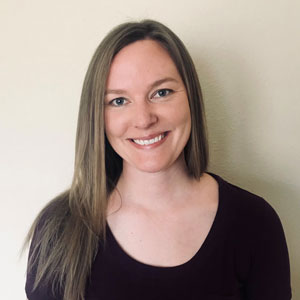
Rachel Duncan, PharmD, BCPS, BCCCP
Clinical Pharmacist
Iowa Healthcare Collaborative
Stader Opioid Consultants
Rachael Duncan, PharmD BCPS BCCCP is a critical care and ED pharmacist at Swedish Medical Center in Englewood Colorado. She also manages the 340B Drug Program at Heart of the Rockies Regional Medical Center in Salida Colorado. She earned her PharmD from Ohio Northern University in 2011 and completed a critical care residency at Duke University Hospital in 2013. She is the author and editor of multiple state- and nation-wide opioid stewardship and ALTO guidelines, championed the nations’ 2nd ED ALTO program, and published the first peer-reviewed paper on ALTOs in the ED. She has been instrumental in implementing numerous hospital-based ALTO programs throughout Colorado and the nation. Rachael is also involved with the Colorado Naloxone Project, including recruitment of over 100 Colorado hospitals in the first year of the project, assisting in implementation of take-home naloxone programs. In her other consulting work with Stader Opioid Consultants, she works on the CMS-funded Compass Opioid Stewardship Project where she creates educational content and provides coaching and chart review for primary care providers across the nation that manage a large caseload of patients on chronic opioid therapy and/or with OUD. As a pharmacist consultant, she continues to be a passionate advocate for safer analgesia and opioid stewardship. Rachael lives in Salida, Colorado with her husband and two young sons where they enjoy biking, rafting, and skiing.

Dr. Don Stader, MD, FACEP
Founder and President
Iowa Healthcare Collaborative
Stader Opioid Consultants
Don Stader, MD, FACEP is a board-certified emergency and addiction medicine physician, opioid expert, film producer & social entrepreneur. Don works at Swedish Medical Center in Englewood, CO where he served as section chair of emergency medicine and associate ED medical director prior to focusing on medical consulting. Don holds a medical degree with honors from Baylor College of Medicine and attended emergency medicine residency at Carolinas Medical Center. He is the Medical Director of the Compass Opioid Stewardship Program, a nationwide initiative to improve pain control, prescribing habits, addiction treatment and opioid stewardship for primary care clinicians. Don is also the founder and chair of the Colorado Naloxone Project, one of the most ambitious national efforts to engage hospitals and clinicians in opioid overdose risk recognition, education and naloxone dispensing.
Don is a recognized physician leader as is the Past President of the Colorado chapter of the American College of Emergency Physicians (COACEP) and former President of the Emergency Medicine Residents’ Association (EMRA). He is the founder and past chair of Colorado ACEP's Opioid Task Force, the Editor-in-Chief of COACEP's 2017 Opioid Prescribing & Treatment Guidelines and the CO's CURE’s guidelines on pain control and opioid stewardship. Don served for over 2 years as the Senior Pain Management & Opioid Policy Physician Adviser for the Colorado Hospital Association and serves on multiple national and local committees addressing the opioid epidemic in Colorado and across the nation, he is the current chair of ACEP’s Pain & Addiction Management Section. He is the founder and president of Stader Opioid Consulting, a company that provides opioid and ALTO related education, policy and quality improvement services to hospitals, government organizations and physician groups.
 May 2, 2023 12:25
May 2, 2023 12:25In the United States, Alzheimer’s Disease and Alzheimer’s Disease Related Dementias (AD/ADRD) affects as many as 5 million people and roughly 13.2 million older Americans are projected to have AD/ADRD by 2050. Alzheimer's Disease and related Dementias (AD/ADRD) are debilitating conditions that impair memory thought processes, and functioning, primarily among older adults. AD/ADRD has physical, psychological, social, and economic impacts not only for the individual but also for their families, and society as a whole.
Care management can be effective for people living with dementia when care goals are known and used to guide nonpharmacologic and pharmacological treatment.
This session will address the importance of patient-clinician decision making as well as identify ways to improve patient-clinician decision making in dementia care planning.

Dr. Shari Ling
Deputy Chief Medical Officer
Centers for Medicare & Medicaid Services
Dr. Shari M. Ling currently serves as the Deputy Chief Medical Officer for the Centers for Medicare and Medicaid Services (CMS). Dr. Ling’s committed focus is on the achievement of meaningful health outcomes for patients and families through the delivery of high quality, person-centered care, across all care settings. Her clinical focus and scientific interest are in the care of persons with dementia, multiple chronic conditions, and functional limitations.
Dr. Ling leads the CMS Behavioral Health Strategy implementation. She also represents CMS on several Health and Human Services (HHS) efforts. She represents CMS on the workgroups for the National Alzheimer’s Project Plan, and workgroups to eliminate and prevent Healthcare Associated Infections (HAIs), the National Strategy to Combat Antimicrobial Resistance.
Dr. Ling earned a Master’s in Gerontology in Direct Service at the Leonard Davis School of Gerontology, an MD degree at Georgetown University School of Medicine, completed a rheumatology fellowship at Georgetown University Hospital followed by a Geriatric Medicine fellowship at Johns Hopkins University School of Medicine. She continues her clinical work serving veterans as a volunteer dementia care provider, and has retained her appointment as part-time faculty in the Division of Geriatrics and Gerontology, Johns Hopkins University School of Medicine

Adrienne Mims, MD, MPH, FAAFP, AGSF
Chief Medical Officer
Rainmakers Strategic Solutions
Adrienne Mims, MD MPH is the Chief Medical Officer (CMO) at Rainmakers Strategic Solutions LLC. She is board certified in family medicine and geriatrics, with fellowship status in both specialties. As a clinical epidemiologist, she has more than 30 years of clinical and administrative experience in using quality performance metrics to guide changes in clinical processes and delivery system redesign to improve health equity for populations served. Using an interdisciplinary team approach that included beneficiary voices, she led the adaptation of a variety of settings from small to large clinical practices, health systems, Federally Qualified Health Centers, disease management programs, and Medicare Advantage plans.

Joe Montminy
Dementia Advocate
Joe Montminy was diagnosed with younger-onset Alzheimer’s disease in 2017 at age 54. Since his diagnosis, he has become a strong advocate for helping those diagnosed with dementia find ways to accept their diagnosis and live their best life, improved provider education, spreading awareness of the impacts of Alzheimer’s disease and related dementias, and improving accessibility to resources and support networks for individuals living with dementia.
Joe sits on the NAPA Advisory Council on Alzheimer's Research, National Alzheimer's Association Board of Directors, New England Early-Stage Advisory Group and the Quinnipiac University Alzheimer's Research Advisory Council. He was a member of the Massachusetts's state task force that identified and recommended solutions to address the top unmet needs for people living with younger-onset dementia in Massachusetts. He frequently speaks to state and federal congressional representatives regarding the importance of supporting Alzheimer's disease legislation and funding. Prior to his diagnosis, Mr. Montminy was a subject matter expert in the individual annuity market, an Associate Actuary with the Society of Actuaries and a member of the Academy of Actuaries.

G. Michael Harper, MD, ADSF, FACP
President
American Geriatrics Society
Professor
UCSF School of Medicine
Physician
San Francisco Veterans Affairs Medical Center
G. Michael Harper, M.D. is a geriatrician, Professor of Medicine at UCSF, a staff physician at the San Francisco Veterans Affairs Medical Center (SFVAMC), and current President of the American Geriatrics Society. Dr. Harper has worked in ambulatory and home-based primary care, long-term care, PACE, and acute and post-acute care. He now provides primary care for homebound older adults in San Francisco in the UCSF Care at Home Program. At the SFVAMC he provides consultative geriatric services on the Mobile Acute Care for Elders service, and he supervises physicians who are training to become geriatricians.
As a clinician-educator, his work has focused on training a workforce that is prepared to care for our rapidly aging population. He has been an internal medicine clerkship director, a geriatrics fellowship program director, and a Principal Investigator for multiple foundation and federal government sponsored geriatrics training and faculty development programs. Dr. Harper is a member of the UCSF Haile T. Debas Academy of Medical Educators and the author of several book chapters and peer reviewed articles on a range of clinical and educational topics. He was an editor for two textbooks in Geriatric Medicine. He previously served as Associate Chief of Staff for Geriatrics, Palliative and Extended Care at the SFVAMC and is a certified medical director.
Dr. Harper graduated from Rutgers Robert Wood Johnson Medical School and completed a general internal medicine residency at the Johns Hopkins Bayview Medical Center where he was also a Chief Resident. He completed a geriatrics fellowship at the Johns Hopkins University School of Medicine. He is board certified in internal medicine and geriatric medicine.
 May 2, 2023 12:25
May 2, 2023 12:25
Stephanie Fry
Senior Study Director
Westat Deputy Director
BFCC NCORC
Stephanie Fry is a survey methodologist who leads health services and policy research. She has supported the QIO program and evaluation work for more than 15 years and is currently serving as the BFCC NCORC Deputy Director. Ms. Fry is also a Senior Study Director at Westat where her work focuses on design and implementation of healthcare program evaluations, including the collection and reporting of stakeholder, beneficiary, provider, and payer perspectives.
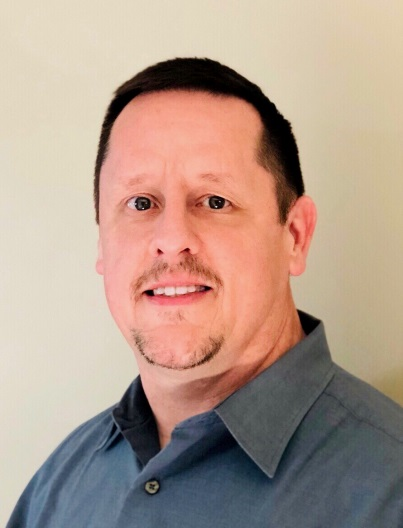
Scott Fortin, MBA
Senior Director
Communications and Outreach
Kepro
Scott Fortin, MBA, has over 20 years of experience in the healthcare industry, with 10 of those specific to the Quality Improvement Organization (QIO) community. He is a solutions-oriented marketing and stakeholder relations professional skilled in managing relationships and strategic communications. He understands methodology to develop and implement unique relational strategies in high profile environments. Scott is also well versed in collaborating with key partners and stakeholders to deliver communications and outreach solutions that support program objectives, ensuring effective and strategic messaging. Scott graduated from Olivet Nazarene University with a Master of Business Administration.

Matthew Stofferahn, MD
Medical Director
Livanta
Matthew Stofferahn, MD is the medical director of Livanta’s BFCC-QIO program. He is a graduate of the Johns Hopkins University School of Medicine and completed a residency in emergency medicine and internal medicine at Christiana Care Health System in Newark, Delaware, where he served as chief resident. He is a diplomate of the American Board of Emergency Medicine (ABEM) and American Board of Internal Medicine (ABIM). In addition to clinical practice, his healthcare experience includes roles in emergency department administration, quality assurance, and peer review. He continues to practice emergency medicine and is a core faculty member of the Valley Health System Emergency Medicine Residency Program in Las Vegas, Nevada.
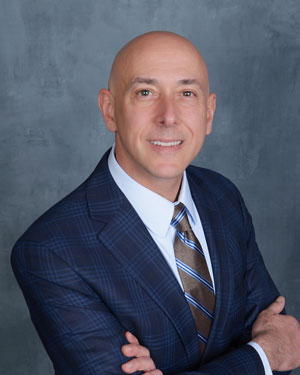
David Bercham, MSW
Senior Associate
Rainmakers Strategic Solutions
Director
BFCC-Survey Center
David Bercham holds a Master of Social Work degree and has over 20 years of experience managing and conducting program assessment and technical assistance projects on the local, state, and national levels for the U.S. Department of Health and Human Services (DHHS), the U.S. Department of Justice (DOJ), and the State of Michigan Department of Human Services (MI DHS). He has evaluated healthcare quality improvement programs, child and family mental health programs, juvenile delinquency prevention programs, juvenile court systems, and delinquency prevention practices in American Indian communities. Mr. Bercham has extensive experience conducting qualitative and quantitative data collection with adults, children, youth, and families across a variety of urban and rural settings. Mr. Bercham has provided technical assistance on all phases of program assessment including evaluation design; survey design and implementation; data collection, management, and analysis; and technical report writing. At Rainmakers Strategic Solutions, LLC, Mr. Bercham serves as the Program Director of the Beneficiary and Family Centered Care Survey Center (BFCC-SC) for the Centers for Medicare and Medicaid Services (CMS), Center for Clinical Standards and Quality (CCSQ) at DHHS. In this role, David provides overall administrative management and oversight of the BFCC-SC project; supervises BFCC-SC project staff; interfaces with project funders and other pertinent parties; leads project-related meetings; authors, reviews, and edits project reports; and oversees the development and submission of Office of Management and Budget (OMB) justification packages.
 May 2, 2023 12:25
May 2, 2023 12:25Stakeholder engagement activities leveraging Human-Centered Design methods by the Office of Burden Reduction were conducted to understand the problem spaces in care delivery related to Behavioral Health and Chronic Pain. While separate engagements, the two projects revealed a common theme specific to the impact stigma has on perceptions and therefore access to care, treatment and recovery.
This panel discussion will include a case study on how Human-Centered Design methods were leveraged for CMS’ stakeholder engagements to holistically understand the barriers encountered by individuals accessing behavioral health services for the prevention, treatment, and recovery from substance use disorder (including effective pain treatment), and the barriers encountered by those seeking access to covered treatment for chronic pain. Discussions will delve into issues raised through the stakeholder engagement work; including the impacts abstinence models have on vulnerable populations and the biases endured by individuals coping with and treating chronic pain. Through the lens of providers and patients, the discussion will illuminate the pervasiveness of stigma; the expansive impacts it has for those who seek care, and those who provide care, as well as efforts through communities and education to mitigate the barriers that stigma creates.
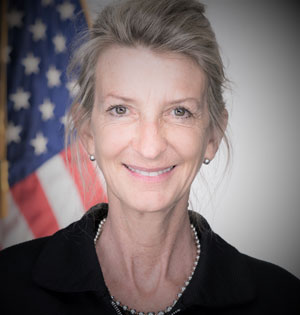
Stella "Stace" Mandl, BSW, BSN, RN, PHN (Moderator)
Deputy Office Director
Office of Burden Reduction and Health Informatics
Centers for Medicare & Medicaid Services
Stella (“Stace”) Mandl is the Deputy Director for the Office of Burden Reduction and Health Informatics at CMS. Stace transitioned back to CMS in 2019 from the Office of Health Policy in the Office of the Assistant Secretary for Planning and Evaluation (ASPE) where she served as the Designated Federal Officer for the Physician-Focused Payment Model Technical Advisory Committee (PTAC) and the PTAC Staff Director. Prior to joining ASPE, in her previous role at CMS, Stace was the Division Director for the Division of Chronic and Post-Acute Care. There she served as a technical lead and member of the leadership team overseeing the statutorily required programs related to post-acute care quality measure and data reporting, including the Improving Post-Acute Care Medicare Transformation Act of 2014. Stace is a certified public health nurse and has over 35 years of combined social work, healthcare, nursing, policy, quality, and leadership experience and has dedicated her professional career to improving patient care quality, safety, and outcomes. She has a Bachelor of Science in Nursing from San Francisco State University and a Bachelor of Science in Social Work from the State University of New York at Stony Brook. Stace’s diverse healthcare background includes social work, and her nursing career was launched in the US Army Nurse Corps (CPT Mandl) which evolved to include specialty areas such as emergency care, general surgery, Phase I post-anesthesia care, medical-surgical, clinical research, psychiatric care services, and nursing leadership.
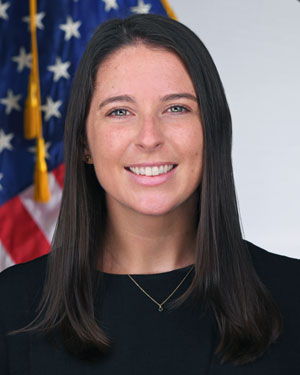
Morgan Taylor
Technical Advisor
Customer-Focused Research Group
Office of Burden Reduction and Health Informatics
Centers for Medicare & Medicaid Services
Morgan is an experienced human-centered design leader with 8 years at the Centers for Medicare and Medicaid Services (CMS). Morgan currently manages multiple human-centered design engagements, leading cross-agency qualitative research efforts supporting the Administration’s priorities and is a Technical Advisor for the Customer Focused Research Group (CFRG), within the Office of Burden Reduction & Health Informatics (OBRHI). Morgan ensures the CFRG team leverages human-centered design methodologies to elevate the voices of all CMS stakeholders. Prior to joining CFRG, Morgan spent 2.5 years in the Office of the Administrator directly supporting the Principal Deputy Administrator for Operations and Policy.

Ted Long, MD, MHS
Senior Vice President
Ambulatory Care and Population Health
New York City Health + Hospitals
Executive Director
Test & Treat Corps
Ted Long, MD, MHS, is Senior Vice President of Ambulatory Care and Population Health at New York City Health + Hospitals, the largest public health care system in the U.S. He is also executive director of the NYC Test & Treat Corps, the City’s comprehensive effort to provide COVID-19 testing, support, and treatment for New Yorkers.
New York City Health + Hospitals provides care to more than one million New Yorkers through 11 hospitals and more than 50 community health center sites. Dr. Long is responsible for leading one of the nation’s largest Federally Qualified Health Centers (FQHC) and transforming the health system’s current portfolio of ambulatory care, with more than five million outpatient visits per year, into an integrated and high-quality network providing care to all New Yorkers. He oversees Population Health and started the NYC Care program, which provides universal access to care for all New Yorkers.
Dr. Long previously served as Senior Medical Officer for the Quality Measurement and Value-Based Incentives Group at the Centers for Medicare and Medicaid Services (CMS), where he helped lead programs including the Merit-Based Incentive Payment System, the Hospital Readmission Reduction Program, and the Hospital Value-Based Purchasing Program. Before coming to CMS, Dr. Long served as Medical Director at the Rhode Island State Department of Health.
Dr. Long is a practicing primary care physician in the Bronx. He has authored 50 peer reviewed articles that have been published in journals including JAMA, Nature, and Lancet Public Health. Dr. Long is currently a faculty member at the NYU School of Global Public Health, the Yale School of Medicine, and the Harvard Medical School Center for Primary Care.
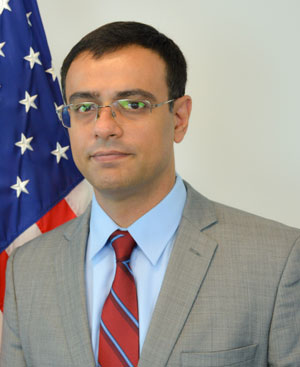
Neeraj Gandotra, MD
Chief Medical Officer
Substance Abuse and Mental Health Services
Administration

Sarah Lenz Lock, JD
Senior Vice President
Policy & Brain Health AARP
Sarah Lenz Lock is Senior Vice President for Policy and Brain Health in AARP’s Policy, Research and International (PRI). Ms. Lock leads AARP’s policy initiatives on brain health and care for people living with dementia, including serving as the Executive Director of the Global Council on Brain Health, an independent collaborative of scientists, doctors, and policy experts convened by AARP to provide trusted information on brain health. Previously, Ms. Lock was Senior Attorney/Manager at AARP Foundation Litigation conducting health care impact litigation on behalf of older persons. Ms. Lock has been a Trial Attorney for the U.S. Department of Justice, a Legislative Assistant in the U.S. House of Representatives to Congressman Michael D. Barnes working with the Federal Government Service Task Force, and also worked at the law firm of Arent, Fox, Kintner, Plotkin & Kahn.
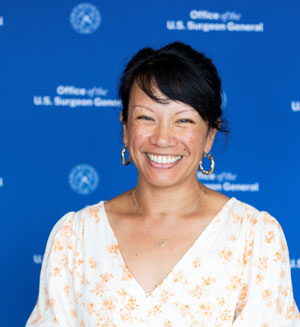
Jeane Garcia-Davis, MSN/MPH, RN
Associate Director, Science & Policy
Office of the Surgeon General
Jeane is a public health nurse committed to equitable, trauma-informed health policy and programming globally. She currently serves as an Associate Director for Science and Policy at the US Department of Health and Human Services Office of the US Surgeon General. Together with an inspiring team, she drives efforts to amplify local voices and solutions, strengthen partnerships, and translate the best available scientific evidence to protect, promote, and advance our nation’s health, safety, and well-being. Originally from Queens, NYC, she and her partner, Pierce, do their best to keep up with their three mighty little girls.
 May 2, 2023 12:25
May 2, 2023 12:25This session will contain three presentations focusing on advancing health equity through oral health quality improvement. The presentation will highlight the impact of the COVID-19 pandemic on the health disparities in the prevalence of dental conditions and access to dental services. The Oral Health Equity Self-Assessment Tool can decrease oral healthcare inequities and increase access and use of dental services. A dashboard has been created that can dynamically generates state and national oral healthcare quality measure reports.
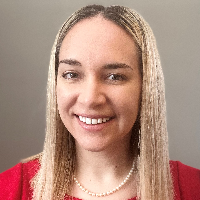
Dr. Carla Shoff, PhD (Moderator)
Senior Advisor to the Chief Dental Officer
Centers for Medicare & Medicaid Services
Dr. Carla Shoff is the Senior Advisor to the Chief Dental Officer in the Office of the Administrator at the Centers for Medicare & Medicaid Services (CMS). Prior to this role, Carla was a Social Science Research Analyst in the Office of Enterprise Data and Analytics at CMS for 9 years. She began her career as a Research Associate in the Population Research Institute at Penn State University. Carla holds a dual-title Ph.D. in Rural Sociology and Demography and a graduate certificate in Survey Methodology from Penn State University, where she focused her studies on health disparities, quantitative research methods, and statistics. Carla has devoted her career to using data to identify disparities in population health, health-related behaviors, and access to health care, which can be used to inform policy and advance health equity. She has a robust research portfolio of over 25 publications in peer-reviewed journals.

Dr. Jill Boylston Herndon, PhD
Owner
Key Analytics and Consulting, LLC
Dr. Herndon is the owner and principal consultant with Key Analytics and Consulting, LLC. She is an economist with extensive experience in research, policy analysis, program evaluation, project management, and education. She works with non-profit and for-profit organizations, government agencies, and academic institutions on measuring and evaluating healthcare delivery system performance. Her technical experience includes study design, survey research, statistical analyses of large claims databases, Delphi consensus processes, and healthcare quality measurement. She’s led testing efforts for Dental Quality Alliance oral healthcare quality measures to establish measure feasibility, reliability, and validity, and she is currently leading the data analyses for the DQA’s State Oral Healthcare Quality Dashboard. She served as a coach and technical advisor for the DQA’s Medicaid Quality Improvement Learning Academy and led external quality review evaluations for the State of Florida’s Children’s Health Insurance Program. Dr. Herndon has served as principal investigator on NIH/NIDCR-funded research, and she holds faculty appointments at the University of Florida College of Medicine and the University of Iowa Public Policy Center. She is an elected member of the Society of Pediatric Research, and her research has been published in a broad range of journals in the social and medical sciences.

Natalia Chalmers DDS, MHSc, PhD
Chief Dental Officer
Office of the AdministratorCenters for Medicare & Medicaid Services
Dr. Natalia Chalmers is CMS' first Chief Dental Officer in the Office of the Administrator. She is a board-certified pediatric dentist, oral health policy expert, and public health advocate who brings more than 20 years of clinical, research, industry, and regulatory experience to CMS. Previously, Dr. Chalmers served as a Dental Officer at the FDA. Dr. Chalmers has devoted her career to transforming scientific and healthcare data and information into actionable insights to address equity, improve care, and inform policy and funding better. Dr. Chalmers completed her Doctor of Dental Surgery degree at the Faculty of Dental Medicine of the Medical University of Sofia, a residency in pediatric dentistry at the University of Maryland School of Dentistry, and a Ph.D. in oral microbiology from the Graduate Partnerships Program of the University of Maryland School of Dentistry and the NIDCR/NIH, Post-doctoral Fellowship at the Forsyth Institute, and Clinical Research Fellowship at the NIDCR/NIH. In addition, Dr. Chalmers holds a Master’s degree in Clinical Research from Duke Medical University and a Certificate in Drug Development and Regulatory Science from the UCSF School of Pharmacy.
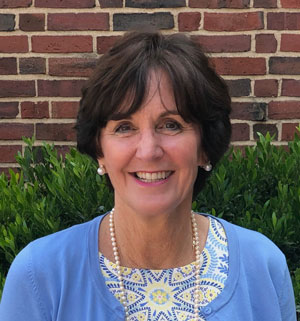
Mary Foley, MPH
Executive Director
Medicaid|Medicare|CHIP Services Dental Association
Ms. Mary E. Foley is the Executive Director of the Medicaid-Medicare-CHIP Services Dental Association (MSDA). A graduate of the University of Massachusetts School of Public Health and Health Policy, Ms. Foley received a Master’s Degree in Public Health with a concentration in Epidemiology and Biostatistics. Over her vast career, Ms. Foley has acquired a breadth of knowledge and experience in dental hygiene, dentistry, and dental policy related to dental public health, Medicaid, and CHIP programming. Since December 2009, Ms. Foley has been instrumental in advancing Medicaid policy across the states, aligning with federal priorities such as CMS’s Triple Aim, Quality in Healthcare, Value-Based Programming, and Health Equity. Her understanding of legislative and regulatory policy and its administration has helped to transition State dental programs from traditional fee-for-service to quality driven, value-based programs focusing on performance-based models that drive equitable oral healthcare for all. Her background in data and epidemiology helped to create the MSDA National Profile of State Medicaid and CHIP Oral Health Programs—an online, all State, Medicaid dental program resource. Through the establishment of the MSDA Corporate Round Table, Ms. Foley has forged partnerships and broadened communication across Medicaid dental program vendors seeking to improve administrations and ultimately care for Medicaid and CHIP members. Prior to her current position, Ms. Foley served as the Director of the Massachusetts Department of Public Health (MDPH), Office of Oral Health (OOH), and Dean of the Forsyth School of Dental Hygiene at the Massachusetts College of Pharmacy and Health Sciences, in Boston.
 May 2, 2023 12:25
May 2, 2023 12:25In this session Patients for Patient Safety US will share practical solutions for safer care that have their genesis in the stories of patients and their family members. The solutions we offer have been shaped by each speaker’s sense of having a calling to be an activist for patient safety, to partner effectively so that change happens, to re-invigorate patient safety and health equity as intrinsically connected priorities for all patients, and to restore trust. The session will explore preventable harm beyond complications and healthcare acquired conditions to include diagnostic failure or delay, failure to rescue, bias, moral harm, emotional harm, fiscal harm, and the intergenerational impact of unsafe care on parents, siblings and children. Revival in its essence is about renewal, recommitment and rebirth. The solutions we seek are achievable if there is the will to recommit to transparency, being responsible, and valuing the lived experience of patients and families as we co-create solutions together. With this session, Patients for Patient Safety US welcomes patients, providers, policymakers and change agents of all stripes who seek a safe and resilient healthcare system grounded in dedication to first, and fundamentally, do no harm. Join us at the Patient Safety Revival!
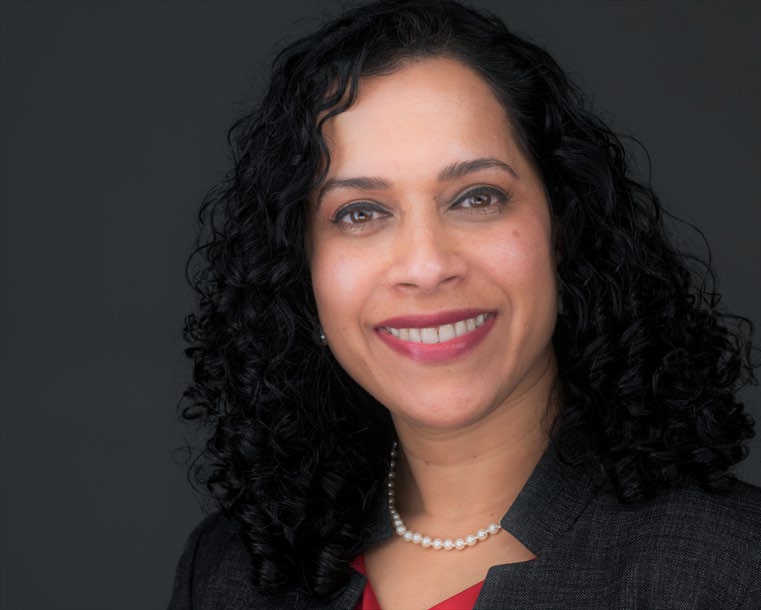
Anita Monteiro (Moderator)
Director
iQuality Improvement and Innovation Group
Centers for Medicare & Medicaid Services
Anita Monteiro leads the healthcare quality improvement and innovation programs at the U.S. Centers for Medicare & Medicaid Services (CMS). Anita is passionate about and dedicated to improving the lives, health outcomes and the experience of care for the people we serve. Anita leads a team of 110 incredible management and technical experts across Baltimore and four other U.S. locations, as well as dozens of specialized contract personnel across the country, to collectively serve as the primary driver for healthcare quality improvement for Medicare in the United States. This is accomplished through the provision of healthcare technical assistance to over 500 community health coalitions, 15,000 nursing homes, 7,500 dialysis facilities, and over 2000 hospitals (including all Indian Health Service hospitals). The program also includes key initiatives to reduce Opioid use and misuse, increase kidney transplantation, and Kidney community emergency/disaster planning and management at the national level. The program is also responsible for beneficiary protection through investigation of over 200,000 complaints per year, advocacy on their behalf, and expedited appeals for beneficiaries who believe they are being discharged early from certified healthcare facilities. In addition to the focus on quality improvement, Anita also leads data evaluation, communications and strategic innovation in healthcare.

Steve Burrows
Founding Member
Patients for Patient Safety US
Steve Burrows is a comedic storyteller - a writer, director and performer who has been entertaining audiences in film, television, commercials and theatre for 25 years. In 2009, in a career 180°, Burrows dropped out of Show Business to take care of his mother, Judie Burrows, a retired Wisconsin public school teacher who had gone in for a routine partial hip replacement and came out in a coma with permanent brain damage.
Confronted with the failure of Judie’s providers to take responsibility for the harm caused by substandard care and faced with daunting healthcare expenses that drained his family’s financial resources, Steve embarked on a ten-year fight for his Mom's life and for medical and legal justice. This journey became Steve’s latest film, the award-winning, critically acclaimed HBO documentary film Bleed Out. Seen by millions, Bleed Out has become a wake-up call-to-action for systemic medical reform in American Healthcare. Scores of hospitals systems, universities, medical, nursing and law schools have made Bleed Out a part of their teaching curriculum. Legislation inspired by Judie and Bleed Out began making its way into law. Healthcare providers across America have repeatedly declared Bleed Out is literally saving lives.

Carole Hemmelgran, MS
Founding Member
Patients for Patient Safety US
Carole Hemmelgarn, MS, MS, graduated from Colorado State University with a degree in Speech Communication. She received a master’s degree in Patient Safety Leadership from the University of Illinois at Chicago, and a second master’s degree in Health Care Ethics from Creighton University.
Ms. Hemmelgarn has worked in healthcare for over 30 years. She was an adjunct professor at the University of Illinois Chicago for ten years teaching in their mater’s program for patient safety. Currently, Ms. Hemmelgarn is the Senior Director Education for the MedStar Institute for Quality & Safety. She is also the Director for the Executive Master’s program for Clinical Quality, Safety & Leadership at Georgetown University.
Ms. Hemmelgarn is involved in patient safety work across the country. She sits on the Leapfrog Patient & Family Caregiver Expert Panel, Board of Quality, Safety and Experience at Children’s Hospital Colorado, Pediatric Sepsis Outcomes Collaborative at Children’s Hospital Colorado, Clinical Excellence Council for Colorado Hospital Association, and the Board of Directors for the Collaborative for Accountability and Improvement.
Her passion resides in transparency and communication after medical errors, health care communication, the power of storytelling in health care, and the aftermath endured by providers, patients, and families when medical harm transpires.
Ms. Hemmelgarn was driven to the field of patient safety after she lost her nine-year-old daughter, Alyssa, to multiple medical errors.
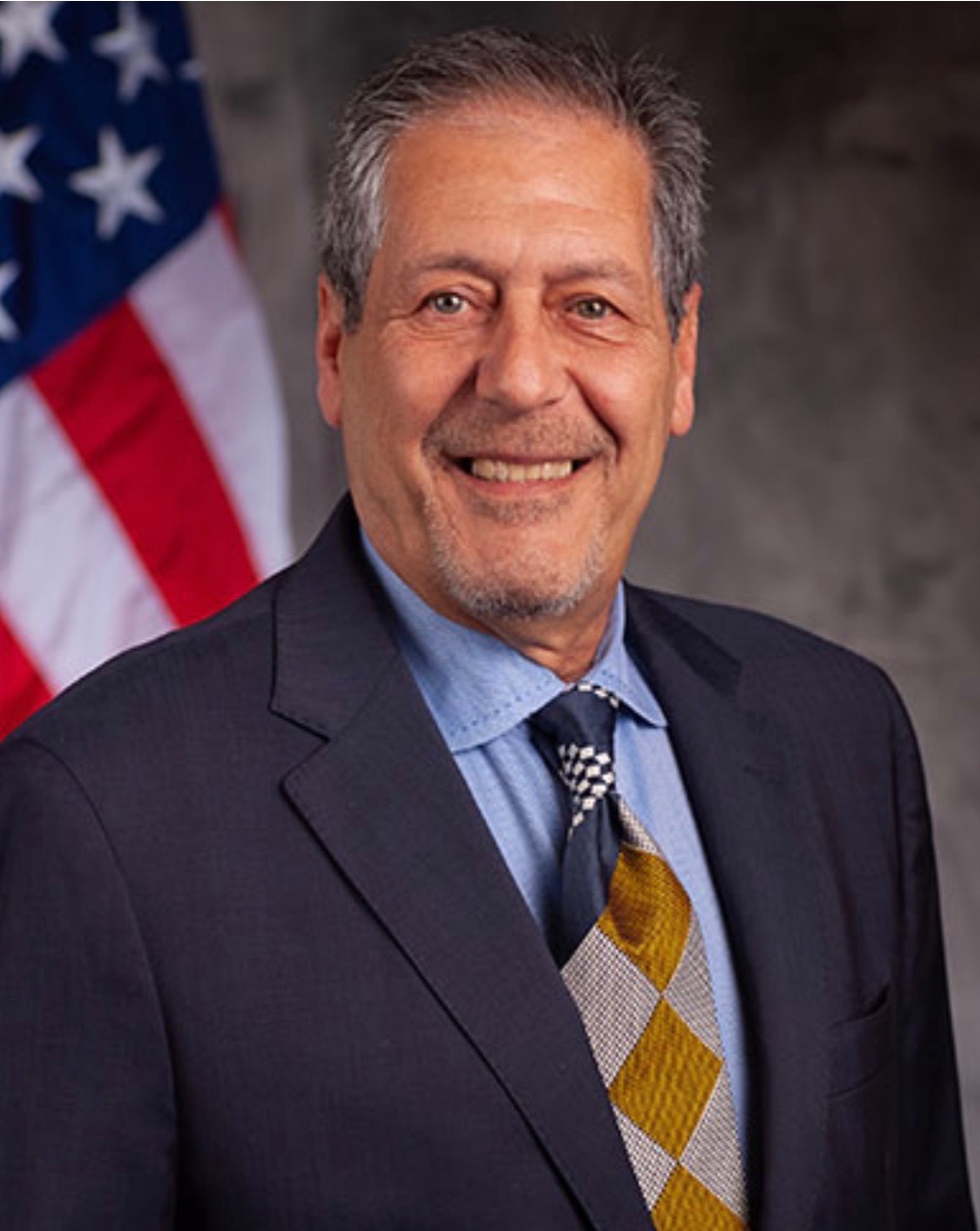
Armando Nahum
Founding Member
Patients for Patient Safety US
Armando Nahum is a founding member of Patients for Patient Safety US, a network of people and organizations aligned with the World Health Organization and focused on making healthcare safe. In 2006 Armando and his wife, Victoria, began their work in patient advocacy by establishing the Safe Care Campaign after 3 family members experienced healthcare associated infection in 3 different hospitals, in 3 different states in 10 months’ time, culminating with the death of their son, Josh.
Armando has been a driving force in establishing Patient and Family Advisory Council for Quality and Safety at each of the 10 MedStar Hospitals. Through his work MedStar reduced sepsis mortality due by 35%. The MedStar Health Sepsis Initiative has become a national model, adapted by institutions across the U.S. It has earned the Sherman Award for Patient Safety as well as the Circle of Honor for Patient Safety Innovation award from the Maryland Patient Safety Center.
He also is a co-founder of the Healthcare and Patient Partnership Institute, established to effectively train Hospitals to achieve the stated goals of CMS’ Partnership for Patients by bringing the patient and family voice into structured and sustainable advisory councils.
In February of 2020 Armando was appointed to the Presidential Advisory Council for Combating Antibiotic Resistant Bacteria. On November 14, 2022, Armando was invited by Secretary Becerra, from HHS, to open the session on the National Healthcare System Action Alliance.

Soojin Jun, BCGP, CPPS, CPHQ
Founding Member
Patients for Patient Safety US
Soojin (or “Soo”) Jun is a board-certified geriatric pharmacist (BCGP) in Illinois and Wisconsin. She is also a certified professional in-patient safety (CPPS) and a certified professional in healthcare quality (CPHQ), passionate about patient safety and quality improvement.
After losing her dad to many gaps in healthcare as a minority caregiver, possibly from medication adverse events, she changed her career from a wedding videographer to a pharmacist. She is a passionate patient advocate and is the owner of a Medium publication called “I am Cheese” where we envision empathetic healthcare by sharing healthcare stories in any language with a belief that any of us can be an “extra slice of cheese” to prevent medical harms.
She specializes in medication therapy management and believes empathy in healthcare can make healing possible in any relationship of healthcare. She has experience in both inpatient and outpatient pharmacies and has worked as a population health pharmacist that manages complex medication regimens and also helps with social determinants of healthcare.
She is also an ambassador for the Patient Safety Movement Foundation, a nonprofit organization dedicated to patient safety worldwide, where she passionately speaks up about patient safety, patient rights, minority health, and patient advocacy for voiceless patients. She speaks English and Korean and is eager to help patients!
 May 2, 2023 12:25
May 2, 2023 12:25State Medicaid agencies have significant flexibility to design programs to comprehensively address the health of their beneficiaries, including addressing unmet health-related social needs. This session will examine Health Services Initiatives in the Children’s Health Insurance Program and innovative new Medicaid demonstration projects that address food insecurity and housing instability. The Center for Medicaid and CHIP Services (CMCS) will present measurement and evaluation approaches and challenges. Representatives from the states of Massachusetts and Wisconsin will reflect on operational challenges, and how the efforts in these areas can serve as best practices for the future and result in improved delivery of equitable health care.

Stephen Esquivel-Pickett, PhD
Economist
State Demonstrations Group
Center for Medicaid and CHIP Services
Centers for Medicare & Medicare Services
Stephen Esquivel-Pickett, PhD is an economist in the State Demonstrations Group (SDG) in the Center for Medicaid and CHIP Services (CMCS). In this role he works with states by providing technical assistance to ensure states are conducting systematic monitoring and robust evaluation for Medicaid section 1115 demonstrations. Additionally, he is engaged in driving SDG’s efforts to establish and standardize monitoring and evaluation expectations for state demonstrations focusing on Health-Related Social Needs and Home and Community Based Services. Prior to joining CMCS, Stephen worked in the private sector and researched topics including health care utilization of low-income individuals, the effects of the Affordable Care Act on health coverage, and provider incentives in primary care. Stephen earned his PhD and MA in economics from Rice University and BBA in business and mathematics from Baylor University.

Amy Pulda
Homelessness Services Manager
Wisconsin Department of Health Services
Amy Pulda received a Master of Public Affairs degree from the La Follette School of Public Affairs at the University of Wisconsin-Madison. After receiving her MPA from the University of Wisconsin-Madison, she began her career in public policy and state government at the Wisconsin Department of Health Services. At the Wisconsin Department of Health Services, she has worked on program monitoring and compliance, researching and analyzing legislation, and developing and implementing policy initiatives. She is currently the Homelessness Services Manager at the Wisconsin Department of Health Services. In her role as Homelessness Services Manager, she has primary leadership of Wisconsin Medicaid initiatives and stakeholder relationships to address housing issues and homelessness.
Prior to working at the Wisconsin Department of Health Services, Amy Pulda worked with policies related to homelessness and housing while working as a Case Manager at the Franciscan Outreach Association, in Chicago, IL. At the Franciscan Outreach Association, she worked on a study which tested the efficacy of a “Housing First” model to improve the health of homeless individuals with chronic illnesses. The study measured the costs of health care services used by individuals experiencing homelessness before and after entering permanent supportive housing to determine whether permanent supportive housing would lead to significant reductions in the use of hospital inpatient and emergency room care.

Gary Sing
Mass Health
Senior Director of Strategic Initiatives
Office of Payment and Care Delivery Innovation
Gary Sing is the Senior Director of Strategic Initiatives at MassHealth, Massachusetts’ Medicaid agency. He is a member of the Innovation Team at MassHealth and oversees various delivery system investment programs, including numerous workforce initiatives. Gary also works to advance integration of health-related social services into MassHealth, which includes overseeing the Flexible Services program that allows MassHealth Accountable Care Organizations to use state/federal Medicaid dollars to pay for certain health-related nutrition and housing supports for certain eligible members. Additionally, Gary works to further strengthen MassHealth’s commitment to health equity through management and coordination of various health equity initiatives at the agency. Prior to joining MassHealth, Gary worked as a strategy consultant in the life sciences industry, earned a PhD from Harvard University in Engineering Sciences with a focus on computational neuroscience, and earned dual B.S.E.’s from Duke University in Biomedical Engineering and Electrical Engineering.
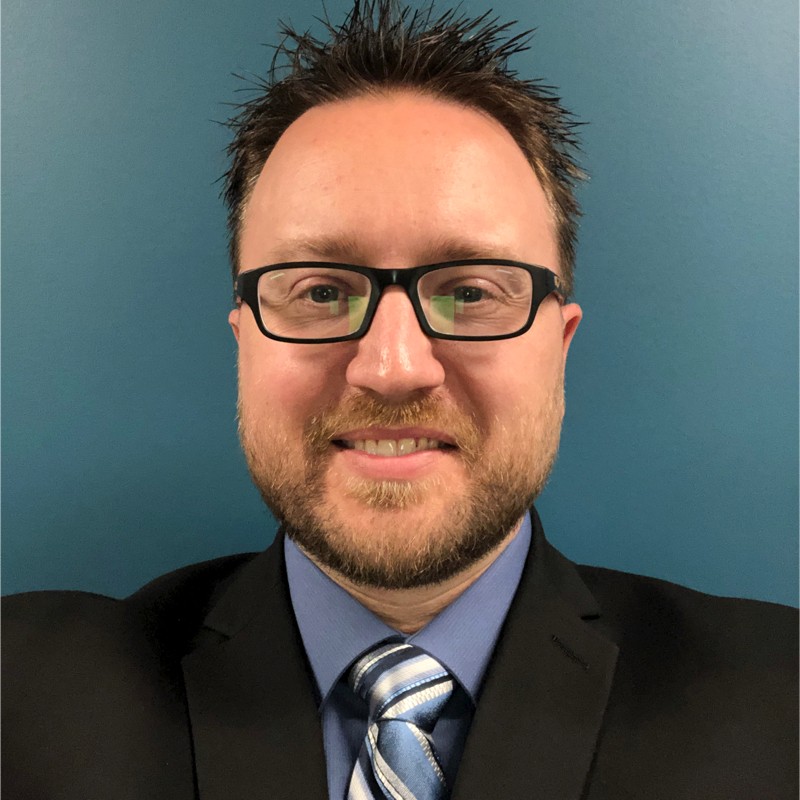
Joshua Bougie
Health Insurance Specialist
Division of State Coverage Programs
Centers for Medicare & Medicaid Services
Joshua Bougie is a Health Insurance Specialist in the Division of State Coverage Programs at the Centers for Medicare & Medicaid Services (CMS), which oversees the Children’s Health Insurance Program (CHIP), the Basic Health Program, and Connecting Kids to Coverage Outreach and Enrollment Grants. In this role, Josh provides programmatic oversight and develops CHIP policy and guidance by drafting Federal regulations, State Health Official letters, and other communications to States. He also reviews CHIP State Plan Amendments, identifies policy issues and their potential impact, and provides technical assistance to States and stakeholders. He oversees the submission, maintenance, and analysis of State data through (1) the annual State CHIP report and the CHIP Annual Reporting Template System; and (2) the CHIP Statistical Enrollment Data System. Josh serves as a subject matter expert on various CHIP policy and operation topics, including health services initiatives (HSIs) and their application for meeting health related social needs.
Prior to CMS, Josh served in State government to provide policy and programmatic oversight for Medicaid-funded home and community-based services; aged, blind, and disabled services; and behavioral health services for children and adults. He has also held positions with community organizations that directly addressed the needs of families struggling with homelessness, substance use disorders, behavioral health issues, and physical and intellectual disabilities.
 May 2, 2023 12:25
May 2, 2023 12:25This session will share CMS QIN-QIO lessons learned in partnership development and CLAS education, especially with populations at risk for health disparities, and opportunities to spread best practices.
Track: In June 2022, a QIN-QIO looked at ways to provide CLAS Standards support. Conversations with Partnerships for Community Health (PCH) identified the need for this assistance, especially for those pursuing NCQA accreditation. A QIN-QIO provided CLAS presentations to all 12 PCHs and learning sessions for the Indiana Rural Health Association. Individual meetings have been conducted with six organizations to explain CLAS and offer technical assistance. CLAS-related materials have been developed and disseminated. One common gap identified is access to translated resources from trusted sources. To address this need, a QIN-QIO is building new partnerships with community health workers and Su Casa, a local community hub for the Latinx population, and is leveraging existing opportunities with the Minority Health Coalition. Through Su Casa, A QIN-QIO was able to get three of our most-requested resources translated to Spanish and disseminated them at a community health fair in one of the Partnerships for Community Health (PCH) communities.

LeTonya Smith, CRNP
Health Insurance Specialist
Division of Community and Population Health
iQuality Improvement and Innovation Group
Center for Medicare and Medicaid Services
LeTonya “Tonya” Smith started at the Centers for Medicare & Medicaid Services (CMS) in Baltimore, Maryland in 2011. She worked in the Performance Based Payment Policy Group providing expertise on the quality metrics for the Value Based Modifier (VM) and Quality Resource Use Reports (QRURs).
LeTonya started in iQuality Improvement and Innovation Group (iQIIG) in 2013 where she provided subject matter expertise on the Quality Innovation Network-Quality Improvement Organization (QIN-QIO) 11th Statement of Work (SOW), Task H-Transforming Clinical Practice Initiative (TCPI). As a Contracting Officer Representative (COR) she has provided contract management and oversight for several Quality Payment Program-Small, Rural and Underserved (QPP-SURs) technical assistance contractors for the QPP-SURS program. She currently serves as a COR for the Network of Quality Improvement and Innovation Contractors (NQIIC): Quality Innovation Network – Quality Improvement Organization (QIN-QIO) Focused Task Order- Nursing Home Task. She has served as the Team Champion and most recently as the Nursing Home SME for the iQIIG Health Equity Matrix Team. She is currently the Health Equity SME for the Nursing Home Task. Tonya is involved in several Health Equity workgroups as led by the CMS Office of Minority Health.
LeTonya Smith has practiced as a Family Nurse Practitioner for 25 years in various practices including Internal Medicine, Pain Management and Diabetes and Endocrinology. She has provided care in various locations including nursing homes, assisted livings, outpatient clinics, home visits as well as a mobile outpatient clinic. Since 2014, she currently practices in an Internal Medicine office in Pikesville, Maryland. Ms. Smith received her Bachelors in Nursing degree and Masters in Nursing- Family Nurse Practitioner certification at the University of Maryland at Baltimore. She currently attends Howard University and is in Master of Divinity (MDiv) Program. Upon program completion, LeTonya plans to use her clinical experience, health policy and quality improvement expertise and MDiv degree to decrease health disparities in people of color by leveraging faith-based organizations.
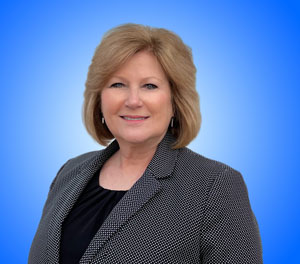
Tammy Geltmaker, RN, BSN, MHA, CPHQ
Progam Director
QSource
Ms. Geltmaker serves as the Program Director for Qsource, Indiana’s Quality Innovation Network-Quality Improvement Organization (QIN-QIO), where she provides oversight and direction for the quality improvement activities associated with Centers for Medicare & Medicaid Services 12th Statement of Work.
Ms. Geltmaker has a passion for improving health care and has more than 32 years in leadership, project management, business development, healthcare marketing and referral development, and patient care. Her knowledge and insight include the day-to-day operations in settings such as the physician office, hospital, hospice, home health and outpatient rehab. In her 17 years with the QIO, she has dedicated her efforts to successfully supporting teams, as well as assisting providers and stakeholders directly, with implementing quality improvement methodologies for population health, patient safety, EHR adoption, and cultural competency. She has conducted live and virtual presentations, facilitated learning and action network activities, and provided diabetes self-management education. Tammy received her baccalaureate degree in nursing from Indiana University Southeast, master’s degree in health administration from Webster University, and training in Lean Six Sigma.

Don Gettinger, BS
Quality Improvement Advisor
QSource
Don is a Quality Improvement Advisor for Qsource, the Quality Innovation Network-Quality Improvement Organization (QIN-QIO) for the state of Indiana with a passion for using data to improve the quality of health care. He has more than 15 years of experience providing quality improvement assistance to healthcare providers and communities. Don served as the leader of the Improving Health for Populations and Communities project which assisted physician offices with quality improvement projects using health information technology. Don possesses expertise in Medicare quality reporting programs and regularly provides technical assistance regarding process changes and improvements to meet reporting program requirements and to improve efficiency and quality of care. He and the QIO team have assisted health care organizations in successfully qualifying for incentive payments from the Medicare Quality Payment Program.
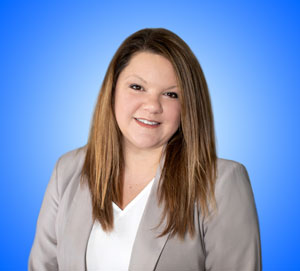
Tara Hatfield, MHA, BSN, CPHQ
Education Outreach Coordinator
QSource
Tara is a registered nurse who has been working with healthcare providers and organizations improve upon their quality metrics and patient outcomes for over 12 years. Prior to her focus on healthcare quality, she spent time at the bedside in the areas of critical care and oncology. Her passion for patients in rural communities has led her to serve on the board of the Indiana Rural Health Association and is currently holding an officer position as past president. Tara’s current position at Qsource allows her to blend her expertise in quality and process improvement and nursing skills to continue to assist providers and patients achieve their health outcome goals.
 May 2, 2023 12:25
May 2, 2023 12:25Standard updates significantly improve electronic clinical quality measures (eCQMs) and digital quality measures (dQMs) ability to aggregate outcomes about patient-centered care and patient engagement, areas challenged by insufficient and disparate capture and nomenclature for essential data elements. The Office of the National Coordinator for Health Information Technology (ONC) standardized definitions and data capture by publishing United States Core Data for Interoperability (USCDI) with social determinants of health (SDOH) criteria, functional and cognitive status, and physical activity. HL7 and ONC collaborate to support data capture and aggregation with US Core observation profiles to allow use of any screening/risk tool. Results enabled with these structured formats using standard code systems include food insecurity, functional status, cognitive status, and social risks. Quality Improvement Core (QI-Core®) builds on US Core, providing profiles to author eCQMs and dQMs quality measures consistent with how health systems share data for routine clinical care. Defining frailty (i.e., functional status and physical activity) is a current challenge seen in expressing eCQMs.
Track: Future work with a nascent Health Level Seven International (HL7) Fast Health Interoperability Resources (FHIR) Accelerator for Devices promises to capture data from ambulatory devices for trending patients over time (e.g., glucometer) and enable aggregate analysis of populations with respect to changes in trends over time. This presentation will review standards updates used in eCQMs and dQMs relevant to clinical outcomes and risk adjustment to improve data quality.

Floyd Eisenberg, MD, MPH, FACP
Senior Standards Advisor ICF
Floyd Eisenberg, MD, MPH, FACP, consultant to ICF, supports harmonized standards for electronic clinical quality measurement (eCQM) and clinical decision support (CDS) that are consistent with clinical workflow. As President of iParsimony, LLC he works on various quality-related standards activities. He also initiated the HIMSS Immunization Integration Program under the American Immunization Registry Association. Dr. Eisenberg is an Infectious Diseases internist with clinical practice and managed care quality experience. Dr. Eisenberg served as a Senior Key Expert at Siemens Health Services and initiated the transition to eCQM process at National Quality Forum. He holds elected positions as HL7 Treasurer, the HL7 Cross Workgroups Project Workgroup, and as past co-chair of the HL7 Clinical Quality Information Workgroup.
 May 2, 2023 12:25
May 2, 2023 12:25The COVID-19 pandemic has presented an unanticipated watershed movement where data is being leveraged to reprioritize and sustain community-engaged research to advance health equity in Georgia.
The Garnering Effective Outreach and Research in Georgia for Impact Alliance (GEORGIA) - Community Engagement Alliance (CEAL) Against COVID-19 Disparities Project (hereafter called GEORGIA CEAL) was funded as part of a 21-state organization network to conduct urgent community-engaged research and outreach focused on COVID-19 awareness and education to address misinformation and mistrust and promote and facilitate inclusion of diverse racial and ethnic populations in clinical trials along with vaccination uptake.
The GEORGIA CEAL Community Coalition Board, adapted from the Morehouse Model, leveraged networks supporting mixed method data collection strategies that included: surveys administered at two time-points in 34 counties (characterized by low vaccination and testing rates, and the Social Vulnerability Index); and interviews/focus groups.
Blacks/AA were 0.48 less likely to get vaccinated (p=0.003), and those with insurance and those who trusted their doctors/healthcare providers were more likely to get vaccinated (OR: 2.75, p=.001 and OR: 2.81, p=.0072, respectively). Qualitative findings highlighted historical and sociocultural factors driving vaccination mistrust and decision-making and informed a social media dashboard with real-time monitoring and analytics to identify/share credible communication resources.
Results reflect not only the acquisition of community wisdom towards advancing effective communication among marginalized communities in Georgia but the application of findings to communications and education approaches resulting in the vaccination of over 65,000 Georgians and an increased proportion of Black and Latinx participants in vaccine trials, amidst justified hesitancy during the pandemic.

Tabia Henry Akintobi, PhD, MPH
Professor and Chair of Community Health and Preventive Medicine
Associate Dean
Community Engagement
Principal Investigator
Prevention Research Center
Director
Evaluation and Institutional Assessment
Morehouse School of Medicine
Tabia Henry Akintobi, PhD, MPH is Professor of Community Health and Preventive Medicine, Dean of Community Engagement, and Principal Investigator and Director of the Prevention Research Center. Germane to these efforts is her demonstrated excellence in community-based participatory research, community-engaged public health practice and experiential learning among trainees across the health professional career development pipeline.

Shirley E. "Bella" Borghi
Executive Director and Vice Chairman
Hispanic Health Coalition of Georgia
Shirley is the Executive Director & Co-Vice Chairman of the Hispanic Health Coalition of Georgia, (HHCGA), a non-profit organization created to advance health policies that improve access to services for Hispanic/Latino children and adults, secure better health outcomes, and the prevention of Chronic Diseases with increased sustainability throughout the State. The HHCGA is presently Georgia's only statewide organization focusing on better outcomes in Chronic Diseases to this population.
Shirley has forged the organization around a core mission of policy, advocacy, and subject matter experts, relative to chronic diseases and behavioral sciences that impact our community. Shirley remains a recognized steward, positive game changer and subject matter expert by multiple national organizations, corporate partners, community stake holders, chronic disease experts and public policy/health think-tanks. Shirley is a graduate of the Class of 2019 for Leadership Atlanta. Shirley was also a recipient of the prestigious 2022 Joseph D. Greene Community Service Award that recognizes the recipients for their volunteer service to advance the health and healthcare of Georgians.
Shirley is multi-lingual with fluency in Italian, Spanish and Portuguese. Prior to joining the HHCGA, Shirley was a Senior Worldwide Executive in technology, communications, and multi-national industries with various Fortune 500 companies to new ventures across multi-million-dollar enterprises.

Saadia Khizer, MD, MPH
Director
Vaccine Trials Unit
Morehouse School of Medicine
Dr. Khizer is the Vaccine Trials Unit Director at the Morehouse. She is an experienced Lead Coordinator with a demonstrated history of working in the hospital & health care industry. She is skilled in Epidemiology, Institutional Review Board (IRB), Cell Culture, Epi Info, and Healthcare. Strong administrative professional with a Master of Public Health (M.P.H.) focused in Epidemiology from Georgia State University.
 May 2, 2023 12:25
May 2, 2023 12:25This session will 1) provide an overview of the CMS Innovation Center’s impact on the value-based care landscape, 2) share examples of how Innovation Center models have impacted key dimensions of health system transformation through retrospective reviews of evaluations and learning system work, as well as panelist experiences, and 3) discuss how the CMS Innovation Center will assess the impacts of its models on health system transformation moving forward.
The CMS Innovation Center was created in 2010 as a result of the Affordable Care Act (ACA) of 2010. It has since tested over 50 innovation models with the goal of improving quality and outcomes for beneficiaries while reducing costs.
In 2021, the Innovation Center underwent a strategic refresh, which resulted in a renewed vision to innovate equitable outcomes through high-Quality person centered care.

Purva Rawal, PhD (Moderator)
Chief Strategy Officer
Center for Medicare and Medicaid Services
Purva Rawal, PhD, is the Chief Strategy Officer at the CMS Innovation Center at the Centers for Medicare and Medicaid Services. As part of the Senior Leadership team, she provides guidance and leadership on the execution of the Innovation Center’s strategy.
Most recently, she was a principal at CapView Strategies, where she developed evidence-based public policy and business strategies and conducted policy research on health system transformation and sustainability issues. She was also an adjunct assistant professor at Georgetown University. In 2016, she published a book, The Affordable Care Act: Examining the Facts and has published book chapter, blogs, and papers on value-based care. Previously, Dr. Rawal served as professional staff on the Senate Budget Committee during the passage of the Affordable Care Act and as the health and social policy advisor to Sen. Joseph Lieberman (I-CT). She was also a director in the Health Insurance and Reform Practice at Avalere Health. She began her health policy career as a Christine Mirzayan Science and Technology Fellow at the National Academy of Sciences and as a Congressional Fellow for the Society for Research on Child Development and the American Association for the Advancement of Science. Dr. Rawal received her B.A. and Ph.D. from Northwestern University.

Elizabeth "Liz" Fowler, PhD, JD
Deputy Administrator and Director
Center for Medicare and Medicaid Innovation
Centers for Medicare & Medicaid Services
Dr. Elizabeth Fowler is the Deputy Administrator and Director of the Center for Medicare and Medicaid Innovation at CMS. Dr. Fowler previously served as Executive Vice President of programs at The Commonwealth Fund and Vice President for Global Health Policy at Johnson & Johnson. She was special assistant to President Obama on health care and economic policy at the National Economic Council. From 2008 to 2010, she was Chief Health Counsel to Senate Finance Committee Chair, Senator Max Baucus (D-MT), where she played a critical role developing the Senate version of the Affordable Care Act. She also played a key role drafting the 2003 Medicare Prescription Drug, Improvement and Modernization Act (MMA). Dr. Fowler has over 25 years of experience in health policy and health services research. She earned a bachelor’s degree from the University of Pennsylvania, a Ph.D. from the Johns Hopkins Bloomberg School of Public Health, where her research focused on risk adjustment, and a law degree (J.D.) from the University of Minnesota. She is admitted to the bar in Maryland, the District of Columbia, and the U.S. Supreme Court. Dr. Fowler is a Fellow of the inaugural class of the Aspen Health Innovators Fellowship and was elected to the National Academy of Medicine in 2022.
Kate Davidson, LCSW
Director
Learning and Diffusion Group
Center for Medicare and Medicaid Innovation
Center for Medicare and Medicaid Services
Kate Davidson, LCSW is the Director of the Learning and Diffusion Group (LDG) at the Center for Medicare and Medicaid Innovation, within the Centers for Medicare & Medicaid Services (CMS). In this role, Ms. Davidson leads the Innovation Center’s team focused on accelerating healthcare system transformation and person-centeredness by leveraging improvement science within and across models. She also executes on the Innovation Center’s strategy for multi-payer alignment through the Healthcare Payment Learning and Action Network (HCP-LAN). Prior to joining CMS, Ms. Davidson led Policy and Practice Improvement efforts at the National Council for Behavioral Health, where she managed payment reform, quality improvement and workforce development initiatives in mental health and addiction prevention, treatment, and recovery organizations and provided training and technical assistance to healthcare and human services organizations, counties and states. Ms. Davidson began her career researching, testing and scaling interventions in healthcare and community-based settings. In this capacity she has provided clinical and administrative leadership in a broad range of settings testing innovative payment and care delivery models. Ms. Davidson has an MSW from Fordham University and a BA from Loyola College in Maryland.

Julita Mir, MD
Chief Medical Officer
Community Care Cooperative
Dr. Mir is an Internist and Infectious diseases physician graduate of the Boston University School of Medicine. She completed her medical degree at the Universidad Central de Venezuela where she developed a passion for community health and serving the most vulnerable populations. She has a 20-year career leading primary care transformation efforts, building bridges between stakeholders, and ensuring the highest quality of care. Dr. Mir has held multiple leadership positions including being the Chief Medical Officer for Dot House Health in Dorchester and currently the Chief Medical Officer at Community Care Cooperative (C3) where she leads the transition of our FQHC’s to a value based model of care.

Noemi Rudolph, MPH
Acting Director
Research and Rapid Cycle Evaluation Group Center for
Medicare and Medicaid Innovation
Center for Medicare and Medicaid Services
Noemi Rudolph is the Acting Group Director for the Research and Rapid Cycle Evaluation Group (RREG), at the Center for Medicare and Medicaid Innovation, within the Centers for Medicare & Medicaid Services (CMS). She has been with CMS for 27 years. In this role, she leads a team that conducts statutorily mandated evaluations of Medicare and Medicaid payment and service delivery model tests and demonstrations and oversees research with policy relevance to CMS. Prior to becoming a manager at CMS, she worked on the evaluations of projects involving dual eligible beneficiaries, Medicare Advantage, and prescription drug benefit. She joined the federal government as a Presidential Management Fellow working briefly in the U.S. House of Representatives Ways and Means Health Subcommittee, CMS’ San Francisco Regional Office, and a Medicare payment contractor. Mrs. Rudolph has a MPH in Community Health Sciences and a BS in Psychobiology, both from the University of California, Los Angeles.
 May 2, 2023 13:10
May 2, 2023 13:10 May 2, 2023 14:10
May 2, 2023 14:10Although respiratory illness isn’t the cause of overcrowded emergency departments (EDs), the COVID-19 pandemic highlighted a reality present for decades: A resilient system, including one that can cope with surges in demand, requires deliberate alignment of incentives. One predictable consequence of healthcare economic incentives is the widespread practice of “boarding” people in EDs.
Boarding has a nexus to every element of the CMS National Quality Strategy and is associated with a multitude of harms including increased mortality, medical errors, readmissions, hospital acquired infections, guideline non-adherence, and physical violence. The consequences are well-described, but the practice continues because the economic and regulatory milieu continue to incentivize it. This panel of experts—representing perspectives from urban and rural hospitals, emergency care research, and quality improvement science—will examine why and begin to reimagine a more resilient and equitable design. This moderated roundtable will briefly survey the substantial body of topical literature, more closely examine the economic drivers, and discuss policy levers such as quality measurement, certification standards, payment dynamics, and other systematic approaches. Patients are put at risk not out of malice, but as a predictable consequence of how a complex system responds to incentives. By identifying and examining those incentives, we can improve outcomes, build resilience, and enhance safety.
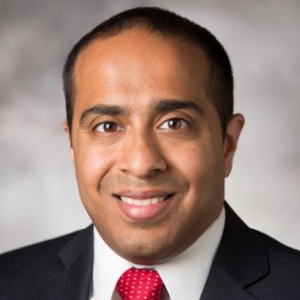
Arjun Venkatesh, MD, MBA, MHS
Chair
Department of Emergency Medicine
Yale School of Medicine
Dr. Venkatesh is Chair of Emergency Medicine for Yale School of Medicine and Chief of Emergency Medicine for Yale New Haven Hospital. He is also Scientist at the Yale Center for Outcomes Research and Evaluation. He has been funded by the NIH, AHRQ, and the Emergency Medicine Foundation to study health system outcomes and efficiency, and he is supported by CMS as co-Principal Investigator of the Emergency Quality Network and for the development of the Overall Hospital Quality Star Ratings. He has published over 80 peer-reviewed papers and is senior editor of The Evidence book series. He is national leader within ACEP and SAEM and serves on expert panels for the National Quality Forum, Agency for Healthcare Research and Quality, and CMS. His work is also funded by NIH’s National Institute of Drug Abuse and the Addiction Policy Forum to advance the quality and delivery of emergency and acute care for opioid use disorders. Dr. Venkatesh earned his undergraduate degree at Northwestern University. He went on to earn an MBA from Ohio State University before completing medical school at Northwestern University Feinberg School of Medicine. He completed his Emergency Medicine residency at Brigham and Women’s and Massachusetts General Hospitals and the Robert Wood Johnson Clinical Scholars Program at Yale University.

Dr. Sean Michael (Moderator)
Regional Chief Medical Officer
Centers for Medicare & Medicaid Services
Dr. Sean Michael is a board-certified and actively practicing emergency physician with dual-board certification in clinical informatics. He serves as Regional Chief Medical Officer for CMS’s Denver office, focusing on the implementation of CMS programs and policy including Medicare, Medicaid, EMTALA, and the Agency’s health access and equity initiatives across the Mountain West. As a senior medical advisor for CMS programs in the region, he provides clinical expertise around payment, policy, quality improvement, survey/enforcement operations, contracted health plans, and data analytics and serves as the principal liaison with the clinical community. Dr. Michael was previously the Emergency Department Medical Director at the University of Colorado Hospital and remains on faculty at the University of Colorado School of Medicine. His academic research has focused on hospital flow and crowding, patient safety, clinical decision support, and workflow design.
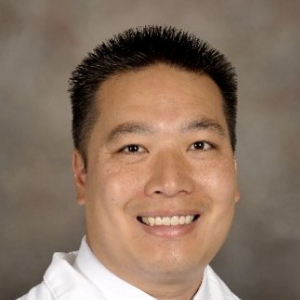
Eric Wei, MD, MBA
Senior Vice President and Chief Quality Officer
New York City Health + Hospitals
Eric Wei is the Senior Vice President and Chief Quality Officer for NYC Health + Hospitals, the largest municipal health system in the United States, with 11 acute care hospitals, 5 skilled nursing facilities, 60+ community health centers, a home care agency, correctional health services, and an insurance plan. He leads the health system’s Office of Quality and Safety, focused on fostering a culture of safety, building quality improvement capacity across all 43,000 staff, and becoming a data driven organization. Dr. Wei also leads care experience, workforce wellness, high value care, continuing professional education, utilization management, transitions in care, emergency medicine innovation, virtual care, data and analytics, and emergency management. He is the fellowship director for the NYC Health + Hospitals Clinical Leadership Fellowship and launched Healthcare Administration Scholars Program. He is a practicing Emergency Medicine physician rotating through all 11 Emergency Departments at NYC Health + Hospitals. He received his Bachelor’s degree in Molecular, Cell and Developmental Biology at University of California, Los Angeles and completed the combined MD and MBA program at University of California. He completed his Emergency Medicine residency and the Healthcare Administration Scholars Program at the University of Michigan and is Lean Healthcare, Six Sigma Black Belt, and TeamSTEPPS Master Trainer certified.
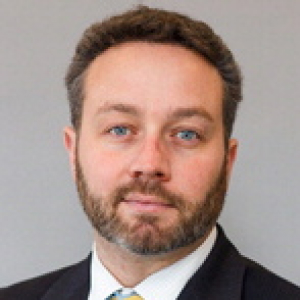
Martin Reznek, MD, MBA
Professor and Execute Vice Chair for Clinical Operations and Education
Department of Emergency Medicine
UMass Chan Medical School/Umass Memorial Health
Dr. Martin Reznek is Professor and Execute Vice Chair for Clinical Operations and Education in the Department of Emergency Medicine at UMass Chan Medical School and UMassMemorial Health, where he oversees 5 EDs, UC, and a large observation unit. He was the Founding Director of Richard V Aghababian Emergency Medicine Leadership and Administrative Fellowship and chairs multiple national committees, including with the Society for Academic Emergency Medicine. He received his undergraduate degree at Cornell University and his medical education at Baylor College of Medicine before completing residency at Detroit Receiving Hospital, simulation fellowship at Stanford University, and emergency medicine and hospital administrative fellowship at Detroit Medical Center, while also earning an MBA from University of Michigan. He has published extensively on the topics of quality, safety, hospital flow, and boarding.
 May 2, 2023 14:10
May 2, 2023 14:10CMS’ Behavioral Health Strategy outlines goals to support the whole emotional and mental well-being of a person, and promote person-centered behavioral health care, and aligns with the HHS Roadmap for Behavioral Health Integration. This plenary provides insights into the transformational opportunities to achieve better health outcomes through the delivery of integrated physical and mental health care services and supports. Speakers will discuss multi-level policy opportunities to enable integrated physical and mental health care delivery, and describe a systems-level framework for a learning health system for continuous improvement of health outcomes for people with mental and physical health needs
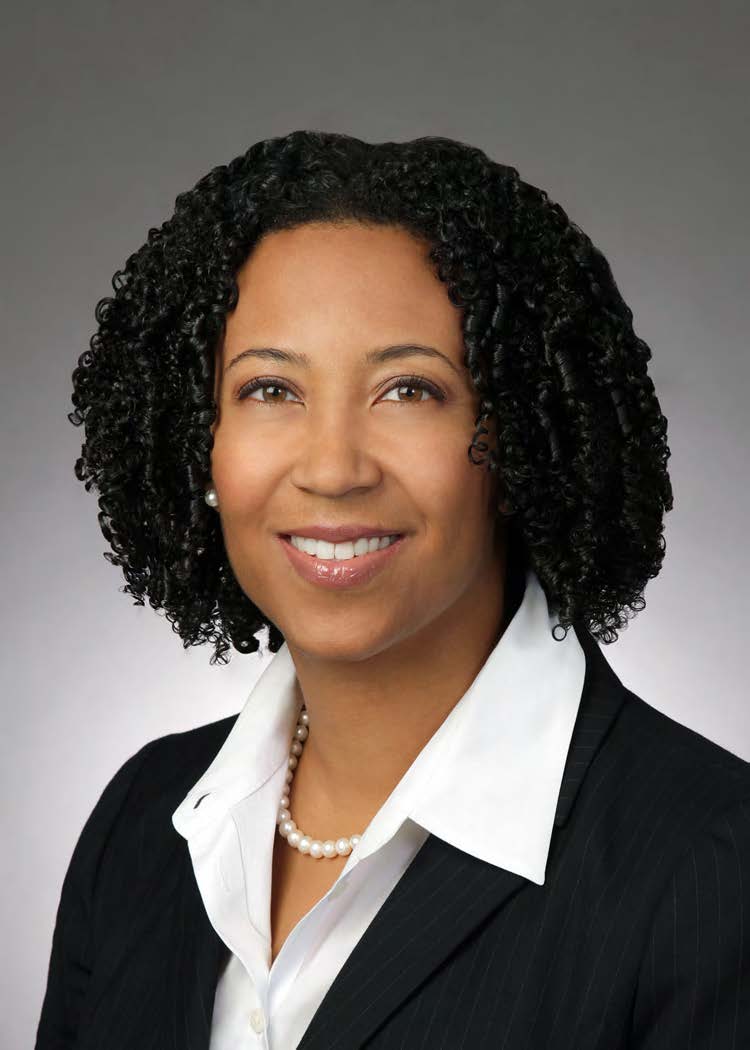
Dora Hughes, M.D., M.P.H.
Chief Medical Officer Center for Medicare & Medicaid
Innovation Centers for Medicare & Medicaid Services
Dora Hughes, M.D., M.P.H., is Chief Medical Officer at the CMS Innovation Center at the Centers for Medicare & Medicaid Services. She leads the Center’s work on health equity, provides clinical input on models, liaises with stakeholder groups, and directs CMMI’s clinician community.
Previously, Dr. Hughes served as an Associate Research Professor of Health Policy & Management at George Washington University, where her work focused on the intersection of clinical and community health, health equity, healthcare quality and workforce. Prior to this role, Dr. Hughes was a Senior Policy Advisor at Sidley Austin, where she advised on regulatory and legislative matters in the life science industry. Additionally, Dr. Hughes served as the Counselor for Science & Public Health at the U.S. Department of Health & Human Services in the Obama Administration, helping to implement the Affordable Care Act and providing guidance to the Public Health Service Act authorized agencies and Food and Drug Administration. Dr. Hughes began her career in health policy as Senior Program Officer at the Commonwealth Fund, and subsequently was Deputy Director for the HELP Committee for the late Senator Edward M. Kennedy and Health Policy Advisor to former Senator Barack Obama. Dr. Hughes received a B.S. from Washington University, M.D. from Vanderbilt and M.P.H. from Harvard. She completed an internal medicine residency at Brigham & Women’s Hospital

Anand Parekh, MD, MPH
Chief Medical Advisor
Bipartisan Policy Center
Prior to joining BPC, Dr. Parekh completed a decade of service at the U.S. Department of Health and Human Services (HHS). As HHS Deputy Assistant Secretary for Health in the Senior Executive Service, he developed and implemented national initiatives focused on prevention, wellness, and care management. He played instrumental roles in the implementation of the Recovery Act’s Prevention and Wellness Fund, the Affordable Care Act’s prevention initiatives, and HHS’ Multiple Chronic Conditions Initiative. He was also briefly delegated the authorities of the HHS Assistant Secretary for Health overseeing ten health program offices and the U.S. Public Health Service Commissioned Corps. Earlier in his HHS career, he played key roles in public health emergency preparedness efforts related to pandemic influenza and bioterrorism. Dr. Parekh is a board-certified internal medicine physician, a fellow of the American College of Physicians, an adjunct professor of health management and policy at the University of Michigan School of Public Health, and an adjunct assistant professor of medicine at Johns Hopkins University, where he previously completed his residency training in the Osler Medical Program of the Department of Medicine. He currently serves on the Board of Population Health and Public Health Practice at the National Academies of Sciences, Engineering, and Medicine, Dean’s Advisory Board of the University of Michigan School of Public Health, Board of Directors of the Presidential Scholars Foundation, Board of Directors of WaterAid America, and the Founders Council at the United States of Care. He received a BA in political science, and a MD and MPH in health management and policy from the University of Michigan

Kedar Mate, MD
President and Chief Executive Officer
Institute for Healthcare Improvement
In addition to his role as president and CEO of IHI, Kedar Mate is President of the Lucian Leape Institute, and a member of the faculty at Weill Cornell Medical College. Dr. Mate’s scholarly work has focused on health system design, health care quality, strategies for achieving large-scale change, and approaches to improving value. Previously Dr. Mate worked at Partners In Health, the World Health Organization, Brigham and Women’s Hospital, and served as IHI’s Chief Innovation and Education Officer. Dr. Mate has published numerous peer-reviewed articles, book chapters and white papers and has received multiple honors including serving as a Soros Fellow, Fulbright Specialist, Zetema Panelist, and an Aspen Institute Health Innovators Fellow. He graduated from Brown University with a degree in American History and from Harvard Medical School with a medical degree.

Dr. Shari Ling (co-Moderator)
Deputy Chief Medical Officer
Center for Clinical Standards and Quality
Centers for Medicare & Medicaid Services
Dr. Shari M. Ling currently serves as the Deputy Chief Medical Officer for the Centers for Medicare and Medicaid Services (CMS). Dr. Ling’s committed focus is on the achievement of meaningful health outcomes for patients and families through the delivery of high quality, person-centered care, across all care settings. Her clinical focus and scientific interest are in the care of persons with dementia, multiple chronic conditions, and functional limitations.
Dr. Ling leads the CMS Behavioral Health Strategy implementation. She also represents CMS on several Health and Human Services (HHS) efforts. She represents CMS on the workgroups for the National Alzheimer’s Project Plan, and workgroups to eliminate and prevent Healthcare Associated Infections (HAIs), the National Strategy to Combat Antimicrobial Resistance.
Dr. Ling earned a Master’s in Gerontology in Direct Service at the Leonard Davis School of Gerontology, an MD degree at Georgetown University School of Medicine, completed a rheumatology fellowship at Georgetown University Hospital followed by a Geriatric Medicine fellowship at Johns Hopkins University School of Medicine. She continues her clinical work serving veterans as a volunteer dementia care provider, and has retained her appointment as part-time faculty in the Division of Geriatrics and Gerontology, Johns Hopkins University School of Medicine
 May 2, 2023 14:10
May 2, 2023 14:10CMS is providing the key elements of programmatic vision and acquisition related to the planned QIO 13th Scope of Work. Learn more about how CMS intends to position the QIO Program to provide quality improvement assistance within a changed health system.

Anita Monteiro (Moderator)
Director
iQuality Improvement and Innovation Group
Centers for Medicare & Medicaid Services
Anita Monteiro leads the healthcare quality improvement and innovation programs at the U.S. Centers for Medicare & Medicaid Services (CMS). Anita is passionate about and dedicated to improving the lives, health outcomes and the experience of care for the people we serve. Anita leads a team of 110 incredible management and technical experts across Baltimore and four other U.S. locations, as well as dozens of specialized contract personnel across the country, to collectively serve as the primary driver for healthcare quality improvement for Medicare in the United States. This is accomplished through the provision of healthcare technical assistance to over 500 community health coalitions, 15,000 nursing homes, 7,500 dialysis facilities, and over 2000 hospitals (including all Indian Health Service hospitals). The program also includes key initiatives to reduce Opioid use and misuse, increase kidney transplantation, and Kidney community emergency/disaster planning and management at the national level. The program is also responsible for beneficiary protection through investigation of over 200,000 complaints per year, advocacy on their behalf, and expedited appeals for beneficiaries who believe they are being discharged early from certified healthcare facilities. In addition to the focus on quality improvement, Anita also leads data evaluation, communications and strategic innovation in healthcare.
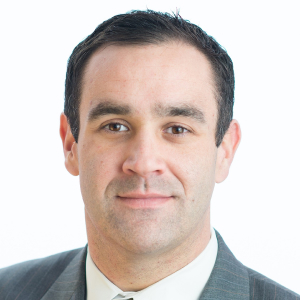
Michael Connors
Director of the Division of Quality Contracts
Office of Acquisition and Grants Management (OAGM)
Centers for Medicare & Medicaid Services
Mike has been the Director of the Division of Quality Contracts since October 2021. Since joining CMS/OAGM in December 2013, Mike has also served as a Contract Specialist and Contracting Officer supporting many of CMS’ programs. Additionally, prior to joining CMS, Mike served as a Contract Specialist and a Contracting Officer for the Federal Bureau of Prisons for 5 years.
 May 2, 2023 15:00
May 2, 2023 15:00The HHS 2019 Pain Management Best Practices Inter-Agency Task Force Report outlined multiple approaches to pain management that should be leveraged based on each person’s unique situation to achieve successful pain care.
It is essential to apply a comprehensive, person-centered approach to the diagnosis and treatment of pain that allows for multiple therapeutic modalities alongside thoughtful and individualized care coordination. The uptake of this approach is an increasingly urgent concern; nearly 80 percent of Medicare beneficiaries report experiencing chronic pain that interferes with function and quality of life.
Physician shortages also have serious implications for people living with pain across geography, underserved populations, and care settings. Our goal is to increase access to high quality pain care in the nation’s health care system. This session will outline collaboration across several HHS operating divisions to issue updated prescribing guidance, create new payment pathways for treatment, and make it easier for clinicians to find screening tools.

Scott Lawrence, DC (Moderator)
Deputy Director
Division of Practitioner Services
Center for Medicare
Centers for Medicare & Medicaid Services
Dr. Lawrence is a practicing chiropractor. He and his division colleagues at CMS are integral to annual development of the annual CMS Medicare Physician Fee Schedule (PFS) and helped shepherd the new chronic pain management codes into the 2023 PFS: https://public-inspection.federalregister.gov/2022-23873.pdf.
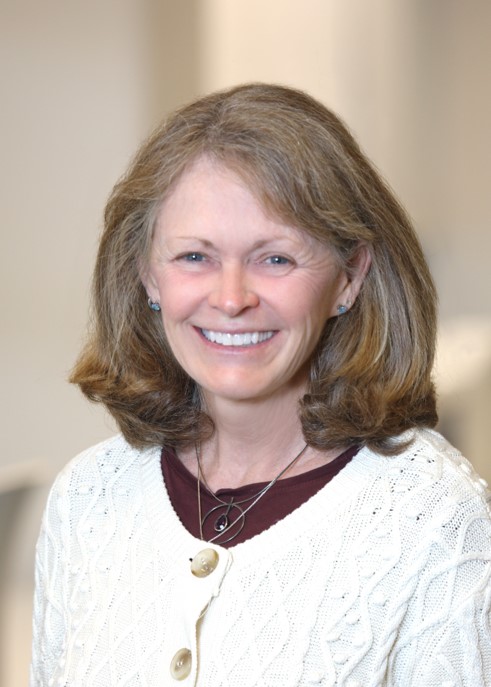
Linda Porter, PhD
Director
Office of Pain Policy and Planning
National Institutes of Health
Dr. Linda Porter is the director of the NIH’s National Institute of Neurological Disorders and Stroke. She coordinates support of trans-NIH pain research and activities through the NIH Pain Consortium and trans-agency pain research through the HHS Interagency Pain Research Coordinating Committee, a federal advisory group. Dr. Porter received a B.Sc. in Physical Therapy from McGill University. Her clinical practice focused on developmental disabilities. She later earned a Ph.D. in Neuroanatomy from Boston University School of Medicine. She was on the faculty of the Uniformed Services University of the Health Sciences (USUHS) for 15 years before joining the NINDS. During those years she directed a NIH funded research program aimed at elucidating mechanisms of sensory-motor integration at the cortical level and studied the effects of various neuromodulators on developing cortical neurons and their neuroprotective influence over neurons in the mature cortex. She taught in the Graduate Neuroscience Program and the School of Medicine at USUHS.
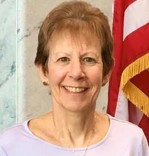
Cindy Steinberg
Director of Policy and Advocacy
U.S. Pain Foundation
Cindy Steinberg is the Director of Policy and Advocacy for the U.S. Pain Foundation and Policy Council Chair for the Massachusetts Pain Initiative. She is a nationally prominent and articulate spokesperson for the needs of people living with pain. She has been interviewed in print and on radio, television and internet sites including NPR’s All Things Considered and Marketplace, The New York Times, The Boston Globe and numerous local TV and radio affiliates. Ms. Steinberg has won numerous awards for her pain policy accomplishments. Her dedication to pain advocacy was sparked when she sustained a severe crush injury that left her with daily back pain. In 2015, she was appointed by Massachusetts Governor Charlie Baker to serve on his Opioid Working Group and subsequently as a Commissioner on the Massachusetts Drug Formulary Commission. At the federal level, she has served on the Interagency Pain Research Coordinating Committee (IPRCC), a high-ranking pain policy oversight committee managed by the National Institutes of Health. In 2018, Ms. the Secretary of HHS to serve on the Pain Management Best Practices Inter-Agency Task Force created by Congress and was the only patient and pain advocate appointed to the panel. In February of 2019, Ms. Steinberg was invited to testify before the US Senate Health, Education, Labor, and Pensions (HELP) Committee at a hearing on “Managing Pain During the Opioid Crisis”.

Jan Losby
Branch Chief
Division of Overdose Prevention
Centers for Disease Control and Prevention
Dr. Jan Losby is the Branch Chief for the Health Systems and Research Branch in CDC’s Division of Overdose Prevention. Dr. Losby conducts applied health systems research, implements evidence-based prevention efforts, and supports state and community public health efforts to reduce overdose and related harms. Dr. Losby is responsible for advancing the implementation of CDC’s 2022 Clinical Practice Guideline for Prescribing Opioids for Pain. Dr. Losby works with healthcare systems on linkage to care, quality improvement, electronic clinical decision support tools, and data system integration with electronic health records.
 May 2, 2023 15:00
May 2, 2023 15:00During the fall of 2022, OBRHI developed a set of survey questions to obtain data related to burden and provider experiences, including variations in care delivery experiences of rural vs. non-rural providers, and providers of historically underserved populations , including challenges pertaining to the use of telehealth as a care delivery service and patient risks and needs related to social determinants of health. Survey topics included: 1) screening for and addressing patients’ social needs and risks; 2) patient challenges using video-enabled telehealth; 3) factors impacting time spent with patients; and 4) scope of practice flexibilities established during the COVID-19 public health emergency. The survey was distributed nationally to providers who practice in office-based settings and serve Medicare/Medicaid beneficiaries.
This discussion will convey insights from the survey results, including the experiences and perceptions of providers who deliver care to underserved patient communities including individuals that are members of racial and ethnic communities and providers practicing in ZIP Codes with higher poverty levels.

Samantha Richardson (Moderator)
Director
Governance and Impact Analysis
Centers for Medicare & Medicaid Services
Samantha Richardson is the Director of the Governance and Impact Analysis Group in the Office of Burden Reduction & Health Informatics (OBRHI). Ms. Richardson and her team are focused on unifying CMS's efforts to reduce regulatory and administrative burden for beneficiaries and the medical community, therefore enabling the health system to focus on providing higher quality care at lower cost and to fostering innovation in health care delivery.
She is responsible for leading enterprise-wide efforts and supports cross-agency projects to eliminate overly burdensome and unnecessary regulations. Ms. Richardson oversees initiatives to: measure the impact of CMS regulations; innovate tools to reduce redundancy in CMS regulations using AI; create strategic communications opportunities while engaging external stakeholders; additionally, her team develops databases and data analytic protocols to assist internal components as they develop policy.
Ms. Richardson has served in various leadership positions during her time at CMS. She recently served on the Departmental award winning COVID waiver team during the onset of the pandemic. Prior to that role she served as a senior advisor in the CMS Office of the Administrator leading and supporting CMS's burden reduction initiatives under the Patients over Paperwork Initiative. She has also served as a Director within the CMS Center for Program Integrity (CPI), where she led CPI's program risk assessment and strategy development functions. She also served in leadership and management positions in the Center for Clinical Standards and Quality (CCSQ) on National Coverage Determination (NCDs) and the Quality Improvement Organization (QIO) programs.
Before joining CMS, Ms. Richardson was a consultant focused on IT and health policy contracts with CMS and the Food and Drug Administration.

Réna McClain, PharmD
Senior Health Insurance Specialist
Office of Burden Reduction and Health Informatics
Centers for Medicare & Medicaid Services
LCDR Réna McClain obtained her Doctor of Pharmacy degree at the Ernest Mario School of Pharmacy in New Jersey. Following graduation, she completed a one-year managed care residency at the former Medco Health Solutions. She then continued to work for the company in a number of capacities including Clinical Lead for their specialty care pharmacy (Accredo) and later as a Manager working with their Medicare Part D offering.
Her career with the federal government has spanned 10 years, most of this time with CMS. In her current role, she is a Senior Health Insurance Specialist within the Governance and Impact Analysis Group within the Office of Burden Reduction and Health Informatics (OBRHI). Her work focuses on burden reduction and health equity. As the lead on a number of surveys, her goal is to ensure that stakeholder voices are heard to ensure equity.
 May 2, 2023 15:00
May 2, 2023 15:00This session will showcase three examples of quality improvement in oral health integration. Research using the Minimum Data Set 3.0 Resident Assessment Instrument can be used to identify oral health problems and malnutrition among Medicare beneficiaries residing in Nursing Homes.
Track: Health centers are improving outcomes for patients with diabetes by using a shared measurement system for their collaborative. An Integrated Dental Hygiene Program for expecting mothers led to early intervention, medical-dental integration, and continuity of care. Results from their 4-month study will be shared.

Natalia Chalmers DDS, MHSc, PhD
Chief Dental Officer
Office of the AdministratorCenters for Medicare & Medicaid Services
Dr. Natalia Chalmers is CMS' first Chief Dental Officer in the Office of the Administrator. She is a board-certified pediatric dentist, oral health policy expert, and public health advocate who brings more than 20 years of clinical, research, industry, and regulatory experience to CMS. Previously, Dr. Chalmers served as a Dental Officer at the FDA. Dr. Chalmers has devoted her career to transforming scientific and healthcare data and information into actionable insights to address equity, improve care, and inform policy and funding better. Dr. Chalmers completed her Doctor of Dental Surgery degree at the Faculty of Dental Medicine of the Medical University of Sofia, a residency in pediatric dentistry at the University of Maryland School of Dentistry, and a Ph.D. in oral microbiology from the Graduate Partnerships Program of the University of Maryland School of Dentistry and the NIDCR/NIH, Post-doctoral Fellowship at the Forsyth Institute, and Clinical Research Fellowship at the NIDCR/NIH. In addition, Dr. Chalmers holds a Master’s degree in Clinical Research from Duke Medical University and a Certificate in Drug Development and Regulatory Science from the UCSF School of Pharmacy.

Dr. Steffany Chamut, DDS, MPH, FICD
Instructor in Oral Health Policy and Epidemiology
Harvard School of Dental Medicine
Dr. Steffany Chamut is a full-time Instructor at Harvard School of Dental Medicine (HSDM) in the Department of Oral Health Policy and Epidemiology, the Office of Global and Community Health, and 2022 Health and Aging Policy Fellow (HAPF) in the American Political Science Association (APSA) Congressional Program. As part of her HAPF fellowship placement, she is working with the Centers for Medicare & Medicaid Services (CMS)-Office of the Administrator supporting oral health initiatives and policy development focused on skilled nursing facilities. At HSDM, she engages in diverse programmatic efforts across the school and the healthcare profession ranging from dental, public health education, workforce development, and clinical training at pre-and post-doctoral levels, and oral health integration initiatives. She is the curricular evaluation lead at the HRSA-funded National Center for Equitable Care for Elders (NCECE) that provides training and technical assistance aimed at improving the care for older adults, and Co-PI of the “Catalyzing Oral Health Workforce for Rural and Vulnerable Populations” training program that created the first and only DPH Residency in the country with a dedicated rural track. Dr. Chamut was selected by the National Institute on Aging (NIH/NIA) as a 2022 Butler-Williams Scholar and by the Office of Small Business Research (OSBR) as a finalist for the Healthy Aging start-up Challenge for the development of innovative science-driven technology. She is a Human Resources for Health (HRH) Faculty at the University of Rwanda, School of Dentistry (first Bachelors of Dental Surgery program in the country), and visiting lecturer at the University of West Indies, Mona School of Dentistry, Kingston, Jamaica.

Colleen Lampron, MPH
Collaborative Director
National Network for Oral Health Access
Colleen Lampron is the President of AFL Enterprises, LLC a small public health consulting and government contracting business. Her work is focused on closing the gap between what we know and what we do so that people can live full, healthy, joyful lives. Accomplishments in quality improvement include:
Serving as the National Network for Oral Health Access Quality Improvement and Innovation Consultant where FQHCs:
Colleen also led the San Francisco Department of Public Health Dental Transformation Initiative Local Dental Pilot Project which brought federally qualified health centers and private practices together to improve the dental delivery system for children 0-5.
A graduate of the Institute for Healthcare Improvement Breakthrough Series College and Quality Improvement Coach certification, she has a Master’s degree in Public Health from the Johns Hopkins University School of Hygiene and Public Health and a Bachelor of Science in Public Health from West Chester University. Colleen applies her public health education with her quality improvement expertise to improve health and healthcare nationwide.

Monica McKee, MPH, RDH
Vice President
Ancillary Clinical Services
Oklahoma City Indian Clinic
Monica McKee is the Vice President of Ancillary Clinical Services at the Oklahoma City Indian Clinic, the nation's largest Urban Indian health care facility, where she has worked for nearly 16 years. Monica has administrative oversight of numerous departments at OKCIC, including Dental, Optometry, Lab, Radiology, Behavioral Health, Patient Advocacy and Physical Therapy. In her role, McKee is responsible for maintaining quality of care standards and reliable access to care for more than 23,000 American Indians who call the Oklahoma City Indian Clinic their medical home. Monica received her Bachelors of Science-Dental Hygiene and Master's in Health Care Administration and Policy degrees from the University of Oklahoma Health Science Center. Monica currently serves as the Chair of Maternal and Child Health for the March of Dimes Board of Directors. She also serves on the Strategic Planning Committee of the Native Oral Health Network, and the Oral Health Progress and Equity Network. Monica is married to her husband of 12 years, has two boys that require her to live at the baseball fields, and although she's a two-time OU grad, she's a proud Arkansas Razorback at heart.
 May 2, 2023 15:00
May 2, 2023 15:00The presentation will describe how two healthcare organizations used CLAS Standards to provide high quality care.
The Johns Hopkins Medicine Office of Diversity, Inclusion, and Health Equity; Language Services; and academic–community partnerships operationalized to develop a health equity focus based upon the three domains of the National Culturally and Linguistically Appropriate Services (CLAS) Standards in Health and Health Care (National CLAS Standards) to support the organization’s COVID-19 response and to provide a framework of health equity initiatives for other academic medical centers.
ChenMed, a value-based care health care organization, operates more than 120 centers in 15 states, where primary care physicians are transforming care of the neediest populations. Including reducing in-patient hospitalizations by 30 to 50 percent, and shrinking ER visits by as much as 75 percent.
This presentation will describe how strategic physician recruitment, career development and robust operational support solutions, reduce physician burnout, and help medical practices on the pathway to full-risk.

Cheri C. Wilson, MA, MHS, CPHQ
Program Director
Diversity, Inclusion, and Health Equity
Johns Hopkins Health System
Cheri C. Wilson received a BA in Russian from Howard University, an MA in Russian Area Studies from the University of Minnesota, was a PhD candidate (ABD) in Russian history at the University of Minnesota and received an MHS in Health Finance and Management from the Johns Hopkins Bloomberg School of Public Health. She is multilingual—fluent in Russian, speaks French and Spanish with a reading knowledge of German. Ms. Wilson is a nationally recognized diversity and inclusion, cultural and linguistic competence, and health equity subject matter expert. She currently serves as Program Director for Diversity, Inclusion, and Health Equity in the Johns Hopkins Medicine Office of Diversity, Inclusion, and Health Equity (JHM ODIHE). Previously, she served as the Program Manager for Education, Training, and Scholarship in the JHM ODIHE, was a Senior Research Scientist in the Health Determinants & Disparities Practice at General Dynamics Information Technology, the Director, Corporate Office of Diversity & Inclusion at RWJ Barnabas Health in New Jersey, an Assistant Scientist in the Johns Hopkins Center for Health Disparities Solutions (Johns Hopkins Bloomberg School of Public Health), and an Acting Assistant Director of the Quality Improvement Department at The Johns Hopkins Hospital. Ms. Wilson is a Certified Professional in Healthcare Quality (CPHQ), a Past President of the Maryland Association for Healthcare Quality, and a Lean Six Sigma Green Belt. She is particularly interested in health and healthcare disparities and health equity as they relate to racial/ethnic, language, and gender and sexual minorities and the provision of culturally and linguistically appropriate patient-centered care in language understandable to all patients.

Dr. Alexandria Beranger
National Director
Quality & Patient Experience
ChenMed
A distinguished and compassionate clinician, Alexandria Beranger, MD, is Board-certified in Internal Medicine and serves as National Director of Quality and Patient Experience at ChenMed, one of the country’s leading primary care providers for seniors.
 May 2, 2023 15:00
May 2, 2023 15:00Impacting opioid overdoses in Indian Country requires collaboration on harm reduction education, data, resources and interventions. Under the CMS American Indian Alaska Native Healthcare Quality Improvement (AIHQI) Task Order, the Partnership to Advance Tribal Health (PATH) aligns Indian Health Service (IHS) strategic priorities and CMS contract goals to drive improvement in patient care.
Collaborating with the IHS National Committee on Heroin Opioids and Pain Efforts (HOPE Committee) has proven invaluable in guiding PATH’s opioid work. HOPE is comprised of dedicated IHS health professionals, like physicians, pharmacists, rehabilitation professionals, behavioral health providers, nurses, and engineers serving tribal communities across the nation. They work to promote appropriate and effective pain management, reduce overdose deaths from heroin and prescription opioid misuse and improve access to culturally appropriate treatment. With a shared goal of decreasing the harm caused by opioids on tribal communities, PATH and HOPE developed a workplan for multi-disciplinary and innovative approaches on opioid stewardship, screening strategies and harm reduction efforts.
The teams co-created materials for an IHS opioid dashboard, training videos, an opioid stewardship template, as well as offered opioid dashboard office hours and educational events on substance use screening. HOPE provides insights and guidance on PATH materials and contract work, while PATH offers creative, administrative, and logistical support for HOPE. By aligning with and amplifying the work of an existing IHS team, PATH efforts for harm reduction in Indian Country are more meaningful, more impactful and more sustainable.

Marilyn Reirson, MS
Program Director
Partnership to Advance Tribal Health
Ms. Reierson is the program director for the Partnership to Advance Tribal Health. In this role she provides oversight and coordination of planned activities of the PATH team. She works closely with PATH team members to engage healthcare professionals in practice transformation efforts. She also leads the PATH Behavioral Health team. Ms. Reierson works with national stakeholders and partners to align efforts and to spread successful strategies, tools, and best practices. Ms. Reierson has more than 25 years of experience in healthcare quality improvement across the care continuum, with recent training in agile implementation, and seven years of experience working with Indian Health Service and Tribal communities. Ms. Reierson is a Certified Just Culture Champion and a TeamSTEPPS Master Trainer.

CAPT Cynthia Gunderson, PharmD
Chair
National Committee on Heroin, Opioids, and Pain Efforts
Indian Health Service
CAPT Cynthia (Cindy) Gunderson is a United States Public Health Service Pharmacist with the Indian Health Service (IHS). She is a 2004 graduate of the University of Nebraska Medical Center College of Pharmacy. CAPT Gunderson serves as the Chair of the IHS National Committee on Heroin, Opioids, and Pain Efforts (HOPE) and Director of Revenue Enhancement for the Bemidji Area. In these dual roles, CAPT Gunderson leads diverse, interdisciplinary teams to identify opportunities for improvement, to engage key stakeholders, and to achieve success. CAPT Gunderson provides direction and supports IHS efforts to promote appropriate and effective pain management, to reduce overdose deaths, and to improve access to culturally appropriate treatment. She has a demonstrated passion for working with tribal communities to augment local responses to the opioid crisis and has led local initiatives to expand access to naloxone for opioid overdose reversal, improve maternal-child-health outcomes, and support innovative solutions to complex challenges.

Jane Brock, MD, MPH
Clinical Director
Partnership to Advance Tribal Health
Dr. Brock is a medical director at Telligen. She currently serves PATH’s Clinical Director and as a subject matter expert for the Data Validation and Administrative Contractor (DVAC), supporting CMS’ Network of Quality Improvement and Innovation Contractors (NQIIC). Her work involves: establishing collaborative and enduring relationships with key national partners dedicated to improving healthcare quality; advising the national analytic team on measures for assessing NQIIC’s progress on CMS priority quality improvement (QI) goals; establishing progress and outcomes metrics; providing clinical insight, leadership, and facilitation support to teams as they work on QI priorities; and applying principles of implementation science to ongoing QI efforts. Dr. Brock has extensive experience in producing results with clinicians in the IHS hospital setting.
 May 2, 2023 15:00
May 2, 2023 15:00Patients and family members who have experienced unsafe care are now activated in calling for a reprioritization of Patient Safety as a top policy concern. Failures in responsible reporting, accountability, transparency, and patient/family engagement still occur more than 20 years after the To Err is Human call to action. In 2021 a National Academy of Sciences report observed that progress in patient safety was at a “standstill” in the United States and that continuing in the current trajectory would not produce better results.
Covid-19 underscored the gaps in patient safety, health equity and health system resilience overall. Concerned that patient safety has drifted off the national agenda for many organizations and government agencies, a group of patient advocates came together to form Patients for Patient Safety US (PFPS US), a branch of the World Health Organization network of patients, family members, healthcare professionals and policymakers passionate about achieving safe healthcare across the globe. As an advocacy group, we have engaged interested government agencies, healthcare systems and community partners to collaborate in raising patient safety and health equity to the national, state and local level again as top health policy priorities.
In this session, founders of PFPS US will present an agenda of actionable interventions to drive transparency, accountability and oversight, and patient and family engagement as patient safety and health equity improvement change engines.

Dr. Michelle Schreiber, MD
Deputy Director
Center for Clinical Standards and Quality
Centers for Medicare & Medicaid Services
Dr. Schreiber is currently the Deputy Director of the Center for Clinical Standards and Quality at CMS, and the Director of the Quality Measurement and Value-Based Incentives Group. Dr. Schreiber is a general internal medicine physician with over 25 years of health care experience. Prior to coming to CMS, she was the Senior Vice President and Chief Quality Officer of Henry Ford Health System (HFHS) in Detroit, Michigan. Earlier roles at HFHS included the Division Head of General Internal Medicine, and the SVP of Clinical Transformation and IT Integration, where she was the clinical lead of the systemwide Epic implementation. The Epic implementation and use earned HFHS a Davies Award in 2018. She has also held senior leadership roles at the Detroit Medical Center, where she was the Chief Quality Officer, and with Trinity Health System where she was the national system Chief Medical Officer and acting interim Chief Medical Information Officer.
While at CMS Dr. Schreiber has led many quality initiatives, including MIPS transformation to value pathways, the modernization of the Hospital Stars program, as well as advancing digital quality measurement systems. She is on the boards of ACCME (continuing medical education), Leapfrog, and a member of HITACH (the national health information advisory committee) among others. Prior to joining CMS, she also participated in numerous state and national quality committees including the Board of Directors for the Michigan Hospital Association Keystone Center and the Patient Safety Organization, the Board of Directors of MPRO (Michigan Peer Review Organization – the Michigan QIO), the National Quality Forum Patient Safety Metrics Committee, and the National Quality Partners.

Carole Hemmelgran, MS
Founding Member
Patients for Patient Safety US
Carole Hemmelgarn, MS, MS, graduated from Colorado State University with a degree in Speech Communication. She received a master’s degree in Patient Safety Leadership from the University of Illinois at Chicago, and a second master’s degree in Health Care Ethics from Creighton University.
Ms. Hemmelgarn has worked in healthcare for over 30 years. She was an adjunct professor at the University of Illinois Chicago for ten years teaching in their mater’s program for patient safety. Currently, Ms. Hemmelgarn is the Senior Director Education for the MedStar Institute for Quality & Safety. She is also the Director for the Executive Master’s program for Clinical Quality, Safety & Leadership at Georgetown University.
Ms. Hemmelgarn is involved in patient safety work across the country. She sits on the Leapfrog Patient & Family Caregiver Expert Panel, Board of Quality, Safety and Experience at Children’s Hospital Colorado, Pediatric Sepsis Outcomes Collaborative at Children’s Hospital Colorado, Clinical Excellence Council for Colorado Hospital Association, and the Board of Directors for the Collaborative for Accountability and Improvement.
Her passion resides in transparency and communication after medical errors, health care communication, the power of storytelling in health care, and the aftermath endured by providers, patients, and families when medical harm transpires.
Ms. Hemmelgarn was driven to the field of patient safety after she lost her nine-year-old daughter, Alyssa, to multiple medical errors.

Martin Hatlie, JD
Founding Member
Patients for Patient Safety US
Marty Hatlie, JD is a patient safety advocate with a strong interest in the roles patients and family members play as co-creators of patient safety solutions. In 2021 he co-founded Patients for Patient Safety US, a US branch of the World Health Organization’s Patients for Patient Safety network. PFPS US is a network of Patient Safety Champions that advocates for implementation of the WHO Global Patient Safety Action Plan in the US. He also serves as President & CEO for Project Patient Care, a non-profit organization based in Chicago that is dedicated to using the voice of the patient to improve care. He also is a principal of the Healthcare Patient Partnership Institute, which works with hospitals and health systems to engage patients as advisors in patient safety improvement work.
Drawing on experience as a civil rights attorney, malpractice defense litigator, lobbyist and coalition builder, Mr. Hatlie is active in both public and organizational policy development on patient safety, litigation reform and patient safety issues. He works extensively with consumers and organizations to foster the cultural paradigm shift necessary to support a patient-centered, systems-based approach to the delivery of healthcare services. Mr. Hatlie has served on leadership teams as a consultant on multiple research projects and transformation initiatives funded by the Centers for Medicare and Medicaid Services, Agency for Healthcare Research and Quality and Patient Centered Outcomes Research Institute.
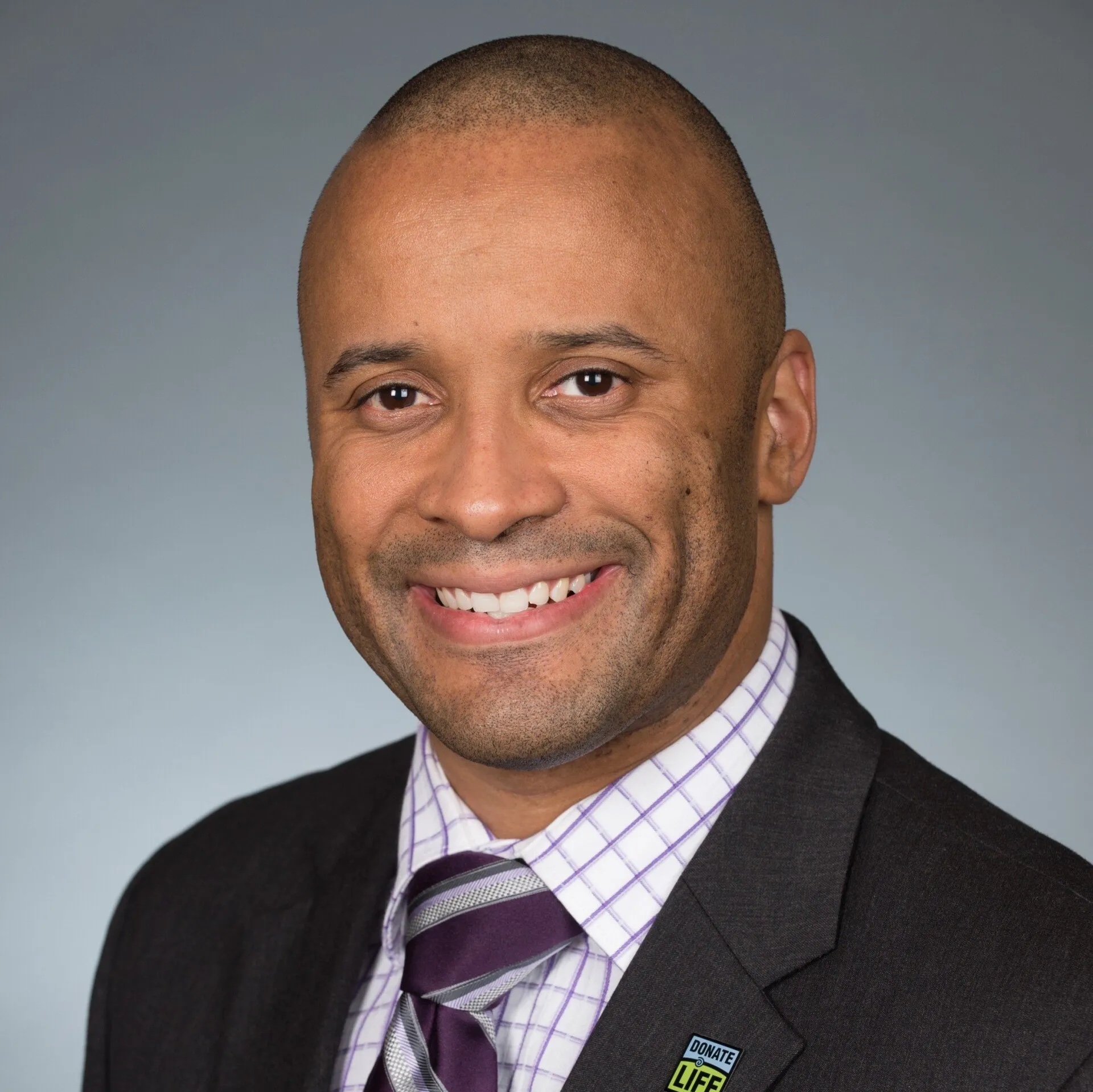
COL Steven Coffee, MA
Founding Member
Patients for Patient Safety US
Col Steven L. Coffee is a career military officer in the U.S. Air Force. His staff assignments include three Combatant Command tours, two National Security Agency/Central Security Service tours, the Joint Staff, and Headquarters Air Force. He commanded the Force Support Squadron at the National Reconnaissance Office.
Colonel Coffee earned a Bachelor of Arts in Political Science from Morehouse College, a Master of Arts in Legislative Affairs from George Washington University, a Masters in Clinical Quality, Safety and Leadership from Georgetown University, and a certificate in Diversity and Inclusion from Cornell University. Additionally, he has completed Joint and Combined Warfighting School through the National Defense University, Air Command and Staff College, and Air War College through the Air Force, Air University.
His passion and purpose for improving patient safety was birthed following a delay and ultimately misdiagnosis of a metabolic condition in his newborn son, Steven L. Coffee, Jr., subsequently causing him to receive a liver transplant at eight-weeks old. He is a founding member of the Patients for Patient Safety US chapter of the World Health Organization. Colonel Coffee served as a charter member and first community Chair of the MedStar Georgetown Patient and Family Advisory Council for Quality and Safety and sits on Patient and Family Advisory Councils for the MedStar Health System, the Society to Improve Diagnosis in Medicine, Sentrics E3 and Hope for Henry foundation.
 May 2, 2023 15:00
May 2, 2023 15:00The National Kidney Foundation (NKF) initiated a successful Chronic Kidney Disease (CKD) ECHO in 2019 helping health systems identify at-risk populations for kidney disease and utilizing the ECHO program to deliver pre-emptive prevention education.
Track: The National Kidney Foundation and Comagine Health forged a partnership in 2021 to provide this program within the Network framework as a national outgrowth from the NKF work on CKD. Piloted with Network 16 in 2021-22, it has now expanded to include 4 Networks (NW 2, 5, 11, and 16) with the curriculum which will encompass 2022-2023. The goal of this session is to introduce the initial Network Home Dialysis ECHO to the kidney community.

Stephanie Hutchinson, MBA (Moderator)
Executive Director
ESRD Network 16
Comagine Health
Stephanie Hutchinson, MBA is the Executive Director of the Comagine Health ESRD Network 16, providing strategic oversight for quality improvement work in 240 facilities covering more than 24,695 patients in 5 states (Alaska, Idaho, Montana, Oregon, and Washington). Prior to joining the Network community, she worked for the National Kidney Foundation of Florida as the CEO for 8 ½ years. Ms. Hutchinson has an MBA from Rollins College in Winter Park, Florida, and an undergraduate degree in Health Education from the University of South Florida. She has a personal connection to kidney disease as the daughter of an ESRD patient and caregiver for three years. Ms. Hutchinson joined the Forum’s Board of Directors in July 2014 as a Member-at-Large before being elected Treasurer in January 2016. She is also a member of the National Association of Healthcare Quality.

Jessica Joseph, MBA
Senior Vice President for Scientific Operations
National Kidney Foundation
Jessica Joseph, MBA, currently the Senior Vice President for Scientific Operations, has been with the National Kidney Foundation (NKF) since 2004. She is responsible for the strategic planning, execution and evaluation of the overall business operations and logistics for NKF’s national and local professional education and membership activities. She also oversees NKF’s research grant program, patient programs, meetings, and events, and NKF’s Kidney Disease Outcomes Quality Initiative (KDOQI). Jessica volunteers as a surveyor for the Joint Accreditation for Interprofessional Continuing Education and is a member of the American Society of Association Executives (ASAE). She received a Bachelor of Arts in Psychology and Business from University at Albany – State University of NY and her Master of Business Administration with a specialization in Healthcare Administration from University of Phoenix.

Matthew Rivara, MD
Associate Professor of Medicine
University of Washington
Matthew Rivara, M.D., is a board-certified nephrologist who serves as Associate Professor of Medicine at the University of Washington (UW), Seattle, WA. He is also an investigator at the UW Kidney Research Institute. Dr. Rivara’s model of patient care focuses on working to empower patients and their families to feel that they are the primary drivers of their care and overall health. Dr. Rivara earned his MD from Harvard Medical School, completed a residency in internal medicine at the Massachusetts General Hospital, and a clinical and research fellowship in nephrology at the University of Washington. He is the author of over 40 peer-reviewed articles and textbook chapters on a variety of topics related to kidney disease. His primary areas of research include improving outcomes for patients transitioning to and undergoing dialysis treatment, as well as patient-reported outcomes among patients treated with dialysis. He has served on multiple steering committees for multiple Kidney Health Initiative Projects and is a member of the International Society of Peritoneal Dialysis Education Committee and the American Society of Nephrology Quality Committee. In addition, Dr. Rivara is currently the Faculty Chair for the National Kidney Foundation Home ECHO Program.
 May 2, 2023 15:00
May 2, 2023 15:00This session will explore data visualization tools used by the Center for Medicaid and CHIP Services and state Medicaid and CHIP agencies to understand beneficiary health and drive quality improvement, including data dashboards, run charts, and visual tools for communicating quality information to interested parties. The session will focus particularly on how data visualization is being used to identify health disparities and promote health equity.

Deirdra Stockman, PhD, MUP (Moderator)
Technical Director
Division of Quality & Health Outcomes
Center for Medicaid and CHIP Services
Centers for Medicare & Medicaid Services
Deirdra Stockmann, Ph.D., M.U.P. is the Acting Director of the Division of Quality and Health Outcomes in the Center for Medicaid and CHIP Services at the Centers for Medicare & Medicaid Services (CMS). Since joining CMS in 2012, Deirdra has worked with state Medicaid and CHIP agencies and their partners to improve health outcomes by improving access to and quality of health services for people enrolled in Medicaid and CHIP. Before joining CMS, Deirdra worked on multi-stakeholder collaborations to address social determinants of health and other aspects of community wellbeing. Deirdra holds a Ph.D. and Masters in Urban Planning from the University of Michigan and a Bachelors from the University of Pennsylvania.

Krista Lynch
Analytics, Research, and Measurement Administrator
Washington State Health Care Authority
Krista Lynch leads the Analytics, Research and Measurement (ARM ) team at the Washington State Health Care Authority (HCA). Krista has been with HCA for 8 years. She has worked on various health care analytics projects and is especially interested in reproductive health, women’s health, working with tribes, LGBTQ and health equity. She has her master’s degree in economics from Kansas State University. One of her favorite things to do in Washington is kayak among the seals.

Larry Mull
Associate Director
Business Intelligence Solutions
Division of Health Benefits
North Carolina Department of Health & Human Services
Larry Mull received a BA in Business Management from NC State University and an MBA from Wake Forest University. His work in the private sector comprised product management, business process reengineering, and strategic/operational planning. Larry then worked for Bank of America. In his role as Senior Vice President, Larry led a diverse team in operational and performance reporting for consumer risk operations, identifying KPIs and delivering key metrics and scorecards to senior management. Larry’s ability to communicate business objectives from data to dashboard and his interest in serving his community led him to join NC Medicaid’s Business Intelligence & Analytics Office in 2016.
Larry applies his ability to understand business needs and then leverage data to provide crucial information for decision-making to impact organizational health objectives. As Associate Director of Business Intelligence Solutions, Larry enjoys being able to apply his breadth of experience in different industries in a meaningful, impactful way. His team provides data and dashboards internally throughout the organization, and externally to researchers, vendors, legislators, and the public. Larry and his team have crafted interactive dashboards to help these varied audiences better understand NC Medicaid trends and opportunities in the public health sphere.
When his two kids aren’t keeping him busy, Larry enjoys getting outdoors to run, hike, and golf.
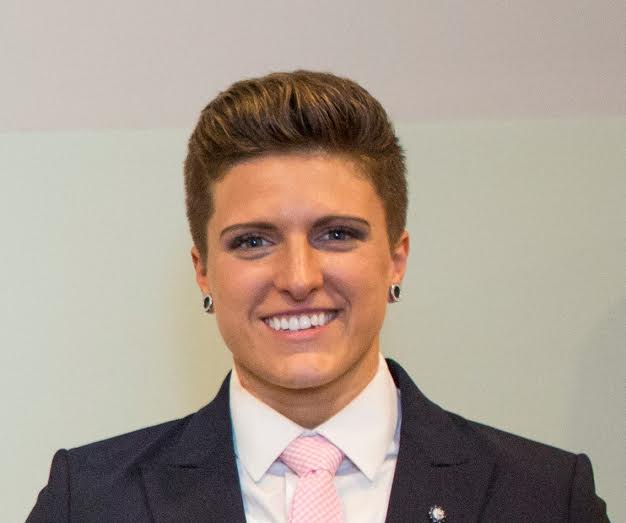
Kimberly Proctor, PhD
Chief Data Officer
Data and Systems Group
Center for Medicaid and CHIP Services
Centers for Medicare & Medicaid Services
Kimberly Proctor, PhD is the Chief Data Officer for the Data & Systems Group in CMCS and leads projects on geocoding Medicaid and CHIP beneficiary addresses, improving the quality of race and ethnicity data in the TAF, integrating enrollment datasets to monitor PHE unwinding, and examining the impact of the COVID-19 PHE on Medicaid and CHIP beneficiaries. Prior to this role, she led TAF development, content review for the Medicaid DQ Atlas, and the development of a series of publicly available data files relating to key Medicaid and CHIP content areas. In her previous work at CMS, she led a research portfolio relating to the quality of administrative data across topics such as race, ethnicity, language, sexual orientation, and gender identity.
 May 2, 2023 15:00
May 2, 2023 15:00The CMS and ONC 2020 interoperability rules created formal processes for advancing standards and implementation by encouraging innovation with data exchange and Fast Healthcare Interoperability Resources (FHIR®) application programming interface (API) technology. Pending progress in interoperability creates an opportunity to move to leverage standardized data, FHIR® solutions, and modernize quality measurement processes.
Along these lines, in 2020, CMS announced a goal of transitioning to full digital quality measurement. This panel will discuss key CMS activities to achieve digital quality measurement, focused on leveraging data standards, and exploring quality measure redesign to leverage advances in technology.

Joel Andress, PhD
Senior Digital Quality Measurement Program Lead
Centers for Medicare & Medicaid Services
Joel Andress, PhD, leads strategic planning projects for digital quality measurement advancement at CMS. Dr. Andress has led development of quality and cost measures over the past 11 years for multiple CMS quality programs, including the End-Stage Renal Disease Quality Incentive Program (ESRD-QIP), the Dialysis Facility Compare Star Ratings, and the Merit-based Incentive Payment System (MIPS).

Bridget Calvert
Senior Digital Quality Measurement Implementation Lead
Centers for Medicare & Medicaid Services
Bridget Calvert is the Senior dQM Implementation Lead in the Division of Quality Measurement at CMS. In this role, she is responsible for overseeing strategy and vision for submissions integrations and authentication services.
Mrs. Calvert has over 15 years of software implementation including training, management, process improvement and project management. Prior to her role at CMS, Mrs. Calvert was a Project Manager at Johns Hopkins Healthcare; most notably focusing on improving health plan operations. Mrs. Calvert is active in her community volunteering for several charitable organizations.
 May 2, 2023 15:00
May 2, 2023 15:00Black women are about 3 to 4 times as likely to die from a pregnancy-related cause compared to white women and more than 80% of these deaths are preventable. This talk will highlight the role of a historically Black medical school in its fight against inequities in severe maternal morbidity and mortality.
The presentation will highlight the work of the Center for Maternal Health Equity at Morehouse School of Medicine (MSM) in pursuing equity through interdisciplinary translational research, inter-professional training, outreach, education, community engagement, policy and advocacy, and respectful health care. The presentation will feature two specific projects from MSM investigators that are addressing maternal health inequities focused on “maternal near misses” and the two pandemics of structural racism and COVID-19 on Black maternal health.

Cheryl Franklin, MD, MPH
Associate Professor
Department of Obstetrics and Gynecology
Morehouse School of Medicine
Executive and Founding Director
Center for Maternal Health Equity
Morehouse School of Medicine
Cheryl G. Franklin, MD, MPH is an Associate Professor of Obstetrics and Gynecology at the Morehouse School of Medicine (MSM) and is a practicing gynecologist with Morehouse Healthcare (MHC). Dr. Franklin seeks to address, through research, advocacy, clinical services, and public policy, some of the nation’s health disparities, especially those which disproportionately affect African American women. Her research interests include Maternal Health Equity; Obesity and Physical Inactivity; Cardiovascular Health for Women; HPV-Mediated Genital tract cancers; Mobile-health Technology and Telemedicine; and Global Health. Dr. Franklin is the immediate past medical director of Morehouse Healthcare and is skilled at coordinating the delivery of multispecialty healthcare services in the 21st century, value-based, healthcare environment.
Dr. Franklin currently serves on the Peach State Health Plan Board of Directors and the March of Dimes’ Atlanta Market Board where she provides input to its Mission Impact Committee. She recently served on the Board of Directors for the Morehouse Choice Accountable Care Organization and Education System (MCACO-ES), a statewide collaboration of community-based healthcare partners that “take responsibility for the cost improvement, efficiency, quality and effectiveness of community and population health.” Cheryl is an alumnus of Stanford University, Columbia University School of Public Health, and Harvard Medical School.

Natalie Hernandez, PhD, MPH
Associate Professor and Executive Director
Morehouse School of Medicine
Dr. Hernandez is an Associate Professor in the Department of Obstetrics and Gynecology and Executive and Founding Director of the Center for Maternal Health Equity at Morehouse School of Medicine (MSM). She has a broad background in community-based participatory research (CBPR), maternal and child health disparities, health policy, and social determinants of health. Dr. Hernandez has more than 16 years of experience in developing partnerships and implementing CBPR that engages with diverse stakeholder groups. Dr. Hernandez is an NIH R01 funded researcher who has obtained diverse extramural funding to develop multiple lines of research to advance science toward the elimination of women’s health inequities. The research approach in these local and nationally funded initiatives takes a multi-sectoral and multi-level translational research approach and explores the integration of technology to advance women’s health. She has continuously served and held leadership positions (vice chair, chair) on multiple organizations focused on maternal morbidity and mortality.
Dr. Hernandez received her Master of Public Health from Emory University and a Bachelor of Arts in anthropology from Stony Brook University. She earned her PhD in public health as well as a graduate certificate in interdisciplinary women’s health from the University of South Florida. Dr. Hernandez was a Health Resources and Services Administration (HRSA) maternal and child health leadership trainee and epidemiology trainee.

Kaitlyn Hernandez-Spalding, MPH
Research Assistant II
Morehouse School of Medicine
Kaitlyn Hernandez-Spalding, MPH is a research assistant II at the Center for Maternal Health Equity at Morehouse School of Medicine. She currently assists with the Maternal Near Miss study and the Prevent Maternal Mortality using Mobile Technology (PM3) study. Kaitlyn is a recent graduate from Tulane University School of Public Health and Tropical Medicine, where she received a Master of Public Health in Community Health Sciences. Kaitlyn also received a Bachelor of Science in Public Health with a concentration in Health Education from the University of Southern Mississippi in 2018.
 May 2, 2023 15:00
May 2, 2023 15:00In this session, two CMS QIN-QIOs will present on nursing home patient safety quality improvement interventions using data and innovative approaches to identify and track outcomes.Nursing Home Hand Hygiene Electronic Data collection /visualization/analysisA QIN-QIO collaborated with the New Jersey Department of Health (NJDOH) to create and disseminate an automated hand hygiene competency and observation project for nursing homes (NH) in New Jersey.
56 NHs were included in this intervention. The goal was to use an automated process to assess hand hygiene adherence, utilizing real-time data for education and reporting. NH teams used REDCap to collect data electronically on cell phones, tablets, or iPads to decrease paper data collection. Utilizing Tableau for data visualization provided a "real-time" dashboard and access to customized reports. NH teams have access to their data and can filter by competency, observation, type of staff, unit, shift, quarter, and bed size and compare data to other participating NHs using a facility identifier for confidentiality.
Hand hygiene observations were correctly completed for up to 86 % of observed instances and incorrectly completed for up to 5% of observed instances. Reducing Sepsis-Related Hospital Readmissions and Emergency Department Visits through a Fast-Track Educational Sprint Series:In late spring 2022, QIN-QIO nursing home quality improvement advisors identified that hospital readmissions and emergency department (ED) visits were high across the entire service area. Through further analysis of Part-A claims, the QIN-QIO team identified sepsis as the number one diagnosis for readmissions and ED visits across the four state service area.
In response, the team launched a “Sepsis Sprint Series” learning and action event in June 2022. This weekly series offered practical recognition tools and best practices or “how to’s” enabling nursing home participants to immediately share and implement what they learned to reduce readmissions and ED visits due to sepsis.
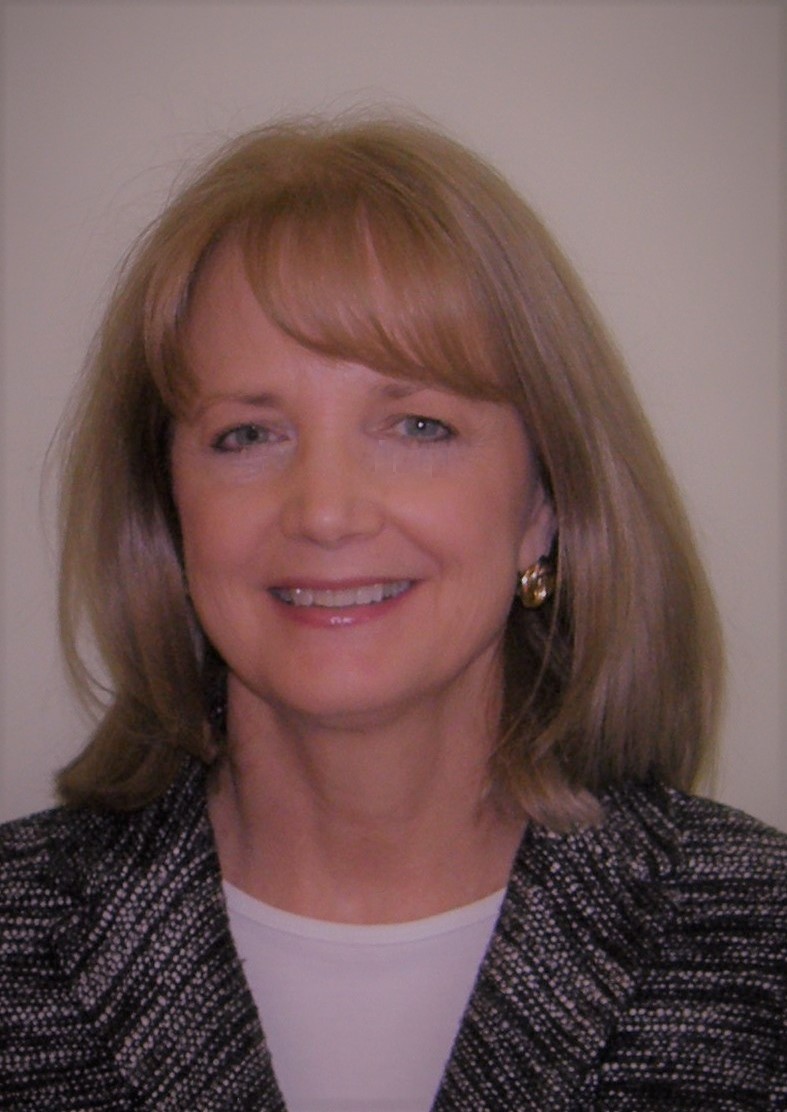
Mary Ford, RN, MPH
Division of Community and Population Health Quality
Improvement and Innovation Group
Center of Medicare & Medicaid Services
Ms. Ford joined CMS in 2008 and is a QIN-QIO COR in the Department of Community and Population Health (DCPH) in iQIIG. She is also the DCPH Nursing Home Patient Safety SME. Ms. Ford is a Registered Nurse with a Masters of Public Health. Prior to working at CMS, she worked as a clinical nurse in acute care hospitals and had multiple positions for a health insurance plan including Nurse Case Manager, Manager of Medicare Product Development, and Director of Provider Relations.
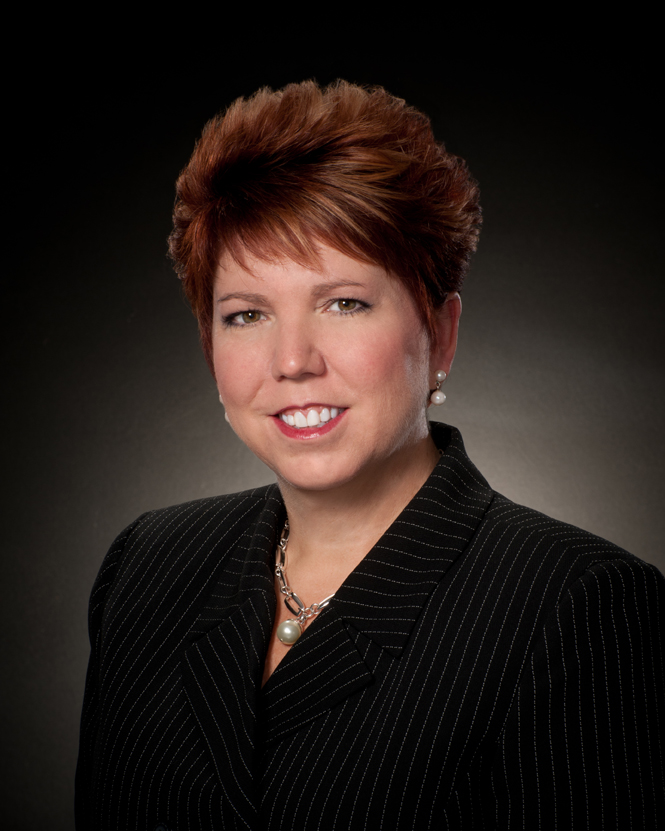
Sheila McLean, MBA, LNHA, CPHQ
Senior Consulting Manager
Vice President
Health Quality Innovators
Sheila McLean, MBA, LNHA, CPHQ, is a senior consultant manager/vice president at Health Quality Innovators (HQI), the QIN-QIO for Kansas, Missouri, South Carolina and Virginia. A senior professional with more than 25 years of experience in nursing home administration and quality management, she understands strategic planning and knows the importance of process redesign to effectively meet performance and quality improvement goals. In her role with HQI she is responsible for driving multiple quality improvement initiatives across various healthcare settings.
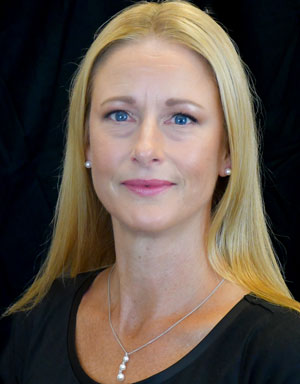
Allison Spangler, BSN, RN, RAC-CT, QCP
Consulting Manager
Health Quality Innovators
Allison Spangler, BSN, RN, RAC-CT, QCP is a consulting manager at Health Quality Innovators with over 15 years of nursing home quality improvement experience. She is a seasoned certified resident assessment coordinator and Quality Assurance/Performance Improvement (QAPI) certified professional. In her role at HQI, Ms. Spangler provides technical assistance to conduct root cause analysis, develop action plans, and follow-up to ensure progress and sustainability. She has helped nursing home facilities improve their regulatory compliance, quality measure performance, and reimbursement through accurate MDS coding while also maximizing opportunities for rapid cycle quality measure improvement (QMI).
Ms. Spangler holds a bachelor’s degree in nursing from the University of Virginia.
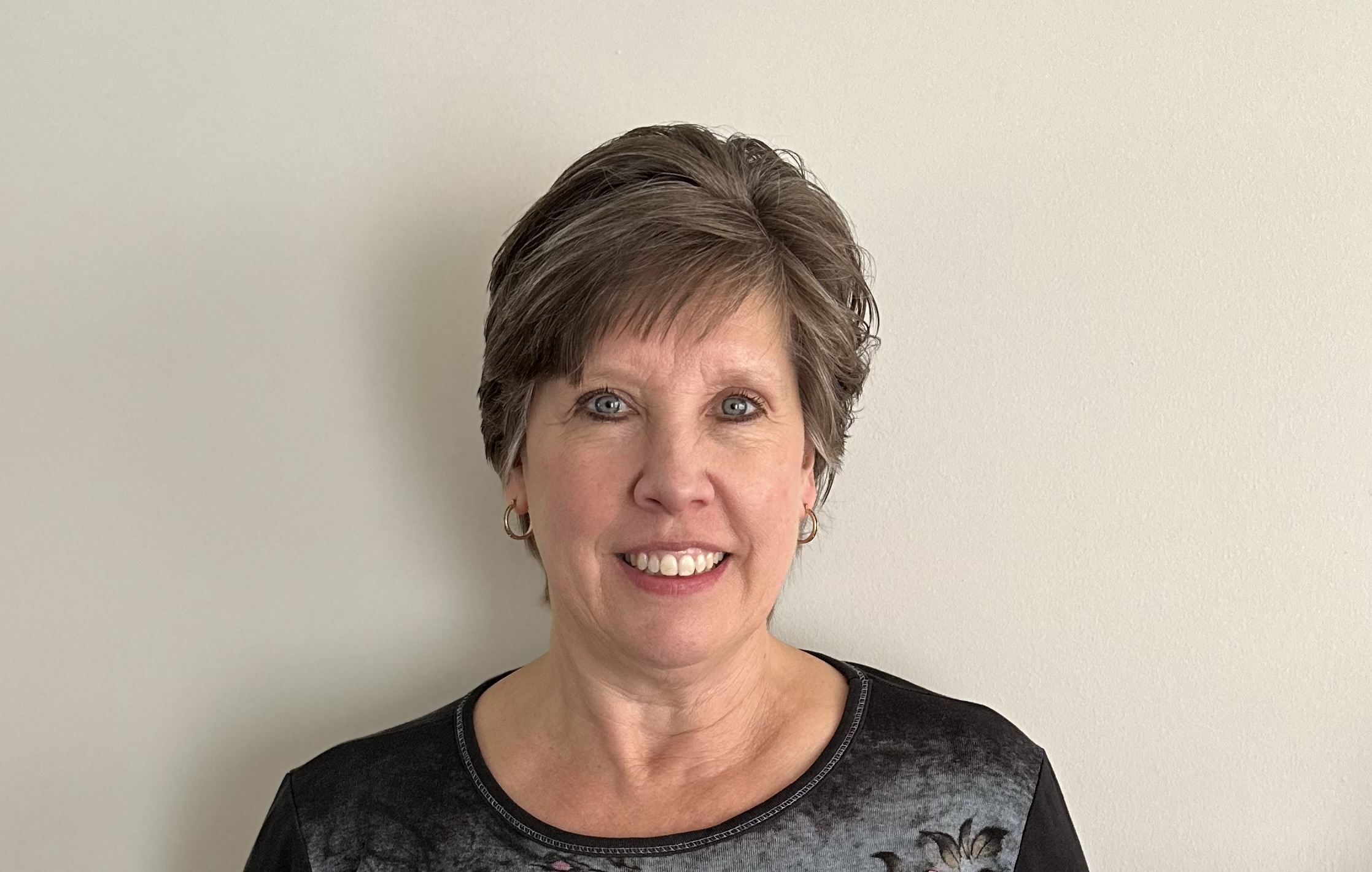
Teresa Lubowski, Pharm. D., B.S., CPHQ,
Director Drug Safety
IPRO
Teresa Lubowski completed a B.S degree in Pharmacy at the Albany College of Pharmacy, a Pharm D. degree at the University of New York at Buffalo and a 2-year research/antibiotic stewardship fellowship in infectious diseases at the Hartford Hospital in Connecticut. She has professional pharmacy experience including institutional antibiotic stewardship practice in multiple states, quality improvement, antibiotic stewardship experience in the outpatient setting, field and headquarters experience in the pharmaceutical industry and teaching, administration and research experience in academia. Currently, Dr. Lubowski is the Lead for the HQIC Antibiotic Stewardship Work Group, Director Quality Improvement and Medication Safety and Co Lead for the CMS Quality Improvement initiative for IPRO. She has been working in Quality improvement for the past 6.5 years.
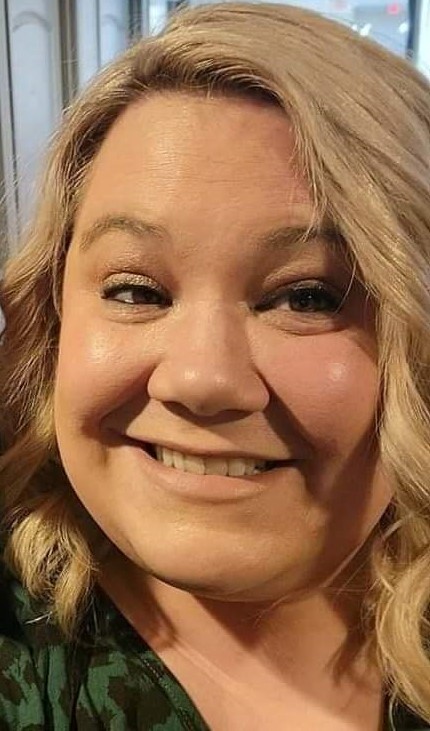
Valerie Reger, LPN
Quality Assurance Technician
New Jersey Department of Health
Valerie Reger is a Public Heath Representative 2 on the Infection Control Assessment and Response (ICAR) Team at the New Jersey Department of Health. Valerie is a Licensed Practical Nurse since 2007, with the state of New Jersey. She has worked in Acute Psychiatric, Long-term care and Subacute facilities. Valerie has also worked as a Human Resources Director for 5 years. Her role on the ICAR Team is to help assist facilities with Infection Prevention.
 May 2, 2023 16:00
May 2, 2023 16:00Join Dr. Lee Fleisher, Jon Blum and Stacey Chang for an intimate conversation about design thinking and its linkage to resilience. Stacey Chang serves as the executive director of the Design Institute for Health at the University of Texas at Austin. It is a first-of-its-kind institution, dedicated to applying design approaches to solving systemic health care challenges as an integrated part of both an operating health system, and a medical education and training program. Working with invested stakeholders in the health ecosystem, and harnessing the resources of the university, the Institute is focused on creating human-centered solutions in clinical and community environments—all with the intent to improve people’s health outcomes and health care experiences.

Dr. Lee A Fleisher, MD
Chief Medical Officer and Director of the Center for
Clinical Standards and Quality Centers for
Medicare & Medicaid Services
Lee A. Fleisher, MD, was named the Chief Medical Officer and Director of the Center for Clinical Standards and Quality for the Centers for Medicare and Medicaid Services in July 2020. In this capacity, he is responsible for executing all national clinical, quality, and safety standards for healthcare facilities and providers, as well as establishing coverage determinations for items and services that improve health outcomes for Medicare beneficiaries. He is also Professor Emeritus and Former Chair of Anesthesiology and Critical Care and Professor of Medicine at the University of Pennsylvania Perelman School of Medicine. From 2004 through July 2020, he was the Robert D. Dripps Professor and Chair of Anesthesiology and Critical Care and Professor of Medicine at the University of Pennsylvania.
Lee received his medical degree from the State University of New York at Stony Brook, from which he received the Distinguished Alumni Award in 2011. His research focuses on perioperative cardiovascular risk assessment and reduction, measurement of quality of care, decision making, implementation of cultural change and health policy. He has received numerous federal, industry and foundation grants related to these subjects and has published 175+ original articles, over 200 editorials, reviews and book chapters, and 9 books and collaborates with anthropologists, sociologists, as well as faculty from law, business and nursing.
He was Treasurer of the Board of Directors and Chair of the Finance Committee of the National Quality Forum. He was a member of the Care Transformation Forum (CTF) of the Health Care Payment Learning and Action Network (LAN) He is currently an Affiliated Faculty of the Quattrone Center for the Fair Administration of Justice and pursuing a Master in Law at the University of Pennsylvania Carey Law School. His is a Senior Fellow of the Leonard Davis Institute of Health Economics. In 2007, he was elected to membership of the National Academy of Medicine (formerly Institute of Medicine) of the National Academy of Sciences and served on Committees of the NAM.
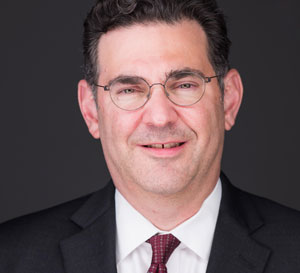
Jonathan "Jon" Blum
Principal Deputy Administrator
and Chief Operating Officer
Centers for Medicare & Medicaid Services
Jonathan (Jon) Blum currently serves as the Principal Deputy Administrator and Chief Operating Officer at the Centers for Medicare & Medicaid Services (CMS). In this dual role, Jon oversees CMS’s program policy planning and implementation and day-to-day operations of the entire agency. CMS’s programs provide health coverage to more than 147 million individuals, spending more than $1 trillion in annual benefits with an annual operating budget of more than $6 billion.
This is Jon’s second time serving in a senior leadership position at CMS. He previously served as the Deputy Administrator and Director of the Center of Medicare from 2009 – 2014, leading the agency’s Medicare payment and delivery reform strategies and the policy and program management of the Medicare program.
Jon has more than 25 years of public- and private-sector experience working in health care policy and administration. In addition to his positions at CMS, he has worked as a strategy and management consultant, an Executive Vice President for Medical Affairs at CareFirst BlueCross BlueShield, professional staff at the Senate Finance Committee, and a program analyst at the Office of Budget and Management.
Prior to joining CMS, Jon served on several nonprofit boards with missions to improve access and equity to health care and health coverage, including Mary's Center, a Federally Qualified Health Center; the Primary Care Coalition of Montgomery County; and the Medicare Rights Center.
Jon earned a Master of Public Policy from the Kennedy School of Government at Harvard University and a Bachelor of Arts from the University of Pennsylvania.

Stacey Chang
Former Founding and Executive Director
Design Institute for Health
University of Texas at Austin
Stacey Chang is a designer of new creative solutions to age-old dilemmas in health. He focuses on building complex adaptive systems that can respond to the dynamic challenge of producing health in human society, and currently advises a broad array of global and domestic organizations seeking to build more sustainable, equitable, and effective models. Most recently, he served as the Chief Product Officer at Harbor Health.
Previously, Stacey served as the Founding and Executive Director of the Design Institute for Health at the University of Texas at Austin. It was a first-of-its-kind institution, dedicated to creating systemic human-centered solutions in clinical and community contexts. Embedded as an integrated part of an operating health system and a medical education and training program, the Institute considered topics as broad as the design of health products and services, the built environment, integration of social and medical interventions, the structure of global health campaigns, and new models for societal health. Before his academic tenure, Stacey served as the Managing Director of the Healthcare practice at IDEO, the global design and innovation firm.
Clients included governments, research institutions, hospitals, pharma, insurance, medtech, and all the upstarts trying to rewrite the script, in both established and emerging markets. Stacey is widely published, including in the New England Journal of Medicine, NEJM Catalyst, Harvard Business Review, and Politico. He has served as a TEDMED Editorial Advisory Board member, a Thought Leader for NEJM Catalyst, an Eisenhower Fellow, and an advisor to the Global Delivery arm of the Bill and Melinda Gates Foundation. He holds degrees in engineering from MIT and Stanford.
 May 2, 2023 16:30
May 2, 2023 16:30
Dr. Lee A Fleisher, MD
Chief Medical Officer and Director of the Center for
Clinical Standards and Quality Centers for
Medicare & Medicaid Services
Lee A. Fleisher, MD, was named the Chief Medical Officer and Director of the Center for Clinical Standards and Quality for the Centers for Medicare and Medicaid Services in July 2020. In this capacity, he is responsible for executing all national clinical, quality, and safety standards for healthcare facilities and providers, as well as establishing coverage determinations for items and services that improve health outcomes for Medicare beneficiaries. He is also Professor Emeritus and Former Chair of Anesthesiology and Critical Care and Professor of Medicine at the University of Pennsylvania Perelman School of Medicine. From 2004 through July 2020, he was the Robert D. Dripps Professor and Chair of Anesthesiology and Critical Care and Professor of Medicine at the University of Pennsylvania.
Lee received his medical degree from the State University of New York at Stony Brook, from which he received the Distinguished Alumni Award in 2011. His research focuses on perioperative cardiovascular risk assessment and reduction, measurement of quality of care, decision making, implementation of cultural change and health policy. He has received numerous federal, industry and foundation grants related to these subjects and has published 175+ original articles, over 200 editorials, reviews and book chapters, and 9 books and collaborates with anthropologists, sociologists, as well as faculty from law, business and nursing.
He was Treasurer of the Board of Directors and Chair of the Finance Committee of the National Quality Forum. He was a member of the Care Transformation Forum (CTF) of the Health Care Payment Learning and Action Network (LAN) He is currently an Affiliated Faculty of the Quattrone Center for the Fair Administration of Justice and pursuing a Master in Law at the University of Pennsylvania Carey Law School. His is a Senior Fellow of the Leonard Davis Institute of Health Economics. In 2007, he was elected to membership of the National Academy of Medicine (formerly Institute of Medicine) of the National Academy of Sciences and served on Committees of the NAM.
 May 3, 2023 12:00
May 3, 2023 12:00
Jean Moody-Williams, RN, MPP
Deputy Center Director
Center for Clinical Standards and Quality
Centers for Medicare & Medicaid Services
Jean D. Moody-Williams, RN, MPP, is the current Deputy Center Director for the Center for Clinical Standards and Quality (CCSQ) at the Centers for Medicare & Medicaid Services (CMS). She has served since 2008 under multiple administrations in the Senior Executive Service (SES) Corp. She currently is a part of a leadership team responsible for one of CMS’ Centers that has nearly 800 employees and a $3 billion annual budget. She is responsible for leading quality improvement, value based purchasing, and delivery system reform. She provides oversight to multiple kidney health activities including regulations for organ procurement and transplantation programs and learning networks, development of conditions of participation for dialysis facilities and healthcare systems, oversight of ESRD Networks for quality improvement and the ESRD Quality Incentive Program. She works to ensure better healthcare, healthier populations and smarter spending of healthcare dollars for more than 90 million Americans.
Jean serves as a guest lecturer for many academic institutions and is a current Faculty Member of the University of Pennsylvania School of Nursing, Doctor of Nursing Practice in Executive Leadership Program.
Prior to joining CMS, Ms. Moody-Williams served as an executive at a number of state and private entities working to improve care for patients and families including, the Maryland Health Care Commission (MHCC), the National Resource Center for Health Policy and Strategies, Quality Improvement Organizations and a health care system in Dallas.
Jean has devoted her entire professional career to improving the care provided to patients and supporting families, leading many of the patient and family engagement efforts at CMS in order to bring the voice of the patient to the forefront of policy and program decisions. She is the author of a textbook for healthcare providers entitled, A Journey towards Patient-Centered Healthcare Quality Patients, Families and Caregivers, Voices of Transformation. She is also the author of the book entitled, Transitions, Trust and Triumph: A Daily Devotion for Caregivers, which provides inspiration, encouragement and resources for those caring for a love one or that recently lost a loved ones.
She is a recipient of the Samuel J. Heyman Service to America Medal awarded by the Partnership for Public Service and was recognized as the Federal Employee of the Year. Ms. Moody-Williams is also the recipient of the 2016 President of the United States Meritorious Rank Award and the 2018 President of the United States Distinguished Service Rank Award. The Presidential awards are one of the highest given to Senior Executives that have demonstrated unparalleled leadership skills and a strong dedication to achieving tangible results. She is also the recipient of the 2020 CMS Executive of the Year awarded by the CMS Administrator for leadership. She received her Bachelors of Science in Nursing from Hampton University and a Masters of Public Policy and Management from the University of Maryland, College Park.
 May 3, 2023 12:05
May 3, 2023 12:05This presentation is specific for infection preventionist to learn and share implementation best practices in nursing home Infection Prevention Control (IPC)

Dr. Nimalie D. Stone, MD, MS
Senior Advisor for Long term Care Partnerships
Division of Healthcare Quality Promotion
Centers for Disease Control and Prevention
Dr. Stone is a Senior Advisor for Long-term Care Partnerships within CDC’s Division of Healthcare Quality Promotion. In this role she works closely with long-term care providers, state and local health departments and other stakeholders to implement infection prevention and control practices and increase quality and safety for residents and staff in long-term care settings. She is a Board-certified infectious disease physician with over 10 years of experience developing guidance, surveillance resources, and programs to track and prevent infections and antibiotic resistant pathogens in post-acute and long-term care settings. Dr. Stone and her colleagues have been leading the development of guidance, education and implementation resources for COVID prevention and response activities in nursing homes and other long-term care facilities.
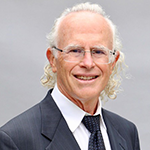
Dr. Michael Wasserman, MD, CMD
Geriatrician Chair
Public Policy Committee
California Association of Long-Term Care Medicine
Dr. Michael Wasserman is a geriatrician who has devoted his career to Serving the needs of older adults. He has been a tireless advocate for vulnerable older adults during the COVID-19 pandemic, with multiple peer reviewed publications and television appearances. He is Chair of the Public Policy Committee for the California Association of Long Term Care Medicine and presently serves on the Infrastructure workgroup for the National Advisory Committee on Seniors and Disasters. He served as a member of the National Academy of Science’s “A Framework for Equitable Allocation of Vaccine for the Novel Coronavirus” Committee and was a member of California’s Community Vaccine Advisory Committee. He is Editor-in-Chief of Springer’s upcoming textbook, Geriatric Medicine: A Person Centered Evidence Based Approach. He previously served as Chief Executive Officer overseeing the largest nursing home chain in California. Prior to that, he was the Executive Director, Care Continuum, for the QIN-QIO for California. In 2001 he co-founded Senior Care of Colorado, which became the largest privately owned primary care geriatrics practice in the country, before selling it in 2010. In the 1990’s he was President and Chief Medical Officer for GeriMed of America, a Geriatric Medical Management Company, and developed GeriMed’s Clinical Glidepaths in conjunction with Drs. Flaherty and Morley of St. Louis University’s School of Medicine Geriatric Division. In 1989, in the Journal of the American Geriatrics Society, Doctor Wasserman published "Fever, White Blood Cells and Differential Count in Diagnosing Bacterial Infection in the Elderly,” the findings of which are now part of the McGeer Criteria, used widely in nursing homes to evaluate residents for infections.

Angela Vassallo, MPH, MS, CIC, FAPIC
Infection Prevention and Epidemiology Expert
Angela Vassallo, LLC
Board member, Association for Professionals in Infection Control and Epidemiology
Angela Vassallo is a nationally recognized expert in Infection Prevention and Epidemiology. Her company, Angela Vassallo, LLC, works in healthcare, schools, corporate offices, nonprofits, and film/tv/media – including BuzzFeed, Huffington Post, Complex, Netflix, The Lincoln Project, 40 Acres and a Mule, and many others.
Angela is certified in Infection Prevention and Control (CIC) and is a Fellow of the Association for Professionals in Infection Control and Epidemiology (FAPIC). She has a Master of Public Health (MPH) from the University of Texas School of Public Health in Houston, a Master of Science (MS) in Healthcare Management from West Coast University in Los Angeles, and a Bachelor of Arts (BA) in International Service from the American University in Washington, DC.
She is on the national Board of Directors of the Association for Professionals in Infection Control and Epidemiology (APIC). Her previous national leadership roles include being Past-Chair of the APIC Communications Committee. In this role, APIC increased their use of social media, created and launched a podcast, and produced numerous infographics. She was the first US Infection Preventionist to use social media to share Infection Prevention messaging and best practice guidance in 2015 during the Ebola pandemic. She is also Past-President of California APIC and Greater Los Angeles APIC.
Angela has worked just about everywhere. Skilled Nursing Facilities. Long-Term Care. Ambulatory Surgery Centers. Acute Care Hospitals. Public Health. Barneys (RIP). She enjoys mentoring future Infection Prevention leaders and helped design the first Infection Prevention Graduate program for Providence University in 2016. Angela was featured in Beckton Dickson's (BD) global antimicrobial resistance fighter campaign and was nominated Healthcare Manager of the Year by the Los Angeles Business Journal in 2014. She speaks French, Spanish, and Italian.

Dr. Swati Gaur, MD, MBA, CMD, AGSF
Chief Medical Officer, Senior Care Office
Medical Director, Post-Acute Care
Northeast Georgia Health System
Swati Gaur, MD MBA, is the Chief Medical Officer for Senior Care Office, and medical director for post-acute care at Northeast Georgia Health System. She is a medical director for Alliant Health Solutions, a CMS Quality Improvement Organization. She is a member of Georgia Strike and Support Team with Georgia Department of Public Health and University of Georgia. She serves on the executive committee on the board of the Society for Post-Acute Long-Term Care Medicine (PALTC).
Dr. Gaur is Clinical Assistant Professor at Augusta University. She is Board certified in Internal Medicine, Geriatrics and Hospice and Palliative Medicine.
She has served as Chair of Infection Advisory Committee in the Society for PALTC and was instrumental in creating COVID-19 Task Force issuing guidance on infection prevention and resident centered care during COVID-19 pandemic. She has nationally and regionally presented on diverse topics related to infections in post-acute care setting.
She is member DEI work group with the Society of PALTC.
She is cochair of public policy committee with Georgia chapter of the Society for PALTC.
She serves on the Health Systems Innovation committee with the American Geriatrics Society.
She has authored several articles related to infection issues- UTI, Immunization, COVID-19, advanced care planning, and culture change in PALTC. She is the Medical Director of the Year 2022-23.
 May 3, 2023 12:35
May 3, 2023 12:35The National Minority Quality Forum (NMQF), in working with the Centers of Disease Control, has created options to continue to build on partnerships and methods created during this pandemic to improve minority health. NMQF is seeking to expand a successful disparities reduction vaccine model established in Baltimore by Dr. Terris King in partnership with the Johns Hopkins International Vaccine Center and Baltimore Cities Health Department. This model improved vaccination rates by 13%. While efforts to address the impact of disparities on vaccination rates in nursing homes is important, this must only serve as an entry point into addressing the broader issue of poor quality that has and will continue to be related to disparities in nursing homes across the country. This workshop will present successful models and allow for the discussion of future approaches to enhancing vaccination rates not only in nursing homes, but across all communities of color.
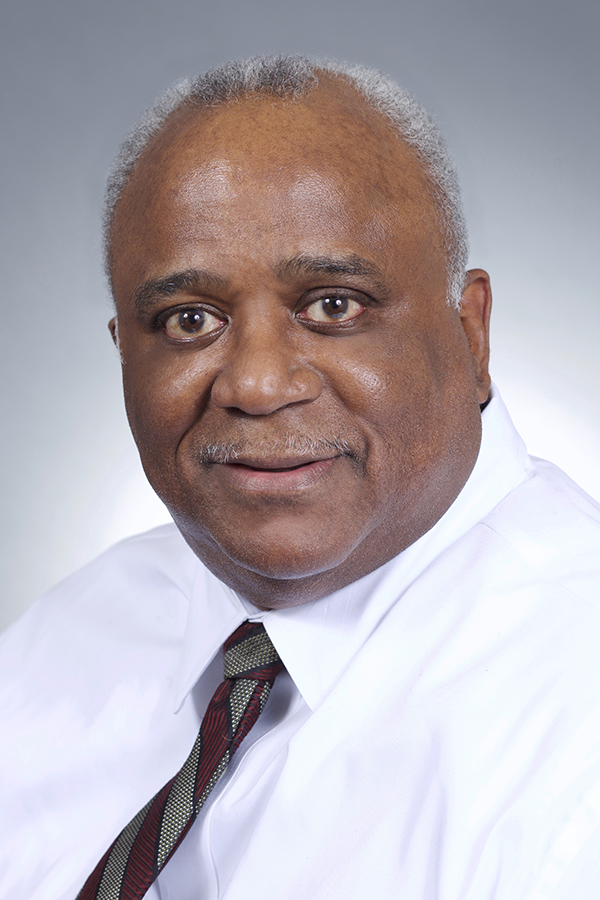
Gary Puckrein, PhD
President and Chief Executive Officer
National Minority Quality Forum
Gary A. Puckrein, PhD, is President and Chief Executive Officer of the National Minority Quality Forum (NMQF)—formerly the National Minority Health Month Foundation—a not-for-profit organization that he founded in 1998. NMQF addresses the critical need for strengthening preventable illness in minority populations through prevention, early detection, and control of disease complications. In April 2001, the National Minority Health Month Foundation launched National Minority Health Month in response to Healthy People 2010, the national health-promotion and disease-prevention initiative.
NMQF has received support from a wide variety of organizations, including federal agencies, pharmaceutical companies, payers, and trade associations. With support from the U.S. Department of Health and Human Services and the Robert Wood Johnson Foundation, NMQF undertook the Zip Code Analysis Project, developing a comprehensive database that links vital statistics and other elements—including demographic, environmental, claims, prescription, laboratory, hospital, and clinic data—in a centralized data warehouse, organized around zip codes. The Zip Code Analysis Project has enabled NMQF to develop the Health Assessment Tool, which measures and forecasts health status in small geographic areas, evaluates the impact of specific interventions, monitors changes in health outcomes, and undertakes risk assessments (health-care utilization and its financial implications). NMQF uses the Health Assessment Tool to stratify communities by geographic and health-status referents and to provide the health-disparities movement with a common set of indicators to measure and report on progress toward the elimination of disparities in health care and health status.
Dr. Puckrein graduated Phi Beta Kappa from Brown University, where he received his master’s degree (1974) and doctorate (1978). Between 1974 and 1992, he taught and lectured at Roger Williams College, Brown University, Connecticut College, and Rutgers University, where he was a tenured member of the faculty. Dr. Puckrein has received many awards and honors, including being named a visiting scholar and fellow at the Smithsonian’s National Museum of American History and a visiting fellow at Princeton University. He was publisher of American Visions, the country’s leading African American art and cultural magazine, which he launched during his tenure at the Smithsonian Institution and Rutgers University. Dr. Puckrein also created and launched Minority Health Today, which served the needs of clinicians practicing in minority communities.

Joe Silva, ScM
PhD student
Brown University
Joe Silva is a doctoral student in Health Services Research with a concentration in infectious diseases at Brown University in the Department of Health Services, Policy, and Practice. His research is focused on studying racial/ethnic geographic disparities in vaccines and infections among older adults receiving institutional post-acute and long-term care in the United States.

Chad Worz, PharmD, BCGP, FASCP
Chief Executive
American Society of Consultant Pharmacists
Chad Worz, PharmD, BCGP, is the chief executive of the American Society of Consultant Pharmacists (ASCP) and a board certified geriatric pharmacist.
The American Society of Consultant Pharmacists (ASCP) is the only international professional society devoted to optimal medication management and improved health outcomes for all older persons. ASCP's senior care consultant pharmacist members manage and improve quality of life of geriatric patients and other individuals residing in a variety of environments, including nursing facilities, sub-acute care and assisted living facilities, psychiatric hospitals, hospice programs, and home and community-based care.
A board-certified geriatric pharmacist and graduate of the University of Cincinnati College of Pharmacy, Worz’s career has focused on the medication management of older adults. Worz developed an innovative clinical practice in a long-term care setting in Ohio and directed the pharmacy practice of a regional, independent pharmacy. Worz went on to establish a nation-wide, geriatric-based pharmacist consulting company to educate and provide medication management services to nursing facility residents, nursing facility administration, long-term care pharmacies, and the public. During the pandemic he helped amplify the role of the pharmacist in testing, treatment, and vaccination, bridging front line pharmacists and government agencies. He presents nationally on medication management.
 May 3, 2023 13:05
May 3, 2023 13:05This session will focus on Emergency Preparedness and Resilience for long-term care including information and resources to help members respond to an emergency in a timely, organized, and effective manner
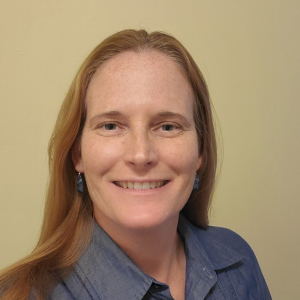
Michelle Veach (Moderator)
Life Safety Engineer
Center for Medicare and Medicaid Services
Michelle Veach is currently the Life Safety Engineer of the Division of Nursing Homes (DNH) for the Quality Safety and Oversight Group (QSOG). Her work has focused on life safety, physical environment and emergency preparedness for Long Term Care (LTC) Facilities. She was involved in the updates to the survey procedures and interpretive guidelines for LTC Facilities located at Appendix I, Survey Procedures for Life Safety Code, Appendix PP, Guidance to Surveyors for Long Term Care Facilities, and Appendix Z, Emergency Preparedness for All Provider and Certified Supplier Types.
Previously, Michelle worked at the Veteran Health Administration in West Haven, CT as a Life Safety Engineer in the Department of Safety. She oversaw new construction and upgrades to the facility to ensure the health and safety of staff and patients. She worked in close coordination with the Engineering Department staff to ensure construction plans and contractors adhered to policies and procedures.
Michelle holds a Bachelor’s degree in Aeronautical Engineer from the United States Military Academy. She holds a Master’s degree in Engineering Management and Aeronautical Science from Missouri Institute of Science and Technology and Embry Riddle Aeronautical University. She continues to serve in the U.S. Army Reserves. She resides in MD with her son.

Elizabeth Sholar, NHZ, MSH
Director of Health Services
Vicar’s Landing
Elizabeth Sholar is the Director of Health Services at Vicar’s Landing, a not-for-profit Life Plan Community in Ponte Vedra, FL. She has worked in the long-term care industry for 25+ years. Her roles have included Social Services, Administrator roles in Home Health, Assisted Living, and Skilled Nursing. Elizabeth received the LeadingAge Florida Executive of the Year Award in 2017. Living in a coastal community such as Florida has reinforced the likelihood of an annual evacuation occurring during hurricane season. The 2022 hurricane season marks the 5th full scale hurricane evacuation of her career. This session will focus on creating a plan for your facility or community and some helpful hints that may make your experience more successful.

Jen Salter, MS, LNHA, CPHRM
Director of Operations
Century Care Management
Jen Salter is a Director of Operations for Century Care Management, a family owned and managed company out of Cary, North Carolina with a portfolio of nine (9) skilled nursing facilities. Jen has served for this organization for fourteen years.
Jen is a proud graduate of The University of Tennessee where she studied Political Science and Forensic Anthropology. With a Masters degree is in Gerontology from UNCW, Jen has been a Licensed Nursing Home Administrator since 2011. In 2019, Jen became a Certified Professional in Healthcare Risk Management (CPHRM) with the American Society for Health Care Risk Management (ASHRM).
Professionally, Jen passionately serves as a selected member on several committees to include American Healthcare Association’s (AHCA) Emergency Preparedness/Life Safety National Committee and North Carolina Health Care Facilities Association’s (NCHCFA) Standards & Ethics Committee. Jen also served as an AHCA Master-level Examiner.
In addition to working full-time, Jen enjoys spending time boating and fishing with her spouse, Jason, a native to the coast of North Carolina – along with their two young children.
 May 3, 2023 13:35
May 3, 2023 13:35 May 3, 2023 13:40
May 3, 2023 13:40Nursing homes are required to develop, implement, and maintain an effective, comprehensive, and data-driven Quality Assurance & Performance Improvement (QAPI) program to improve the quality of life and quality of care delivered to nursing home residents. This session will provide an overview of QAPI, discuss challenges and opportunities in the QAPI process, describe expectations for governing boards, and describe effective program implementation for nursing homes. Attendees will be given access to tools and resources to assist nursing homes in developing an effective QAPI program, which is the foundation of a strong quality improvement program. Nursing homes can use these tools as they problem-solve, address new challenges, and strive to embed sustainable QAPI principles and performance improvement projects (PIPs) into their day-to-day work and culture.
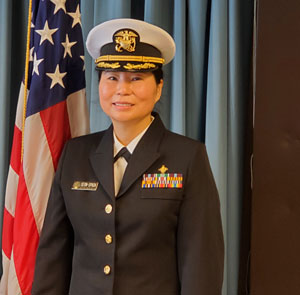
CAPT Hyosim Seon-Spada, DNP, USPHS
Survey, and Long-term Care Branch Manager
Centers for Medicare and Medicaid Services
CAPT Hyosim Seon-Spada has been serving as Survey, Long-term Care Enforcement Branch Manager at the Centers for Medicare & Medicaid Services (CMS) Boston office in the Northeast Division of the Survey and Operations Group since October 2016. CAPT Seon-Spada is a Subject Matter Expert (SME) for the nursing home and hospital investigation processes, including SME for Title 42 CFR for Public Health. She has extensive experience in data-driven strategies to improve healthcare quality and health equity for diverse populations. She coordinated support to all New England states on the CMS regulations requiring nursing homes to report COVID-19 cases in their facilities to the CDC, residents, families, and resident representatives since early 2020 while performing the focused infection control surveys. She has over 22 years of experience working in health care quality. She served as a Regional Quality Improvement Coordinator and supported 19 Federal Bureau of Prisons (BOP) institutions in the Northeast Region before coming to the CMS. In addition, she served as a national resource to the Quality Improvement Management Programs in various Health Services Units at the BOP.
She is certified by the Certification Board of Infection Control and Epidemiology, Inc. and the American Academy of Nurse Practitioners. CAPT Seon-Spada earned a Doctor of Nursing Practice for clinical leadership from the University of Massachusetts and a Master of Science in Nursing and Family Nurse Practitioner from the Pacific Lutheran University after earning the Bachelor of Science in Nursing from the University of Washington.

Jennifer Wieckowski, MSG
Senior Executive Director
Health Services Advisory Group
Centers for Medicare & Medicaid Services
(CMS) Quality Innovation Network
Jennifer Wieckowski, MSG, serves as the Senior Executive Director for Health Services Advisory Group (HSAG), the Centers for Medicare & Medicaid Services (CMS) Quality Innovation Network experience working in healthcare quality improvement with community providers including hospitals, nursing homes, home health agencies, and community-based organizations. Ms. Wieckowski is responsible for providing oversight and direction to the tasks associated with the QIN-QIO Statements of Work contracts to improve the effectiveness, efficiency, and quality of services delivered to Medicare beneficiaries. In this role, Ms. Wieckowski collaborates with key stakeholders to achieve contract goals and disseminate data-driven interventions to improve the quality of care in nursing homes and other healthcare settings. Most recently, Ms. Wieckowski is leading a team that is working to improve COVID-19 prevention and management, increase vaccination rates, reduce avoidable 30-day readmissions, strengthen emergency preparedness plans, implement pain and opioid use best practices, and decrease hospitalizations related to facility-acquired infections. Ms. Wieckowski earned a master of science degree in gerontology from the University of Southern California. She earned a bachelor of science degree in human development and family studies from Cornell University.
 May 3, 2023 14:10
May 3, 2023 14:10This session will review how nursing homes can join the Age-Friendly Health Systems (AFHS) movement to improve health outcomes for older residents while improving workflow for nursing home teams. An overview will be provided of the AFHS 4Ms Framework – what Matters, Medication, Mentation, and Mobility – and a nursing home resident receiving age-friendly care will share experiences. Examples will be given from participating sites, two other nursing home initiatives will be introduced, and participants will learn practical next steps on how to collaborate with others to promote age-friendly nursing home care.

Alice Bonner
Senior Advisor for Aging
Institute for Healthcare Improvement
Alice Bonner has been a nurse practitioner for over 30 years. She is currently Senior Advisor for Aging at the Institute for Healthcare Improvement (IHI) and Chair of the Moving Forward Nursing Home Quality Coalition. She is also Adjunct Faculty at the Johns Hopkins University School of Nursing.
Dr. Bonner received an AB from Cornell University, a BSN from Columbia University, an MSN from University of Massachusetts – Lowell and a PhD from the University of Massachusetts Graduate School of Nursing. From 2015-2019, Bonner served as Secretary of the Executive Office of Elder Affairs for the Commonwealth of Massachusetts. From 2011 to 2013, Dr. Bonner served as Director of the Division of Nursing Homes in the Centers for Medicare and Medicaid Services (CMS) in Baltimore, MD. Her research interests include home and community-based programs, nursing home quality, and nursing workforce development.

Harvey Wells
Resident
The Cedars, Portland, ME
 May 3, 2023 14:40
May 3, 2023 14:40This session will focus on the Federal levers and authorities to advance equity in long term care including:
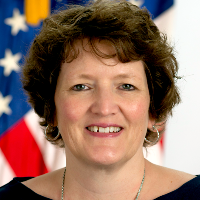
Heidi Magladry, RN
Skilled Nursing
Facility Quality Reporting Program Coordinator
Centers for Medicare and Medicaid Services
Heidi Magladry is a Nurse Consultant at the Centers for Medicare & Medicaid Services (CMS), within the Center for Clinical Standards and Quality Group (CCSQ), and the Division of Chronic and Post-acute Care (DCPAC) and serves as the Skilled Nursing Facility Quality Reporting Program Coordinator (SNF QRP). Prior to her current position she served as the Outcome and Assessment Information Set (OASIS) lead for the Home Health Quality Reporting Program. She has a background in quality improvement, process improvement, and interdisciplinary case management. Previously, she worked for 13 years in the home health industry as a nurse and team supervisor.

Alexandre Laberge, PhD, PT, MBA
Senior Policy Advisor PAC VBP Program
Centers for Medicare and Medicaid Services
Alex Laberge PT MBA PhD has been serving at the Senior Policy Advisor For PAC VBP Programs in the Division of Chronic and Post-acute Care (DCPAC) in CCSQ, CMS since October 2021 and is currently overseeing the expansion of the SNF VBP program and the expansion of the HHVBP model. Prior to that, Alex was at ORDI/CMMI for 12 years where he played a senior role in the Nursing Home Value Based Purchasing Demonstration Implementation, Home Health Value Based Purchasing Model Design, the Medicare Care Choices model implementation and the Bundles Payment for Care Improvement Design. Prior to joining the CMS, his academic area of interest was cost and quality in post-acute care settings and he worked as a physical therapist for over 13 years in both acute and post-acute care settings.

Colleen Frey, RN, MSN, CPHQ
Acting Director
Division of Community and Population Health
Centers for Medicare and Medicaid Service
Colleen Frey is currently serving at the U.S. Centers for Medicare & Medicaid Services as the Acting Director responsible for the CMS Quality Improvement Program, focused on Nursing Homes and Communities. Colleen leads a team of twenty-one outstanding clinical, communication, data, and specialized contract individuals, who drive the CMS program providing technical assistance to 15,000 nursing homes and over 500 community partner programs. In addition, the team focuses on Health Equity, delivering specialized assistance to over 11,000 areas where health inequities exist. Prior to joining CMS, Colleen worked in the private sector at a healthcare system that provided care to vulnerable populations. She got her start working as a Registered Nurse in an infectious disease unit, caring for individuals who were HIV+ and others with serious, life-threatening infections. Other specialties include pulmonary rehabilitation, informatics, and quality and patient safety. Her last position in the private sector was serving as Administrative Director, overseeing quality, patient safety, regulatory, emergency management, and infection control programs. Colleen holds a Bachelor’s Degree in Nursing from Oakland University, Rochester Hills, MI, and a Master’s Degree in Nursing, Business and Health Systems, Informatics Concentration, from the University of Michigan.

Alpha Wilson
Technical Advisor
Centers for Medicare and Medicaid Services
Alpha Wilson is a technical advisor in the Clinical Standards Groups within the Center for Clinical Standards and Quality in CMS. She is a subject matter expert on a variety of issues pertaining to the Conditions of Participation (health and safety standards) including hospital, nursing home, health equity, and organ donation and transplantation issues.
 May 3, 2023 15:10
May 3, 2023 15:10Attendees will have the opportunity to learn more about workforce resiliency and the importance of engaging their staff. The concept of behavioral science will be reviewed and how this can be used to understand people’s behaviors. Furthermore, practical examples of ways to increase resiliency and engagement from leadership and peers will be shared.

JoVonn H. Givens, MPH
Task Order
Director Alliant Health Solutions
JoVonn Givens has over seventeen years of quality improvement experience and six years of health education and public health research experience. In her role as Task Order Director for the Quality Innovation Network-Quality Improvement Organization (QIN-QIO), Givens facilitates quality improvement through implementation and monitoring of CMS contract tasks including developing quality improvement projects, facilitating Program Management Office (PMO) activities, maintaining deliverable schedules, evaluating interim and outcome goals, and collaborating with internal and external stakeholders. Givens holds a Bachelor of Science in Biology degree from Florida Agricultural and Mechanical University and a Master of Public Health degree from the University of Alabama at Birmingham. In 2017, she obtained her Six Sigma Green Belt. Givens has also served as Evaluation Specialist, Chronic Kidney Disease Theme Manager, Internal Quality Control & Evaluation Lead, and State Program Director for Georgia while with Alliant.
 May 3, 2023 15:40
May 3, 2023 15:40
Jean Moody-Williams, RN, MPP
Deputy Center Director
Center for Clinical Standards and Quality
Centers for Medicare & Medicaid Services
Jean D. Moody-Williams, RN, MPP, is the current Deputy Center Director for the Center for Clinical Standards and Quality (CCSQ) at the Centers for Medicare & Medicaid Services (CMS). She has served since 2008 under multiple administrations in the Senior Executive Service (SES) Corp. She currently is a part of a leadership team responsible for one of CMS’ Centers that has nearly 800 employees and a $3 billion annual budget. She is responsible for leading quality improvement, value based purchasing, and delivery system reform. She provides oversight to multiple kidney health activities including regulations for organ procurement and transplantation programs and learning networks, development of conditions of participation for dialysis facilities and healthcare systems, oversight of ESRD Networks for quality improvement and the ESRD Quality Incentive Program. She works to ensure better healthcare, healthier populations and smarter spending of healthcare dollars for more than 90 million Americans.
Jean serves as a guest lecturer for many academic institutions and is a current Faculty Member of the University of Pennsylvania School of Nursing, Doctor of Nursing Practice in Executive Leadership Program.
Prior to joining CMS, Ms. Moody-Williams served as an executive at a number of state and private entities working to improve care for patients and families including, the Maryland Health Care Commission (MHCC), the National Resource Center for Health Policy and Strategies, Quality Improvement Organizations and a health care system in Dallas.
Jean has devoted her entire professional career to improving the care provided to patients and supporting families, leading many of the patient and family engagement efforts at CMS in order to bring the voice of the patient to the forefront of policy and program decisions. She is the author of a textbook for healthcare providers entitled, A Journey towards Patient-Centered Healthcare Quality Patients, Families and Caregivers, Voices of Transformation. She is also the author of the book entitled, Transitions, Trust and Triumph: A Daily Devotion for Caregivers, which provides inspiration, encouragement and resources for those caring for a love one or that recently lost a loved ones.
She is a recipient of the Samuel J. Heyman Service to America Medal awarded by the Partnership for Public Service and was recognized as the Federal Employee of the Year. Ms. Moody-Williams is also the recipient of the 2016 President of the United States Meritorious Rank Award and the 2018 President of the United States Distinguished Service Rank Award. The Presidential awards are one of the highest given to Senior Executives that have demonstrated unparalleled leadership skills and a strong dedication to achieving tangible results. She is also the recipient of the 2020 CMS Executive of the Year awarded by the CMS Administrator for leadership. She received her Bachelors of Science in Nursing from Hampton University and a Masters of Public Policy and Management from the University of Maryland, College Park.
